

















plus+ winter • 2023 Expansion of Employee Rights Creates a Complex Compliance Landscape for U.S. Employers p 2 TRANSPORTATION DEFENSE STRIKES BACK p 22 Retail Tenant Troubles: PreBankruptcy Planning p 14 FOUR CONCERNS FOR STATES LAUNCHING NEw CANNABIS PROGRAMS p 8 DOJ Issues New Guidance on Criminal Enforcement p 6

damage? Structural overload?
failure? Construction issue? Evaluation of post-tension slab cracks revealed a design flaw which ultimately led to a structural foundation failure. From high-rise structures to single story buildings, our structural, mechanical, and electrical engineers work with our materials analysts, architects, and visualization specialists to dig past the speculation to find and convey the facts behind building and component failures like no one else. © 2022 800.782.6851 SEAlimited.com Since 1970 Know. SUBMIT AN ASSIGNMENT Forensic Engineering, Investigation and Analysis Proud Partner USLAW NETWORK Inc. since 2004.
Wind
Materials
FEATURES:
Expansion of Employee Rights Creates a Complex Compliance Landscape for U.S. Employers
By Nadia P. Bermudez • Klinedinst PC page 2
DOJ Issues New Guidance on Criminal Enforcement
By Geoffrey R. Kaiser • Rivkin Radler LLP page 6

FOUR CONCERNS FOR STATES LAUNCHING
NEW CANNABIS PROGRAMS
By Michael McGrory • Amundsen Davis LLC page 8
Take A Load Off –
The Liability For Improper Load Securement
By Peter T. DeMasters and Michael A. Secret • Flaherty Sensabaugh Bonasso, PLLC page 10
Effective Communication in the Age of TikTok
By E. Holland Howanitz and Theresa S. Caccippio • Wicker Smith. page 12
Retail Tenant Troubles: Pre-Bankruptcy Planning
By Kevin Newman, Nic Ferland and Scott Fleischer • Barclay Damon LLP page 14
I Never Should Have Hired Him, But…
By Melisa C. Zwilling and Tinsley Griffin Hill • Carr Allison page 16
Cannabis, Consumer Fraud and Beyond
By Elizabeth Dalberth • Sweeney & Sheehan, P.C. page 18
Is Online Jury Research Right for My Case?
By Merrie Jo Pitera, PhD, David Metz, Jennifer Cuculich, JD • IMS page 20
DEPARTMENTS:
Transportation Defense Strikes Back: FAAAA preemption and the fight against plaintiff’s claims against transportation brokers and shippers
By Chris Cotter • Roetzel & Andress LPA page 22
Are Claims Handling Practices Keeping Up with the Times?
By Tim Karlstad • Marshall Investigative Group page 24
Enterprise Insolvency in the Time of COVID-19: Giving Creditors a Strong Voice
By George Wang • Duan & Duan page 26
The Internet’s Pervasive Effect on Commerce: Can the Courts Keep Up?
By: Noel D. Humphreys • Connell Foley LLP page 28
The S in ESG – European Union sets new legal framework for Social Governance
By Dr. Jan Tibor Lelley, LL.M. and Dr. Yuanyuan Yin, LL.M. • BUSE page 30
Arizona Supreme Court Clarifies Punitive Damage Standard
By Eileen GilBride • Jones Skelton & Hochuli, P.L.C. page 32
The 411 on Medicare Set-Asides and How Professional Administration Can Help
By Andrea Mills • Ametros page 34
The articles contained herein are for informational purposes only and are not intended to be the basis for decisions in specific situations nor a substitute for legal counsel. Copyright © 2023 USLAW NETWORK, Inc. All rights reserved. From the Chair .......................................................... page 1 faces of uslaw.......................................................... page 36 firms on the move..................................................... page 41 Successful verdicts & transactions ........................ page 43 diversity, equity and inclusion .............................. page 48 pro bono Spotlight ................................................. page 50 About USLAW ............................................................ page 53 USLAW NETWORK SourceBook ..................................... page 55 uslaw member firm listings ..................................... page 58 Spotlight on Corporate Partners............................ page 70
table of contents WINTER 2023
www.uslaw.org
At Arcadia, our passion for empowering people is at the heart of everything we do. Our knowledge helps resolve conflicts, reduce litigation expenses and create long-term financial security for people involved in personal injury claims — helping settle over 500,000 claims, and positively impacting the lives of those we serve. Over 1,000 clients rely on Arcadia; we invest significantly in the development of innovative products and security tools that make doing business with us easier, and helping your clients settle more cases, faster.
• Licensed in all 50 states & Canada
• Experienced settlement consultants




• Lifetime payments & tax-advantaged income

• Spendthrift protection using a myriad of settlement tools
Visit teamarcadia.com | call 810.376.2097
 Rachel Grant, CSSC Detroit, MI
Rich Regna, CSSC Denver, CO
Iliana Valtchanova Pittsburgh, PA
Len Blonder Los Angeles, CA
Rachel Grant, CSSC Detroit, MI
Rich Regna, CSSC Denver, CO
Iliana Valtchanova Pittsburgh, PA
Len Blonder Los Angeles, CA
Our humanistic approach leads to better settlements for your clients.
from the Chair’s Desk
On behalf of our USLAW NETWORK membership - and the authors in this issue in particular - I am pleased to share with you this February 2023 issue of USLAW Magazine
Each magazine issue is authored by USLAW members and our exclusive corporate partners who provide insight, updates, perspective and experience on a range of topics. In this issue, you will see topics that address tenant matters and pre-bankruptcy planning, employee rights /employer obligations, enterprise insolvency, jury research, punitive damages standards, consumer fraud, cannabis, ESG and more.
Our members are making a difference across the legal profession and in their communities, and many are recognized for leadership contributions, so please take a look at our firms on the move and trial successes sections to learn more about our members. We also spotlight several USLAW member firms participating in the Mansfield Rule certification initiative that furthers diversity and inclusion within their firms.
USLAW focuses on delivering exceptional client service and timely, relevant, forward-thinking client resources to help legal decision-makers navigate everyday challenges and plan for the “what ifs” that may arise. In addition to USLAW Magazine, our complimentary library of resources includes our recently launched Short Takes initiative. Short Takes is a new legal video alert initiative that delivers jurisdiction-specific legal news and significant federal changes of importance across an array of practice areas in just a few minutes.
Take advantage of a myriad of connections with USLAW. Enjoy the latest issue of USLAW Magazine, connect with any of our members when legal matters arise, engage with us through our social channels and say hello at an industry event.
Thank you for your continued support of USLAW NETWORK and our member firms.
Sincerely,
Publisher RogeR M. Yaffe
Editor connie Wilson
Art Director Jeff fReiBeRT • Compass Creative
BOARD OF DIRECTORS
aManda P. KeTchuM, chaiR Dysart Taylor, Kansas City, MO
oscaR J. caBanas, Vice chaiR Wicker Smith, Miami, FL
KenneTh B. WingaTe, secReTaRY/TReasuReR
Sweeny, Wingate & Barrow, P.A., Columbia, SC
TaMaRa B. gooReViTz, MeMBeRshiP ManageMenT diRecToR Franklin & Prokopik, P.C., Baltimore, MD
ThoMas s. ThoRnTon, iii, clienT liaison diRecToR Carr Allison, Birmingham AL
JennifeR d. TRicKeR, assisTanT TReasuReR Baird Holm LLP, Omaha, NE

BRadleY a. WRighT, PRacTice gRouP liaison Roetzel & Andress, Cleveland, OH
RodneY l uMBeRgeR, iMMediaTe PasT chaiR Williams Kastner, Seattle, WA
dan l longo, chaiR eMeRiTus Murchison & Cumming LLP, Los Angeles, CA
KeVin l fRiTz, chaiR eMeRiTus Lashly & Baer, P.C., St. Louis, MO
BaRBaRa BaRRon MehaffyWeber Houston, TX
douglas W. claRKe
Therrien Couture Joli-Coeur
Montreal, Quebec, Canada
KeelY e duKe Duke Evett, PLLC Boise, ID
sTanfoRd P. fiTTs
Strong & Hanni, PC Salt Lake City UT
Jessica l. fulleR Lewis Roca
Denver, CO
eaRl W. housTon, ii
Martin, Tate, Morrow & Marston, P.C. Memphis, TN
MeRTon a hoWaRd
Hanson Bridgett LLP San Francisco, CA
Michael a ludWig
Jones, Skelton & Hochuli, P.L.C. Phoenix, AZ
RoBYn f. McgRaTh
Sweeney & Sheehan, P.C. Philadelphia, PA
JeffReY l o’haRa Connell Foley LLP Roseland, NJ
laRRY a schechTMan Amundsen Davis LLC Chicago, IL
fRedeRicK M. heiseR
Future USLAW Leaders
Representative Klinedinst PC Irvine, CA
Michael c. TYson Diversity Council Representative Wicker Smith Orlando, FL
KaRen a. VeRKeRK
TELFA Representative Dirkzwager Arnhem, Netherlands
leW R. c. BRicKeR, Chair eMeritus Amundsen Davis LLC, Chicago, IL
John d. cRoMie, Chair eMeritus Connell Foley LLP, Roseland, NJ
ThoMas l oliVeR, ii, Chair eMeritus Carr Allison, Birmingham, AL
® RogeR M. Yaffe, Chief exeCutive OffiCer roger@uslaw.org
Amanda Pennington Ketchum
USLAW NETWORK Chair Dysart Taylor | Kansas City, MO
®
Michelle Besu, DireCtOr Of Meetings anD events michelle@uslaw.org
cheRYl hanleY, PraCtiCe grOuP, sPeCial PrOjeCts, anD COrPOrate Partner DireCtOr cheryl@uslaw.org
JennifeR Randall, MeMbershiP serviCes Manager jennifer@uslaw.org
Paige ThoMPson, MeMbershiP serviCes COOrDinatOr paige@uslaw.org
connie Wilson, COMMuniCatiOns sPeCialist connie@uslaw.org
uslaw.org
• Phone/Fax 800.231.9110
US LAW www.uslaw.org 1
www.uslaw.org
Expansion of Employee Rights Creates a Complex Compliance Landscape for U.S. Employers
In the last few years, employers have seen an ever-growing legislative expansion of employee rights throughout the country, which creates compliance difficulties based on varied legal obligations among cities and states of operations. This scenario is further complicated by the ever-increasing demand for remote work, which could trigger the application of local laws based on an employee’s residence. From cannabis to codified bereavement leave, new employment laws require businesses to proactively prepare for constant policy changes and conduct compliance trainings for front-line managers.

BEREAVEMENT AND LOSS
Though not required by federal law, a few jurisdictions have established their own
bereavement leave laws following the loss of a family member or other designated person.
For example, starting in 2023, covered Illinois and California employers are required to provide employees with unpaid bereavement leave following the loss of a family member. Illinois’ Family Bereavement Leave Act (FBLA), an amendment to the Child Bereavement Leave Act (CBLA), expands leave time requirements to cover pregnancy loss, failed adoptions or surrogacies, unsuccessful reproductive procedures, and other diagnoses or events negatively impacting pregnancy or fertility. Illinois’ FBLA requires employers (who are already covered by the federal Family and Medical Leave Act) to provide 10 working days of unpaid leave time after the loss of
family members not already covered by the CBLA. California’s new bereavement law provides eligible employees with up to five days of unpaid bereavement leave upon the death of a qualifying family member. California’s form of bereavement leave protection can be taken intermittently within three months of the family member’s date of death. Illinois also allows for leave to be taken months after the initial need.
CANNABIS & EMPLOYMENT
Once again, California leads the charge by passing a law, effective next January 2024, prohibiting employers from penalizing workers for using marijuana outside of work and limiting the type of pre-hire drug testing. The law also authorizes the state’s
2 WINTER 2023 USLAW MAGAZINE US LAW
Nadia P. Bermudez Klinedinst PC
Civil Rights Department to investigate and pursue complaints of employer violations. Of note, California has a long-standing unique Labor Code provision that prevents employers from retaliating against employees for lawful off-duty conduct, which ostensibly includes permitted recreational use of marijuana in the state.
Most states now have some form of legalized medical or recreational cannabis usage laws. Just a few states, however, require employers to actually accommodate usage or cover usage under an anti-discrimination framework. Within the last few years, D.C., New Jersey and Nevada passed laws protecting workers from employer adverse actions involving off-duty cannabis usage for medical needs. While employers may still maintain drug-free workplace policies, enforcement mechanisms are now impacted by these laws.
“PAY TRANSPARENCY” LAWS IN HALF OF ALL STATES
More than half of all states have enacted some form of salary history disclosure ban, which proponents believe will minimize pay disparity across racial and gender lines. Where active, the scope and application of these bans differ from state to state or in cities that have enacted local ordinances. For example, these laws apply depending on factors such as the size of the employer, whether the employer is governmental, or whether the request for information is made post-offer.
Delaware, Oregon and Pennsylvania were among the first states to enact some form of pay history disclosure ban. Pennsylvania’s law, for example, only applies to governmental agencies, while Oregon’s law is only triggered after a job offer is made. Alabama passed a law effective in 2019, applying statewide, that says job applicants are not required to disclose their previous salary if asked and that they cannot be retaliated against for such a refusal. Other states, such as California and Colorado, have statewide laws that prohibit an employer from ever seeking a pay history of a job applicant. Still, other states, like Maine and Oregon, prohibit salary history disclosures but permit it after a job offer has been made.
An expansion of pay transparency laws now includes requiring employers to provide pay scale information to would-be applicants for openings or promotions within a company. A “pay scale” is defined by at least one state as the salary or hourly wage range that the employer reasonably expects to pay for the position. Such laws are far less common than salary history dis-
closure bans. California’s pay scale law became effective in 2023 and requires larger employers to provide a salary range in all job postings. California’s law also requires covered employers to provide current employees with a pay scale for their position if requested.

Starting in September 2023, certain New York state employers will have pay transparency obligations related to job advertisements and promotions. The state followed the lead of New York City and other municipalities that had already passed their own salary transparency measures.
With many companies now offering remote jobs throughout the nation, employers will be required to monitor compliance nationwide. In the case of California, these rules apply to third parties that are “engaged” to list job openings.
Most of these pay transparency laws provide for a private enforcement mechanism or other penalties for non-compliance. This leads to potential claims of violations that could be brought by a person merely browsing company career webpages. Interestingly, pay scale information could also be used to view otherwise confidential financial data of competitors or vice versa. Candidates might also peruse such information to leverage their own compensation negotiations.
MINIMUM WAGES VARY BY JURISDICTION
The federal minimum wage for covered nonexempt employees has held firm at $7.25 per hour since July 2009. Of course, numerous states and municipalities have increased the minimum wage to sometimes double that figure depending on the locality and/or size of the employer. In some scenarios, the hourly minimum wage affects the salary exemption that may apply to exempt workers, which is two times the hourly rate per workweek.
In addition to state legislatures passing minimum wage laws, so are city councils; about a dozen states have cities and other municipalities that have passed local ordinances to raise the minimum wage beyond state requirements. California has around 30 cities with unique minimum wage ordinances, which in some cases also include enhanced paid sick leave laws. More than a dozen states have minimum wages greater than or equal to $12.50 per hour. Washington D.C. clocks in with one of the highest minimum wages of $16.10 per hour, with annual adjustments made mid-year. Numerous jurisdictions are closely eyeing increases in the cost of living or inflation figures to make future automatic increases.
OTHER UNIQUE EMPLOYMENT LAWS AFOOT
New York City passed its Automated Employment Decision Tools Law, which has had its implementation delayed until later this year. The term “automated employment decision tool” means any “computational process, derived from machine learning, statistical modeling, data analytics, or artificial intelligence” that issues “a score, classification, or recommendation” used to “assist or replace discretionary decision making for making employment decisions.” Use of such technology, such as artificial intelligence (“AI”) tools, in employment decisions will be subject to disclosure and bias audits.
Down the East Coast, Miami Beach passed an anti-discrimination ordinance protecting the wearing of hairstyles commonly associated with race and national origin. Nearly a dozen states already have similar CROWN (Create a Respectful and Open Workplace for Natural Hair) laws.
This year, New York and California were among the states expanding the list of persons covered by certain family leave laws. California now adds “designated persons” to the list of family members covered by its FMLA-state counterpart leave rules. New York added siblings to the definition of family member under its leave laws.
What do these patchwork employment laws mean to businesses operating in multiple states? It means that having competent human resource professionals and expert legal counsel in place has never been more important. Since many of these new laws create private right of actions for enforcement, managing risk in labor practices will be heightened. Even frontline managers may need to be trained to issue spot relevant rights triggered by employee requests. Last, in jurisdictions with active legislatures, business and HR professionals may also need to monitor pending legislature bills in order to proactively plan for policy changes and training.
US LAW WINTER 2023 USLAW MAGAZINE 3
Nadia Bermudez is an employment and business litigation attorney with Klinedinst PC in San Diego, California. Bermudez assists clients navigate an increasingly complex business environment. She was named a Top 25 San Diego Woman Super Lawyer for 2019-2023. She is a sought-after trainer who also conducts workplace investigations. Bermudez graduated from Stanford Law School in 2001.


Partner with IMS and position your case for success from the start. IMS Is a Proud Corporate Sponsor of USLAW 30 Years | 3,000 Trials | 20,000 Cases expertservices.com WORK WITH OUR TRIAL EXPERTS
DOJ Issues New Guidance on Criminal Enforcement
Geoffrey R. Kaiser Rivkin Radler LLP
On September 15, 2022, Deputy Attorney General (“DAG”) Lisa Monaco delivered remarks announcing updated guidance on how the Department of Justice will be prioritizing and prosecuting corporate crime. Her remarks were accompanied by a formal memo titled “Further Revisions to Corporate Criminal Enforcement Policies Following Discussions with Corporate Crime Advisory Group.” However inelegant the title, the memo contains important and substantive updates to how the Department will be approaching corporate criminal investigations, and the DAG stated those updates would be incorporated into the Justice Manual in future revisions.
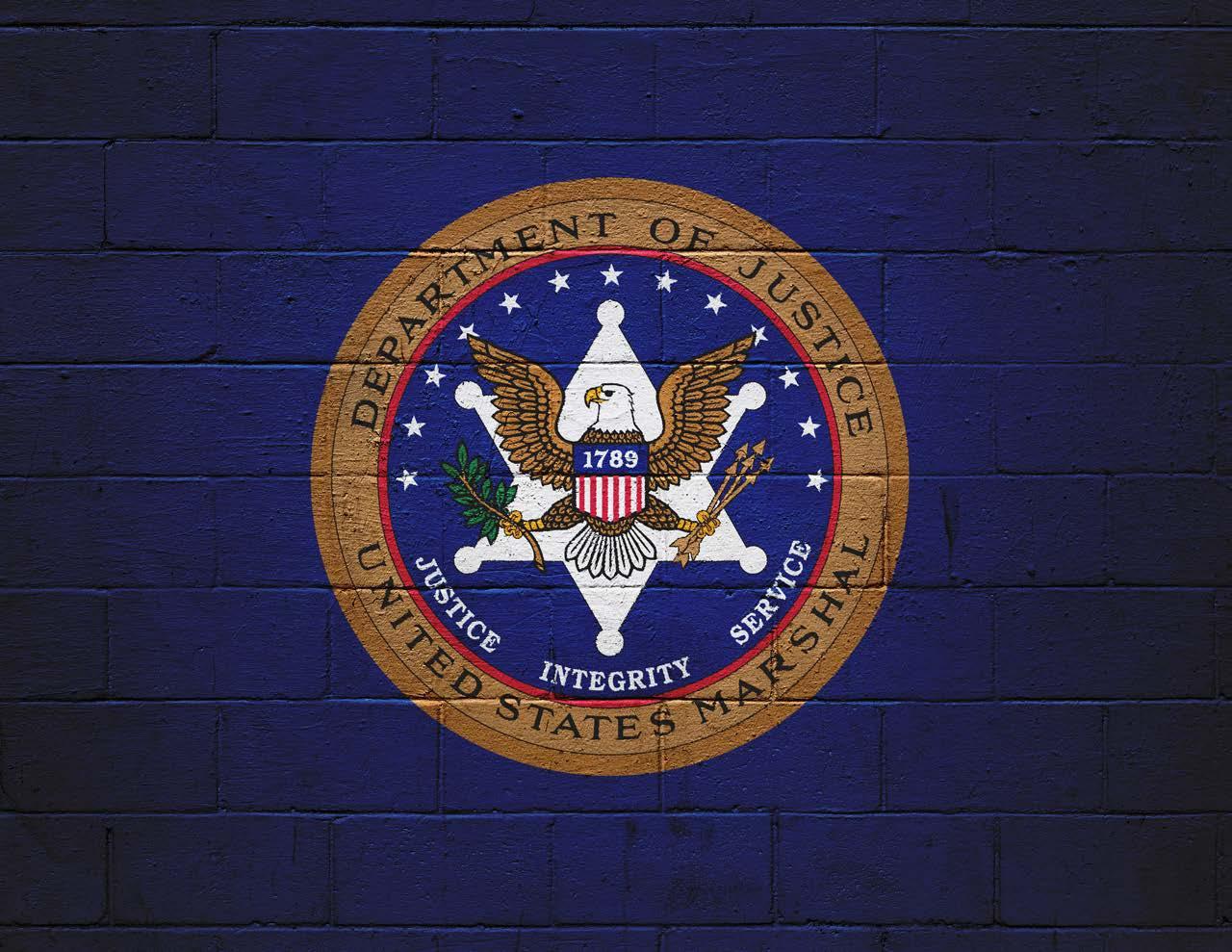
INDIVIDUAL ACCOUNTABILITY
The new guidance reiterates the importance placed by the Department on individual accountability but now imposes a requirement that cooperating companies produce evidence quickly in order to receive cooperation credit. The DAG made clear that given the importance of timely cooperation to successful investigations and prosecutions: “Going forward, undue or intentional delay in producing information or documents – particularly those that show individual culpability – will result in the reduction or denial of cooperation credit. Gamesmanship with disclosures and productions will not be tolerated.” Companies
will also be expected to prioritize evidence that is “most relevant for assessing individual culpability.” In addition to assessing the timeliness of the cooperation, prosecutors will be expected to try to complete investigations of individuals and bring any appropriate charges prior to or simultaneously with the entry of the corporate resolution.
HISTORY OF MISCONDUCT
The new guidance also discusses the Department’s approach to corporate recidivism. The DAG explained that, in assessing the significance of prior misconduct, “the most significant types of prior misconduct will be criminal resolutions here in the
6 WINTER 2023 USLAW MAGAZINE US LAW
United States, as well as prior wrongdoing involving the same personnel or management as the current misconduct.” At the same time, the guidance recognizes that past misconduct may not always reflect a company’s “current culture and commitment to compliance” and, accordingly, criminal resolutions of corporate misconduct that occurred more than 10 years before the conduct under investigation, and civil/administrative resolutions that are more than 5 years old, will not receive as much weight. The Department will also consider whether the current misconduct has the same root causes as past misconduct and whether it involved the same management team and executive leadership. Additionally, companies with a proven track record of compliance will not be penalized for acquiring companies with a history of noncompliance, provided the problems are promptly addressed post-acquisition. Consideration will also be given to whether the company under investigation is an outlier when compared to its peers.
The DAG stressed, however, that the Department disfavors successive non-prosecution or deferred prosecution agreements with the same company and that any proposal from the prosecution team for that type of successive resolution will be scrutinized by Department leadership. The DAG further commented that the Department “will not shy away from bringing charges or requiring guilty pleas where facts and circumstances require” and that criminal resolutions can no longer “be priced in as the cost of doing business.”
VOLUNTARY SELF-DISCLOSURE
The DAG also spoke about the benefits of voluntary self-disclosure, which, in many cases, is viewed as “a sign that the company has developed a compliance program and has fostered a culture to detect misconduct and bring it forward.” The DAG announced that every component of the Department that prosecutes corporate crime will be required to have a program that incentivizes voluntary self-disclosure and that “[i]f a component currently lacks a formal, documented policy, it must draft one.” The policy must explain what constitutes self-disclosure and what the benefits will be for meeting that standard. The goal, according to the DAG, is to create predictability concerning the benefits of self-disclosure so that relevant stakeholders “can make the case in the boardroom that voluntary self-disclosure is a good business decision.” The DAG also announced common principles for such Department policies. One such principle is that, absent aggra-
vating circumstances, the Department will not seek a guilty plea against a company that self-discloses, cooperates and remediates misconduct. Another is that the Department will not require an independent compliance monitor for such a company if, at the time of the resolution, it has also implemented an effective compliance program.
INDEPENDENT COMPLIANCE MONITORS
The DAG also announced new guidance for the appointment of independent compliance monitors, including guidance for identifying the need for a monitor, how to select a monitor and how to oversee the monitor’s work. The guidance also mandates a documented selection process that is designed to operate transparently and consistently.
Factors for determining the need for a monitor include the following:
1. Whether the corporation voluntarily self-disclosed the underlying misconduct in a manner that satisfies the particular DOJ component’s self-disclosure policy;
2. Whether at the time of the resolution and after a thorough risk assessment, the corporation implemented an effective compliance program and internal controls;
3. Whether, at the time of the resolution, the corporation adequately tested its compliance program and internal controls;
4. Whether the underlying criminal conduct was long-lasting or pervasive across the business organization or was approved, facilitated, or ignored by senior personnel;
5. Whether the underlying criminal conduct involved the exploitation of an inadequate compliance program or system of internal controls;
6. Whether the underlying criminal conduct involved active participation of compliance personnel or their failure to appropriately escalate or respond to red flags;
7. Whether the corporation took adequate investigative or remedial measures to address the underlying criminal conduct;
8. Whether, at the time of the resolution, the corporation’s risk profile has decreased, making the risk of recurrence of the misconduct minimal or nonexistent;
9. Whether the corporation faces any unique risks or compliance challenges, including the region or business sector in which it operates or the nature of its customers; and
10. Whether and to what extent the corporation is subject to oversight from
industry regulators or a monitor imposed by another enforcement authority or regulator.
EVALUATION OF COMPLIANCE PROGRAMS
The DAG announced that, in evaluating the effectiveness of corporate compliance programs, the Department will consider whether the company has adopted compensation systems that “employ clawback provisions, the escrowing of compensation, and other ways to hold financially accountable individuals who contribute to criminal misconduct” and/or that “use affirmative metrics and benchmarks to reward compliance-promoting behavior.” The stated rationale is that such compensation systems “can deter risky behavior and foster a culture of compliance” and so prosecutors will consider the nature of an organization’s compensation systems in evaluating the strength of its program. The Department will be developing additional guidance on how to reward companies that adopt these kinds of arrangements.
The new policy also addresses the rise of personal devices and third-party messaging platforms and the corporate compliance risks they pose. In evaluating compliance programs, prosecutors are being encouraged to consider whether the corporation has implemented policies to ensure that “business-related electronic data and communications are preserved” and that the company “will be able to collect and provide to the government all non-privileged responsive documents relevant to the investigation. . .”
The DAG closed her remarks by reiterating the importance of individual accountability and corporate responsibility, stating: “Companies should feel empowered to do the right thing – to invest in compliance and culture, and to step up and own up when misconduct occurs. Companies that do so will welcome the announcements today. For those who don’t, however our Department prosecutors will be empowered, too – to hold accountable those who don’t follow the law.”
Geoffrey R. Kaiser is Senior Counsel in Rivkin Radler’s Compliance, Investigations & White Collar and Health Services practices. Click to read his full bio.

US LAW WINTER 2023 USLAW MAGAZINE 7
FOUR CONCERNS FOR STATES LAUNCHING NEW CANNABIS PROGRAMS
Michael McGrory Amundsen Davis LLC
INTRODUCTION
Last year saw Rhode Island, Mar yland and Missouri join the 18 other states and Washington D.C. that have legalized recreational cannabis since 2012. Medical cannabis is permitted in some form in 39 states and D.C. Interest in the industry remains incredibly high, with entrepreneurs, lawyers, accountants, etc. joining every day. As more jurisdictions come into the fold, the wiser lawmakers and business hopefuls will take a close look at some of the stumbling blocks encountered by the more mature markets

as they launched their cannabis programs. These include: (1) social equity concerns;
(2) supply and demand dynamics; (3) tax policy; and (4) regulatory pervasiveness.
SOCIAL EQUITY
Social equity provisions in cannabis laws are designed to promote industry participation by those who were disproportionately impacted by the “War on Drugs.” These are most often going to be people from impoverished and/or minority communities. Social equity is a big deal in the
cannabis world, and rightfully so.
States with social equity programs, though, have found themselves bogged down in litigation related to constitutional and other challenges. Lawsuits inevitably delay the issuance of licenses. This, in turn, delays sales, which costs entrepreneurs and impacts tax revenues. These delays are helpful only to neighboring states and black-market operators.
Also, a social equity program that is not carefully crafted could be subject to abuses that undermine the goal of social
8 WINTER 2023 USLAW MAGAZINE US LAW
equity ownership. These can include sham ownership structures that merely appear to be operated by social equity candidates. Or the “lottery ticket” issue, where a legitimate social equity owner receives a license only to immediately sell it to an established firm.
In all likelihood, ever y newcomer state will try its hand at a social equity program, and existing markets will continue to tweak what is in place to promote social equity. To be successful, though, regulators and legislators should carve their program with a chisel, not a sledgehammer. And they should employ close oversight and monitoring of their programs in order to ensure that the rules are effective. Those interested in working or investing in the cannabis industry should anticipate that any new regulatory scheme will include some type of social equity benefits.
SUPPLY AND DEMAND DYNAMICS
New York optimistically awarded cannabis grower licenses before issuing retail licenses, with the hope that cannabis products would be ready to sell once shops opened. The dispensary licenses, though, were delayed, leaving cultivators with a stockpile of cannabis and nowhere to sell it. They had a huge legal supply and no legal demand. West Coast states have been complaining for years about a “flooded market” and unsustainably low prices. Some states, like Pennsylvania and Michigan, have seen a rapid switch from undersupply to oversupply.
This type of tumult is not good for business. Indeed, some West Coast cannabis business have shut their doors, which would have been unthinkable not too long ago. It is especially bad for the smaller operators –the “Mom and Pop” companies – that may lack the capital to ride out an extended period of low prices.
States should study these dynamics and their own populations in order to calculate a realistic estimate of legal usage upon the rollout of their programs. If a state is inclined to cap the number of cultivation and dispensary licenses, it should do so based on hard data to avoid the supply-and-demand roller coaster experienced by many mature markets.
TAX POLICY
A significant driving force behind many states’ cannabis legalization efforts is the potential for a new and significant stream of tax revenues. Invariably, states promise the moon. And invariably, they fail to deliver. Nevertheless, legal cannabis sales can inject hundreds of millions of dollars into a state’s coffers. For example, in 2022, Illinois collected $445.3 million in tax rev-
enues on $1.5 billion dollars of sales. Local municipalities also benefit from cannabis businesses’ sales and property taxes.
It can be tempting for a state to impose an awfully high tax burden on cannabis sales. Afterall, cannabis is a luxury (for recreational users anyway), and its use should arguably be somewhat discouraged by the government. This approach, though, ignores that cannabis can be easily purchased – without any taxes – on the black market. And with the growing acceptance of cannabis, the black market has thrived. Black market operators need not worry about federal taxes or regulatory compliance, so their products are available at a cheaper base price even before taking taxes into consideration. This is not a level playing field for legitimate cannabis operators, who must find a way to compete.
Estimates vary, but the black market seems to account for between 55% to 80% of California’s cannabis sales. Even accepting the lower estimates, that is an incredible number of transactions that are not taxed at all.
As new states craft their cannabis tax policies, they should strive to find a balance between maximizing tax revenues and discouraging black market transactions. It will take time and effort to arrive at the ideal tax rate, but it is worthwhile to try. At the same time, states should continue to enforce their laws against unregulated black marketeers. Doing so protects those cannabis businesses that operate above-board and in good faith.
REGULATORY PERVASIVENESS
The cannabis industr y continues to occupy a Twilight Zone in terms of legality. Growing and selling cannabis is totally prohibited by federal law. Even so, dozens of states have fashioned programs legalizing intrastate cannabis commerce. This is largely because, among other reasons, the Department of Justice has little interest in expending its resources investigating and prosecuting responsible cannabis businesses. Key to the federal government’s “hands off” approach is that the states have, by and large, imposed stringent regulations on licensed businesses.
It is expensive to comply with any pervasive regulatory scheme. In the cannabis world, it may be even more costly not to comply, since operating outside the regulatory framework could be considered a criminal act.
As a result of this bizarre legal landscape, each state has implemented a unique regulatory framework for its cannabis industry. One frequently hears this referred to as a “patchwork of laws,” and it is. For example, a certain type of promotion or
advertisement may be permitted in New Jersey but prohibited in New York. Or a label specification could be required in Illinois but forbidden in Michigan. It is difficult, but vital, for multi-state operators to design practical compliance programs that will work with this patchwork of laws.
As new states come on board, they generally look at what other states have done and steal the best regulatory concepts. This is a good thing. The regulatory schemes of different states are growing more similar, which is an undeniably positive development. Rather than an ad hoc coalescence of rules, though, it would be great to see lawmakers convene to hammer out a uniform regulatory framework for adoption and implementation by all states that have legalized cannabis. This has been done with the Uniform Commercial Code, the Uniform Trade Secrets Act, the Interstate Family Support Act, and other laws. A uniform set of cannabis laws would dramatically simplify business operations, provide a sense of predictability and certainty, and pave the way for industry growth.
Of course, a comprehensive federal law could achieve the same result, but cannabis industry veterans stopped holding their breath for congressional action long ago.
CONCLUSION
It seems inevitable that all but a small handful of states will have legalized cannabis for recreational purposes within the next several years. Many of the issues they face as they devise their regulatory programs will have been addressed (both successfully and unsuccessfully) by predecessors. Even though each state will have some unique perspectives and challenges, there is a lot to be learned from what other states have done.
Similarly, those interested in joining the cannabis industry would do well to understand the regulatory landscape for their industry and what the landscape is likely to look like in the future. Afterall, the rules of the game will have a tremendous impact on a player’s success.
Michael McGrory is a partner in Amundsen Davis’s Chicago office. He founded the firm’s cannabis practice in 2013 with the advent of Illinois’ medical cannabis program and continues to serve as co-chair, providing counsel to all variety of businesses operating in the cannabis industry. Contact: mmcgrory@ amundsendavislaw.com.

US LAW WINTER 2023 USLAW MAGAZINE 9
Take A Load Off: The Liability For Improper Load Securement
Over 164,000 miles of highways in the National Highway System make up just a part of the over 4 million miles of public roads in America.1 On these roads, truck drivers move roughly 72.5% of the nation’s freight by weight.2 With all of the loading and unloading of goods in the American trucking matrix, who is liable when a person is injured by falling cargo? Where does a broker’s potential liability for injury from improperly secured cargo fit in?
RELEVANT STATUTES AND REGULATIONS – THE FEDERAL MOTOR CARRIER ACT
The Federal Motor Carrier Safety Administration (“FMCSA”) was established as a separate administration within the United States Department of Transportation on January 1, 2000. The FMCSA publishes the set of regulations that govern the trucking industry, known as the Federal Motor Carrier Safety Regulations, 49 C.F.R. Parts 300-399 (“FMCSR”).
To determine liability, it is first necessary to define the parties in play. To start, there are usually two major parties in a trucking transaction, the motor carrier and the shipper. Pursuant to FMCSR § 390.5,
Motor carriers are entities responsible for hiring, supervising, training, assigning, or dispatching drivers and employees concerned with the installation, inspection, and maintenance of motor vehicles. On the other hand, a shipper is the party who tenders the cargo to the motor carrier for transport in interstate commerce. There is also a third potential player in a trucking transaction, the third-party broker, who, for compensation, arranges or offers to arrange property transportation by an authorized motor carrier. FMCSR § 371.2(a).
To determine potential liability, it must be determined who has the responsibility to ensure that the cargo is secured at all times. The driver of a truck who is able to inspect the cargo prior to departure must assure himself that the cargo is properly distributed and adequately secured. FMSCR § 392.9(b)(1). Specifically, that the cargo is immobilized either with securement devices or loaded in such a way so that it cannot shift or tip in a way that will affect stability or maneuverability. FMSCR § 393.102(c). After the vehicle departs, the driver is responsible for inspecting the cargo within the first 50 miles after the beginning of a trip to ensure that the cargo is not shifting or falling, even if

this requires additional securement devices. FMSCR § 392.9(b)(2). The driver must reexamine the cargo any time that he (1) makes a change of his duty status; (2) has been driving for three hours; or (3) the vehicle has been driven for 150 miles, whichever occurs first. FMSCR § 392.9(b)(3)(i) – (iii)
However, the rules above only apply to unsealed loads where the cargo is able to be inspected. The driver is not responsible for these reexaminations if the cargo being transported is a sealed load or where the cargo is loaded so that it that makes the inspection of the cargo impossible. FMSCR § 392.9(b)(4). Courts have incorporated the gist of these regulations in crafting their own common law rules for liability between carriers and shippers.
THE SAVAGE RULE AND ITS APPLICABILITY – THE TRADITIONAL DUTIES OF CARGO LOADING
The seminal case relating to issues of cargo securement is U.S. v. Savage Truck Line, Inc., 209 F.2d 442 (4th Cir. 1953).
Decided in the United States Court of Appeals for the Fourth Circuit, Savage dealt with a collision in Virginia between a truck owned by Brooks Transportation Company,
10 WINTER 2023 USLAW MAGAZINE US LAW
Peter T. DeMasters and Michael A. Secret Flaherty Sensabaugh Bonasso PLLC
Inc., and a truck owned by Savage Truck Line, Inc (“Savage”). Id. at 443. Savage’s truck was carrying airplane engines in cylindrical containers. One of these cylinders fell off the Savage truck and onto the Brooks Transportation Company, Inc., truck, killing its driver instantly. The United States, the shipper, appealed the trial court’s verdict against it on the ground that it was entitled to indemnity from Savage Truck Lines because the driver knew that the cargo was not properly secured. The Fourth Circuit noted that it is the responsibility of the carrier to “see that the packing of goods received by it for transportation is such as to secure their safety.” Id. at 445. The Court then articulated the responsibilities of the shipper and the motor carrier as:
The primary duty as to the safe loading of property is therefore upon the carrier. When the shipper assumes the responsibility of loading, the general rule is that he becomes liable for the defects which are latent and concealed and cannot be discerned by ordinary observation by the agents of the carrier; but if the improper loading is apparent, the carrier will be liable notwithstanding the negligence of the shipper.
Therefore, as the “principal fault” of the matter lay with the carrier, Savage, which was required to indemnify the United States. Id. at 447. This “Savage Rule” has been adopted or followed by a majority of jurisdictions. The Savage Rule also falls in line with the regulations outlined above, which are traditionally used by Courts to determine the duties of parties involved in trucking transactions.
THE BROKER’S ROLE IN CARGO SECUREMENT
While a traditional trucking arrangement involves only the carrier and the shipper, there are arrangements where a third-party broker acts at an arm’s length between both parties to broker a trucking arrangement. A broker does not have any responsibility in the cargo securement process per se. However, liability can be asserted against a broker for improper cargo securement under two theories.
First, that the broker acted similarly to an employer in a “negligent hiring” case. To
defend against this, the broker must show that it used reasonable care in selecting the carrier. The plaintiffs pursued this theory in Schramm v. Foster, 341 F.Supp.2d 536 (D. Md. 2004), which involved a catastrophic collision in Maryland between minor motorists and a truck driven by Goff Brothers Trucking, LLC. Id. at 540. The load was brokered between Goff and the shipper by C.H. Robinson Worldwide, Inc. (“Robinson”). The plaintiffs’ brought claims against Robinson, in part, for “negligently hiring” the trucking company to transport the load. Id. at 551. The United States District Court for the District of Maryland found that Robinson, as the broker, had a duty to exercise reasonable care, including checking safety statistics for carriers that it is considering contracting with and maintaining internal records of carriers. Id. at 552. While the Court noted that evidence of Robinson’s negligence was “very thin,” the record showed Robinson failed to inquire further into the trucking company’s qualifications after noting that the trucking company had a “marginal” SafeState safety rating when Robinson’s contract called for a “satisfactory” safety rating.
The second theor y of liability is that a broker asserted a “heightened” level of control over the carrier or the shipper that would allow the broker to assume the responsibility in cargo securement. In Jones v. C.H. Robinson Worldwide, Inc., F.Supp.2d 630, 633 (W.D. Va. 2008), the plaintiff was struck by a truck that was contracted by Robinson in Virginia. The plaintiff sued Robinson, in part, on the theory that it was acting as a “motor carrier” in the trucking transaction by exercising undue control over the transporting trucking company. Id. at 635. After reviewing the record, the United States District Court for the Western District of Virginia held that Robinson did not exercise any “heightened level of control” over the trucking company’s operations. Id. at 639. While Robinson did arrange pickup dates and times, provided pickup and delivery addresses to the carrier, and communicated information from the shipper regarding the loading and unloading of cargo, it did not control the details of the carrier’s operations, such as drivers’ schedules during a trip, particular routes, or compensation plans. This level of control was “incidental” to the cargo transportation process and did not go beyond
1 https://www.fhwa.dot.gov/policyinformation/pubs/hf/pl11028/chapter1.cfm#:~:text=Since%20 the%20early%2020th%20century,million%2Dmile%20public%20road%20network
2 https://www.trucking.org/economics-and-industry-data
the control typically exercised by the broker to determine where the load was going as requested by the shipper.
CONCLUSION - LIABILITY DEPENDS ON ROLE AND CONTROL
Liability for insufficient cargo securement depends first on what role the party is playing. The motor carrier is potentially liable for cargo securement issues that are discoverable when given the ability to inspect the cargo pre-trip. The shipper is potentially liable for latent cargo securement issues when there is no such opportunity for inspection by the motor carrier. Finally, the broker is typically not liable for cargo securement issues unless it can be shown that the broker was negligent in selecting the motor carrier or exercised a heightened level of control beyond that of a normal broker. When defending brokers, it is key to have accurate records of how the carrier was selected and the investigation done as to the carrier’s safety record. Further, it is important that the broker not exercise control over anything more than pick up and delivery times, dates and addresses and potential special unloading instructions as communicated to it by the shipper. The broker must not control driver scheduling, such as choosing the driver, routing as to how the driver is to get there, or compensation plans as to the drivers.
– Originally published in DRI In Transit , Volume 24 – Issue 1 (2021)
Peter T. DeMasters is Managing Member in the Morgantown, West Virginia office of Flaherty Sensabaugh Bonasso PLLC. Pete has been practicing for more than 20 years and is head of Flaherty’s Transportation Practice Group. He concentrates his practice on the defense of transportation companies and construction litigation but has a varied practice in both State and Federal courts. Pete may be reached at pdemasters@flahertylegal.com.
Michael A. Secret is an associate in the Morgantown, West Virginia office of Fl aherty Sensabaugh Bonasso PLLC

During his time in practice, Michael has represented trucking clients in cases involving collisions as well as load securement issues. He is a member of Flaherty’s transportation practice group and rapid response team. Michael may be reached at msecret@flahertylegal.com

US LAW WINTER 2023 USLAW MAGAZINE 11
Effective Communication in the Age of TikTok

TikTok! Time is ticking, so get to the point – and it better be good. Social media and other technological platforms have never been as popular as they are currently, and these various platforms have shaped the populations’ minds to function differently and to receive information differently. When the wildly popular social media platform TikTok started, the maximum length of each video was 15 seconds. Eventually, the video length was expanded to 60 seconds, and now TikTok allows video uploads of up to three minutes. However,
the average length of a TikTok video that is considered optimal recommended length is 21 to 34 seconds. Interestingly, psychologists have suggested that regular use of TikTok may even exacerbate attention deficit disorder because watching short, stimulus-packed videos trains our brains not to focus well. The average user of TikTok, and many other social media platforms, desires to get the information they are digesting in under 30 seconds. And, in many cases, so does the average juror.
TECHNOLOGY HAS CHANGED OUR AUDIENCE.
Since advances in technology have significantly altered the way we receive information, in order to communicate effectively, those of us giving presentations must also adapt. This applies to presentations given to clients, juries and employees. How does the fact that the general population wants their information in snippets of 30 seconds or less affect the legal industry that has been historically verbose? Gone are the days when attorneys get hours to pick a jury or perform
12 WINTER 2023 USLAW MAGAZINE US LAW
E. Holland “Holly” Howanitz and Theresa S. Caccippio Wicker Smith
a closing argument. In recent years, judges in some states have been found to allot as little as 20 minutes for a closing argument, truly forcing trial attorneys to deliver the highlight reel to communicate their position to the jury. Is it even possible to discuss liability and complex medical damages in 20 minutes? It is, and to be effective, we must work with the time given to us.
HOW DO WE CHANGE TO MEET THE NEEDS OF THE TIKTOK GENERATION?
In some cases, we go back to the old adage, “less is more.” Sometimes speakers, including lawyers, need to use fewer words. In addition, the effective use of demonstrative aids and quality visuals is vital to effective communication. For example, a video clip is likely to be received much better than a paragraph’s worth of words on a slide in a PowerPoint presentation. If a presentation contains documents or medical records, the audience wants to see the record rather than simply hearing the speaker talk about it. In the age of technology, visual aids evoke more emotion in individuals than mere words. For those of us who present regularly, it is an interesting exercise to watch “viral” videos and evaluate what made them so popular. Consider this, what can I learn from the fact that more than 1,000,000 people chose to spend 30 seconds of their time watching this video?
IT HAS ALWAYS BEEN ABOUT YOUR THEME.
Even before the internet, before Facebook, Instagram, YouTube, Snapchat and TikTok, an effective presentation always came with a great theme. Now, more than ever, those of us delivering an opening statement, a CLE, or even presenting at a business meeting need to come out with a good hook. It’s important to reel the audience in quickly with a theme, and if that is not done, the audience may never become engaged. It is also critical to stick with your theme, to weave it into the entire presentation and remain consistent. In the age of distraction, staying focused is critical.
With today’s jurors, it is often helpful to choose a theme that comes with a catchphrase. Think: “Science not sympathy,” “The damage was done,” or “The case of the tear that was already there.” Sometimes, in the right case, an effective catchphrase can even be “Really?”. Once you have determined what the theme of your presentation will be, make sure that the theme is interspersed throughout your entire presentation. If you have a catchy statement that embodies your theme, you can use that phrase throughout the course
of the trial when questioning witnesses and showing the jury medical records and diagnostic studies. You keep it going until the closing argument, then utilize some of the same slides as you did in the opening, but with the added testimony proving your theme. Sticking to your theme will not only keep the attention span of the audience (or jury), but it also will build credibility and rapport between the audience and the presenter. Often, the theme can become muddled with side issues or red herrings, and in a trial, opposing counsel will certainly try to do this. If you stick with your theme and let the other side react to your presentation, you will likely come out on the winning side of things because the other side stays on defense the whole time and that makes it harder to score points so to speak.
USING TECHNOLOGY TO KEEP OUR AUDIENCE ENGAGED
When it comes to the presentation itself, it is much like the theme. Ensure that the audience views your key points or pieces of evidence more than once. Utilizing repetition to drive home your key points will help your audience remember your message. Studies have shown that most people remember only 20% of what they read, but 80% of what they see. If you show the audience the same records that are positive to your case multiple times, they are that much more likely to remember them. This theory also applies generally to presentation – if there is a document that illustrates your point, show it more than once. In addition, you should highlight the pertinent points within the record itself so you can key the viewer directly into the area you want them to see and remember.
For example, if you are presenting evidence in a case involving personal injuries, whether at trial, or perhaps even at a mediation (assuming you are ready for the other side to see your theory of the case), if there is evidence in the medical records that the claimed injury was preexisting, show the record and highlight key information such as the date of the record and the condition diagnosed. The same goes for diagnostic studies that assist in your case. It is always better to show the photographic evidence if it is more technical than the viewer is used to seeing. With technical evidence like an MRI, CT or X-ray, utilize expert testimony to assist the viewer in understanding what they are looking at and why it shows the evidence you are telling them it shows. And if you are using an expert, make sure your witness is a good communicator. Like many lawyers, some doctors tend to use too many words.
As mentioned above, utilizing video
clips to keep your presentation interesting works with CLEs, mediation presentations, and of course closing arguments. If, for example, you had to take expert testimony by video – use that to your advantage. Although it is always preferable to have expert witnesses testify live, you can use the fact that you have previously recorded testimony to drive home your message and case theme. If the video has already happened, during opening statements, you can tell the jury what they are going to hear with certainty. In the closing argument, you can replay key portions of the testimony that support your position. Having the viewer hear and see the testimony again right before they go into making a decision on behalf of your client can work to your advantage, particularly when your opponent does not do the same.
KEEP IT SHORT AND TO THE POINT.
Given the volume of technology and visuals thrown at the average person on a daily basis, it should also be noted that streamlining your audio and visual presentations is important. Prepare as much of it as you can ahead of time. Make sure the highlighting and video cuts are ready to go. Practice your presentation to see what works. Ask for feedback when that is an option. Gone are the days when you can simply talk to an audience for an extended period of time without a technologically advanced presentation to back you up. Individuals, especially in a jury trial setting, expect a technologically savvy presentation. You will not get away with huge blow-ups of medical records, photographs and jury instructions. Juries and audiences in other types of presentations will find that method antiquated and unpersuasive. So remember, for an effective presentation, get a good theme, get to the point, and get their fast. TikTok!
Holly Howanitz is a shareholder at Wicker Smith where she focuses her practice on defending claims in matters of general negligence, personal injury, professional malpractice, and construction defect litigation.

Theresa Caccippio is a partner in the Fort Lauderdale office of Wicker Smith where she focuses her practice on automotive, civil litigation and premises liability.

US LAW WINTER 2023 USLAW MAGAZINE 13
Retail Tenant Troubles: Pre-Bankruptcy Planning

In recent times, retail bankruptcies peaked in 2020 with an explosion of COVID19-related filings and have since subsided, but the pendulum is widely expected to begin its swing back in 2023 given macroeconomic and industry developments. While commercial landlords are often concerned about the potential bankruptcy filings of
their retail tenants—especially if there are multiple locations in their portfolio—there are ways to keep an eye on worrisome tenants and possibly even mitigate exposure to them before a bankruptcy case is filed. These steps include gathering information, engaging with the tenant, and other, more specific, pre-bankruptcy measures.
INFORMATION GATHERING
The best way to measure the health of a retail tenant is by assessing store-level metrics that a commercial landlord would have in its possession. Closely tracking a tenant’s performance of monetary and nonmonetary lease obligations is often the most insightful measure in this category. Missing, late, or ir-
14 WINTER 2023 USLAW MAGAZINE US LAW
Kevin Newman, Nic Ferland and Scott Fleischer Barclay Damon LLP
regular payments, maintenance left undone, and unresponsiveness when following up on those issues could be signals of financial trouble—especially if they are recurring.
Tenant sales reports—which are available to landlords where there is a salesbased component (i.e., percentage rent) under the lease or other reporting requirements—are also useful metrics to assess a tenant’s performance. This is especially helpful to review during a tenant’s busy season, perhaps the holidays, as a comparison to prior periods or a window into the current state of the business. Additional store-level concerns to monitor are inventory levels and labor shortages. If a store is running low on merchandise and does not appear to have adequate staffing for more than a brief period, the tenant may be cutting its costs as one last attempt to stay open or may already be preparing to close the store. Property management personnel can serve as the “boots on the ground” to evaluate these potential issues.
On a macro level, publicly available information may be able to shed some light on a tenant’s financial and operational health. For public companies, SEC filings contain certain information that must be disclosed, including a warning that it may file for bankruptcy or that it may not be able to continue as a going concern. For private companies, reliable trade publications and national news outlets often get ahead of a retailer’s bankruptcy filing with wellplaced sources. It is also beneficial to track a tenant’s store closings locally, regionally, and nationally (as applicable) to determine whether any contraction is limited or more widespread. Finally, landlords should ask their advisors who practice bankruptcy and restructuring law whether they have heard anything about a particular tenant, whether from other landlord clients dealing with that tenant or additional industry sources.
ASSESS GOALS
If your tenant may file for bankruptcy, there are immediate, critical considerations that need to be assessed to inform next steps. First, the landlord must determine its goals with respect to the leased premises (and, if applicable, the shopping center as a whole). The economics of the lease or leases at issue should be measured against the market and whether there is a substitute tenant that may be able to take the space in the event the landlord gains control of the space from the current tenant. While a tenant in bankruptcy has significant control over their interest in the lease, there are ways for a landlord to influence the tenant or the court to gain leverage.
TENANT ENGAGEMENT
Engaging with a troubled retail tenant —especially one weighing a potential bankruptcy filing—is fact specific and can take many forms, but there are certain universal concepts to consider. If the landlord is holding a security deposit and can apply it under the lease, it should consider doing so immediately, as this becomes more difficult in a bankruptcy where court approval would be required. If there is a lease guarantor that does not file for bankruptcy, the landlord may look to the guarantor to satisfy any arrears even if the tenant does file.
A landlord might consider entering into a lease amendment with the tenant, especially if it is an anchor or other important shopping center tenant where the landlord may act more conservatively. This could prevent the space from going dark and co-tenancy provisions being triggered. A landlord that grants rent relief should try to obtain something in exchange, such as a release, security, or both (i.e., obtaining a guaranty from a solvent entity). Securing a letter of credit is best since the funds are not the property of the tenant and, therefore, drawing on the letter of credit does not require court approval.
A landlord should keep in mind that lease amendments that decrease or delay the tenant’s obligations are often not advisable because they limit the rent that comes due during the bankruptcy case (which is typically required to be paid). Furthermore, a distressed tenant may pocket the initial lease concessions and then look to “retrade” the deal down the road by asking for further concessions or seeking to assign the lease to a third party. A landlord that wants to take an aggressive position and try to force the tenant to surrender the premises should consult counsel on how to do so in a way that excludes the lease from a later bankruptcy filing by the tenant.
LEASE TERMINATION

If the landlord has attempted to terminate the lease prior to a bankruptcy by commencing an eviction action, for example, the landlord must gain a firm understanding of whether the lease was actually terminated under state law. If the lease was terminated, it should be “shielded” from the bankruptcy case, as the tenant would no longer have an interest in it. Under applicable bankruptcy law, a commercial lease that has terminated by expiration of the term is not the property of the tenant’s bankruptcy estate, and acts by the landlord to obtain possession of such premises are excluded from the automatic stay of creditor conduct. If the lease was terminated for
any other reason, it is best for the landlord to obtain Bankruptcy Court permission to obtain possession of the premises. Further, if the tenant has any property at the premises, a Bankruptcy Court order should be obtained prior to taking possession irrespective of the basis for termination of the lease. The penalties for violating the automatic stay in bankruptcy can be severe, and an order granting relief from the stay should be sought if there is any doubt as to the applicability of the stay.
CONCLUSION
This is a broad overview of certain steps a commercial landlord can take prior to potential bankruptcy filings of their retail tenants. Pre-bankruptcy considerations are complex and dependent upon a number of factors, including the specific tenant and premises. It is, therefore, critical to retain counsel who is well versed in these matters.
Kevin Newman is a partner at Barclay Damon LLP. He concentrates his practice on commercial restructuring, bankruptcy, and real estate matters. He has extensive experience handling pre-bankruptcy counseling, bankruptcy cases for landlords and other creditors, and commercial-lease negotiation, preparation, and enforcement. His practice also involves bankruptcy litigation, including preference and other avoidance actions and claim objections.
Nic Ferland is a partner at Barclay Damon LLP. He concentrates his practice on bankruptcy, real estate, leasing, retail, finance, and general corporate matters. Nic provides general corporate counsel and also provides general counsel to all levels of management in the shopping center industry. He has extensive experience litigating and advising on business matters related to all aspects of shopping center operations.
Scott Fleischer is counsel at Barclay Damon LLP. He concentrates his practice on advising landlords in retail bankruptcies and has experience with all types of bankruptcy and restructuring engagements. He also has experience in lease enforcement and bankruptcy and nonbankruptcy litigation, including helping landlords pursue evictions and recoveries from their tenants.

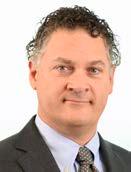
US LAW WINTER 2023 USLAW MAGAZINE 15
I never should have hired him, but...
Melisa C. Zwilling and Tinsley Griffin Hill Carr Allison
In a highly competitive job market, employers are more likely to make hasty hiring decisions. Often, individuals who would ordinarily never be considered for a position are hired because an employer is trying to manage crushing staff shortages. Choosing the “lesser evil” of the quick hire, however, can lead to significant issues for companies. Some common problems include unqualified employees who experience more work injuries, underperforming employees who cause productivity issues, employees who cause internal conflict that disrupts the entire workplace, and even litigation. By taking small steps of intentionality in hiring, employers can more effectively manage the increasingly difficult staffing situations presented by the current job market while reducing problems, including the risk of future litigation.
HIRING QUESTIONABLY QUALIFIED APPLICANTS
Even when faced with severe staffing shortages, it is very important to word job postings carefully. Postings should explain the level of skill, experience and education an employee must possess on day one. The more forthright a company is about its expectations and requirements, the more
likely it is to find a good fit during the hiring process.
Importantly, employers should review resumes and job applications thoroughly before selecting candidates to interview or hire. Oftentimes, applicants give fairly obvious clues about potential problems when first applying for a job. If a position requires certain skills, experience or formal education, employers should make sure the candidate’s application or resume indicates that he or she actually possesses the same. Employers should not just assume that all applicants for a job are qualified.
After screening applicants and selecting only those who truly appear qualified, an employer should prepare for an interview by drafting a list of general and job-specific questions. During the interview, ask for examples of previous experience that would show the implementation of the skills required for the vacant position. Listing skills and qualifications on an application or resume is easy. Through the interview process, employers should be able to determine whether a candidate actually has the necessary skills, experience and personality to perform a job safely and effectively.
When interviewing a job candidate, it is vital to listen carefully and pay atten-
tion. Make sure the potential hire does most of the talking. It can be tempting for interviewers to talk at length during an interview, but it is important to remember that the purpose of an interview is to learn as much about the potential employee as possible. Pay attention to body language and observe how forthright the candidate seems to be in responding to questions. If the candidate never makes eye contact, that may be an indication of dishonesty or an attempt to avoid answering a question. If the applicant makes negative statements about multiple previous employers, it may be an indication of someone who has difficulty getting along well with others. An interview affords employers an opportunity to make an initial determination of whether someone would be a good fit and, as such, is an invaluable part of the hiring process. No matter how desperate employers are to hire, they should focus on listening and observing during an interview more than talking. Only after an employer determines the candidate will be a good fit should it discuss company history or benefits or make an offer for employment.
Another important tool in the hiring process is the ability to check job candidates’ presence on social media quickly
16 WINTER 2023 USLAW MAGAZINE US LAW
and easily. Social media posts can provide employers with invaluable insight about potential employees. Are they excessively argumentative? Do they make posts during work hours or make negative or inappropriate comments about coworkers? Do they post sensitive and/or personal information? Is the content of posts highly controversial and in conflict with the company’s mission? Social media accounts provide an excellent opportunity for potential employers to get an inside look into whether a potential hire will fit well within the company.
THE “JOB-HOPPING” APPLICANT
Job hopping has historically been viewed as a red flag on a resume. Many employers believe that multiple jobs within a relatively short period of time can be indicative of issues such as an unwillingness to work as a team player or terminations for poor attendance or poor job performance. There is, however, a generational gap in perceptions about job hopping. More and more younger employees are entering the job market with the expectation of obtaining positions with flexibility, and they anticipate changing jobs multiple times throughout their careers. Also, in our post-pandemic tight labor market, one of the most efficient ways for younger employees to obtain significantly higher salaries is to change companies. This experience is very different from that of older generations, for whom loyalty to a company was the primary method of obtaining an increase in salary.
With this in mind, consider a longer list of past employers on a resume as a yellow flag rather than a red flag. If a potential employee has a long list of previous employers, take a close look at the job titles. Was the applicant making a series of lateral moves or were they instead moving upward in their career? Also, ask the candidate about reasons for job changes during the interview. Job changes to earn more money or for increased opportunities should be viewed more favorably than job changes because an employee was unable to get along with others or was terminated for poor job performance or attendance issues.
CRIMINAL HISTORY
Most employers ask about criminal history on job applications. While some use this as a method to screen out potentially unsuitable candidates, in a tight labor market, that practice may be a bit shortsighted. Instead, employers may want to pay attention to the content of the criminal history. For example, if a job candidate was
convicted for possession of marijuana in a state in which the use of marijuana has since been legalized, perhaps an employer should not let the conviction take the employee out of consideration. On the other hand, employers should always carefully consider crimes involving “moral turpitude.” Convictions involving dishonesty, like theft or forgery, and convictions for violent behavior should be considered very thoughtfully before an offer of employment is made.
ATTENDANCE ISSUES AND PRODUCTIVITY CONCERNS
In a pre-pandemic world, documentation of absences from the workplace was a fairly standard method of assessing employee productivity. This has changed drastically with the rise in work-from-home positions. According to the U.S. Census Bureau, between 2019 and 2022, the number of American employees who work from home tripled from roughly 9 million to 26.7 million people. For many employers, allowing employees to work from home has proven feasible, and oftentimes much more cost effective, than requiring physical presence at a workplace.
Employers who require an employee’s physical presence at work should carefully explain the attendance policy to job candidates. Hiring a warm body to combat staff shortages is not very helpful if that warm body rarely shows up. Further, disciplining and terminating employees can be a bit complicated. Ensuring that job candidates are well aware of attendance requirements before they are hired can help prevent problems and potentially reduce employment-related lawsuits.
RISE IN DISCRIMINATION CLAIMS
Concerns about possible employment discrimination claims should be at the forefront of every employer’s mind. Discrimination, harassment and retaliation lawsuits are on the rise, and juries have shown an increased willingness to issue huge verdicts against employers. However, there are some steps employers can take from the very start of employment to help reduce such claims.
First, employers should have an up-todate employee handbook that addresses important employment issues. Employees should be provided with clear options for submitting a concern or complaint, and those options should be communicated to all new employees upon hire. When a complaint is received, employers should immediately begin an investigation and maintain
documentation regarding the same. If a lawsuit is subsequently filed, that documentation can help establish that appropriate action was taken, which will help avoid liability.
WORKPLACE INJURIES
Finally, the practice of hiring all warm bodies who apply can lead to a significantly increased number of workplace injuries. Employees who are not engaged in their job and who do not respect work rules, including safety rules, are much more likely to be injured than those who are diligent and aware of their surroundings. Workplace injuries often occur when employees ignore hazards or believe they are invincible and will not be caught, or at least not be injured when performing a task in an unsafe manner. Hiring individuals who seem genuinely interested in a job can help reduce the number of workplace injuries that occur.
CONCLUSION
Realistically, in a tight job market, it can be very difficult to find a sufficient number of qualified individuals to fill vacant positions. However, the difficulties employers face from hiring people who are not qualified or are otherwise unsuited for a position can be much more significant than the difficulties that result from staffing shortages. Following the recommendations above will help employers make better hiring decisions which will lead to more productive and profitable business operations despite the current labor shortage.
Melisa C. Zwilling is a shareholder with Carr Allison in Birmingham, Alabama. In her 25th year of practice, she focuses on labor and employment, general litigation and Medicare compliance and represents clients throughout the United States. In addition to handling cases, Melisa regularly provides training for clients nationwide. She can be reached at mzwilling@carrallison.com
Tinsley Griffin Hill, Ph.D., is an associate in Carr Allison’s Birmingham, Alabama office, defending workers’ compensation claims and handling mediations. Tinsley graduated with a B.A. in Political Science from the University of Mobile and was the first female graduate of the J.D./Ph.D. program at the University of Alabama.

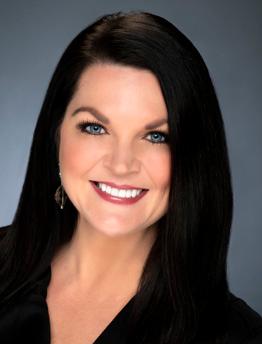
US LAW WINTER 2023 USLAW MAGAZINE 17
Cannabis, Consumer Fraud and Beyond
By Elizabeth Dalberth Sweeney & Sheehan, P.C.
As states continue to legalize the recreational use of cannabis, litigants are getting more creative with regard to suing cannabis companies. The recent case of Centeno and Wilson v Dreamfield Brands, Inc. and Med for America, Inc., case number 22STCZ33980, filed on October 20, 2022, in the Superior Court of the State of California, County of Los Angeles, illustrates how consumers are using claims of consumer fraud to sue manufacturers and sellers of cannabis. This case also raises several interesting ancillary issues involving cannabis law, insurance and trends.
Cannabis consumers Jasper Centeno and Blake Wilson sued the defendants, Dreamfield Brands, Inc. and Med for America, Inc., which are both California companies, alleging that the defendants committed fraud with regard to the manufacture, sale and marketing of the Jeter brand of pre-roll cannabis products. The complaint alleges that the advertising for the Jeter pre-rolls emphasized the potency of the strain, declaring, “This is the one joint that will get you to Mars quicker than Elon Musk.” The Jeter pre-rolls listed THC
content at 46%; however, the plaintiffs’ testing of the product revealed a much lower THC content of 23% to 27%. If true, this means that the THC content was inflated by 70% to 100% and was well above the general THC content range of 18% to 35%. Also, pursuant to the California Department of Cannabis Control regulations, the THC content presented on the label must be within plus or minus 10% of the true THC content of the product, and the Jeter pre-roll labels did not comply with this regulation. The suit includes a

18 WINTER 2023 USLAW MAGAZINE US LAW
class action element and alleges violations of California’s Unfair Competition Law, California’s False Advertising Law, breach of express warranty, negligent and intentional misrepresentation, and unjust enrichment. The suit is based on the premise that most consumers prefer and seek out cannabis with a higher THC content. Plaintiffs posit that, because of this demand, the sellers can set a higher price for products with a higher THC content. Plaintiffs then allege that sellers “lab shop” and use whichever lab provides them with the highest potency rating. The plaintiffs claim that they were injured because they would not have purchased the product if they had known that the THC content listed on the product was inflated. They also allege that they overpaid for the product due to the defendants’ misleading labeling. The plaintiffs claim that they relied on the defendants’ misrepresentations and false advertising, and the plaintiffs use a reasonable person standard in alleging that reasonable consumers not only expect that the declared THC content is substantially the same as the true THC content, but also expect that the labels of cannabis products comply with California state regulations. They further allege that the defendants’ misrepresentations were intended to induce reliance, that the plaintiffs reasonably relied on the misrepresentations when purchasing the product, and that the misrepresentations were a substantial factor in the decision to purchase the product. The plaintiffs request economic damages, punitive damages, restitution and an injunction.
The case was filed on October 20, 2022, and, as an initial conference is scheduled in February 2023, it is only in the beginning stages of the lawsuit. Certainly, it shows that consumers are willing to sue cannabis companies for failing to deliver an advertised high, and that there are legal avenues to pursue these claims, even if damages are purely monetary.
The case also illustrates several additional issues relevant to cannabis law. One such issue is that the Centeno plaintiffs did not allege products liability and sued under theories of fraud instead. This is presumably because, under California law, products liability damages generally consist of lost wages, medical bills and pain and suffering, which are not alleged in the Centeno complaint. However, under the right facts, a cannabis case could allege products liability for mislabeled products, and could also include claims for false advertising and failure to warn. In fact, there have already been claims of personal injury caused by cannabis use. For example, in Denver, Colorado, Levy
Thamba, a first-time user, ingested six times the suggested amount of an edible, jumped out of a window and died. The dispensary clerk advised Thamba and his five friends to split an edible cookie six ways, but when Thamba did not feel immediate effects, he ate the entire cookie himself, seemingly unaware of its potency. In another case that went into suit, a plaintiff/son sued his father and the defendants, a cannabis seller and a cannabis manufacturer, claiming that the father ingested product, suffered a psychotic break, and shot and killed his wife and the mother of his son. Andrew Kirk v. Nutritional Elements and Gaia’s Garden, 2016-cv-31310 (D. Colo., April 13, 2016). The case sounded in strict liability and failure to warn but was resolved prior to trial. These cases show that businesses should be aware of products liability risks, and protection by way of insurance, and that responsible parties for products liability claims could include manufacturers and growers, packaging entities and dispensaries.
Another interesting issue involves insurance and centers on the Centeno plaintiffs’ negligent misrepresentation claim, most likely alleged in an effort to ensure that there is insurance coverage, at least by way of the provision of a defense pursuant to a reservation of rights. However, one must look closely at policy language in evaluating whether negligent misrepresentation is actually covered under an insurance policy. For example, a claim may not fall within the “occurrence” or “accident” definition under the policy, and it has been held that deliberate or intentional conduct does not constitute an “accident” or “occurrence.” See. e.g., Lexington Ins. Co. v. Chicago Flameproof & Wood Specialties Corp., No. 17cv-3513, 2018 U.S. Dist. LEXIS 135871, at *14 (N.D. Ill. Aug. 10, 2018) ( “[M]ere inclusion of a negligence theory does not –and cannot – by itself satisfy the occurrence requirement. Nowhere in the complaint are there allegations of an unforeseen or accidental event . . .”) One must also take into account the timing of when the representations were made relative to when the damages occurred; the damages must be caused by the “occurrence,” and should not be too far removed from the misrepresentations. See, e.g., Langevin v. Allstate Ins. Co., 66 A.3d 585 (Me. 2013) (property damage pre-dated alleged misrepresentation).
The above cases also show that, in consulting with clients, it is a good idea to raise insurance issues, and cannabis businesses of all sizes should be counseled to obtain insurance for both general liability and products liability. Small to mid-size businesses may want to economize when obtaining
insurance to save on costs, but the failure to properly protect themselves could have devastating effects and could irrevocably damage a business.
The Centeno case also illustrates issues in the industry with regard to lab testing. Numerous states have had to address a lab’s failure to fail samples for microbial contamination, and for certifying incorrect, inflated THC potency. This is an area that litigants will want to exploit. These issues could be resolved by regularly publishing failed tests, thus enabling consumers to make informed decisions about where they want to purchase their product. There should be substantive, enforced repercussions for failed tests, and state agency testing should be performed on a regular, random, and extensive basis. Cannabis businesses should protect themselves from suit by ensuring they are using reputable labs and should make the accuracy of testing a priority.
Last, and as an aside, the Centeno complaint alleges that the focus of the industry is on THC content; however, it should be noted that there is a growing interest in compounds called terpenes. Briefly, terpenes are natural compounds found in cannabis plants and are responsible for the scent of the plant. Terpenes do not produce a traditional high like THC, which is the cannabinoid responsible for the psychoactive “high” feeling. However, there is an expanding focus on how cannabinoids and terpenes work together to increase efficacy, which could mean that a high concentration of terpenes, with a low THC content, could still produce a significant high. Current studies show that terpenes can effectively be used for medical purposes, such as pain management. Members of the cannabis industry should be aware of and stay informed about this growing trend.
In sum, as cannabis litigation increases, all members of the industry, including attorneys, insurance carriers and cannabis businesses, from growers to sellers, need to keep abreast of the applicable law, how it is being applied by litigants, and ways to protect against avoidable, and possibly expensive, adverse outcomes.
Elizabeth Dalberth of Sweeney & Sheehan, P.C. in Philadelphia practices cannabis law, employment, contracts, insurance, professional liability, personal injury and premises liability. She is a member of the Philadelphia Bar Association Cannabis Committee.

US LAW WINTER 2023 USLAW MAGAZINE 19
Is Online Jury Research Right for My Case?
By Merrie Jo Pitera, PhD, David
Thanks to COVID’s upending of our judicial system, virtual proceedings have been embraced—or, at least, tolerated—in many civil courts. Judges facing backlogs continue to rely on virtual proceedings as an expedient way to clear their overcrowded dockets. But, backlog or no backlog, it is likely we will never fully return to the way things were pre-pandemic. Arguments can be made for and against this new reality; few can deny that it has required attorneys, judges, and jurors to adapt.
The effects of virtual communication have become a hot topic within the jury consulting community as well, given the related uptick in mock trials, focus groups, and deliberation groups being conducted online. Such jury research projects share many of the same pros and cons as virtual court proceedings when compared to the in-person, “gold standard” format. Namely, while the internet can offer financial and logistical efficiencies, it undoubtedly changes the interpersonal dynamics of those hearing your case, particularly when they are deliberating to reach a verdict.
For these reasons, parties contemplating online jury research should be cognizant of its shortcomings and complications before determining whether it is right for
their cases. Based on a close examination of the existing literature, communication psychology, and our personal experience designing and conducting thousands of jury research exercises, we offer the following considerations to assist you in this regard.
WHAT MAKES THE ONLINE ENVIRONMENT DIFFERENT? LIMITED NONVERBAL COMMUNICATION
In communication and persuasion, words aren’t everything. As supported by the authors of the peer-reviewed article, Justice and Nonverbal Communication in a Post-pandemic World: An Evidence-Based Commentary and Cautionary Statement for Lawyers and Judges,1 facial expressions, gaze patterns, postures, hand gestures, and other body movements provide information on their own and improve the listener’s understanding of the speaker’s verbal information. Listeners then rely upon these patterns of nonverbal communication to process and comprehend what is being conveyed. Zoom and other virtual platforms, however, limit the breadth of view and the ability of attorneys and jurors to choose their focus; the available visual informa-
tion is limited to mere squares on a screen. Attorneys advocating their cases, and jurors subsequently advocating their positions, will find it more difficult to make headway without the power of nonverbal cues.
NO INTERPERSONAL EXPERIENCES
What we have noticed with both mock and real juries is that online juries demonstrate far fewer compromises; jurors will often vote when they get in the deliberation room and never really change their minds. Several of our clients have raised this issue and voiced frustration that the groups failed to come to any type of consensus.
For instance, in recent jury research conducted by our team, we tried the exact same case in both an in-person and online format (the online exercise even utilized video recordings of the attorneys’ in-person presentations). Comparing the two exercises, participants’ support for the prosecution or defense tracked closely throughout the day—until their deliberations. The jurors who deliberated in person came much closer to reaching, or did reach, a consensus, while those deliberating online remained nearly evenly split. In-person jurors likewise demonstrated a greater shift in their case leanings as a result of delibera-
20 WINTER 2023 USLAW MAGAZINE US LAW
Metz and Jennifer Cuculich, JD IMS Consulting & Expert Services
tions; their positions were more malleable.
As social psychologists, we have hypothesized that one key issue at play here is the lack of interpersonal experiences between online jurors prior to the deliberations— no pleasantries, no holding the door open, no having lunch, no getting to know one another during breaks. It would stand to reason that the removal of these small but crucial “human” interactions means jurors are less likely to work together or make compromises during the deliberation process.
Indeed, we spoke with two jurors who had just completed a real trial by Zoom. Both attested that although they could see the evidence better because it was presented right on the screen in front of them, rather than across the room, they disliked that there was no interaction with any of their fellow jurors until deliberations. One of the jurors (who had served in person many times before) explained that it felt awkward discussing the case with “complete strangers;” she never felt the same sense of camaraderie she had in other trials.
LESS INTERACTION = MORE CONFLICT
As a quick scan through Twitter can confirm, an online environment emboldens some people to strike out against others when they would otherwise face social pressure to be more polite, understanding, or equitable. A similar dynamic creates opportunities for additional interpersonal conflicts among jurors in the online format for verdict-driven projects. A virtual environment can allow disagreements and misunderstandings to snowball and create deeper divides than we see with in-person groups, where participants are able to “read” each other better and have a stronger appreciation of each other as “people.”
WHEN IS ONLINE JURY RESEARCH APPROPRIATE?
Based on the factors above, a reasonable conclusion is that conducting jury research online can adversely affect group dynamics, as compared with in-person research. It is, therefore, the deductive, verdict-driven models that suffer most; while presenting attorneys will struggle to communicate nonverbally with jurors in all online formats, deliberations (where jurors’ social cues and solidarity are impeded) stand to be affected most negatively. Thus, the accepted thinking supports using an in-person format for ver-
dict-driven research, such as a mock trial or deliberation group.
Ultimately, when making the decision to conduct jury research virtually or in person, we recommend that the research goals (what you want to learn), the type of research project, and the nature of the case be considered as key decision criteria.
RESEARCH GOALS
Virtual research is better suited if your goals are inductive in nature—that is, if you want to learn how jurors react and respond to discrete issues. This is typically done using a funnel approach to introducing the case content, i.e., a broad overview that funnels down to specific case issues. With less emphasis on attorney advocacy, it is not as dependent upon nonverbal cues as is a deductive, verdict-driven project. In our experience, online jurors are attentive to the pacing and structure of a focus group and provide quality feedback on discrete and straightforward issues.
RESEARCH TYPE
Tied closely with the goals of the research is the type of research to be considered. As an inductive design, a focus group works well in an online format to receive feedback by way of individual, virtual breakout rooms. Presentations are conveyed to the larger group, and then, at key points throughout the exercise, jurors are broken into small breakout groups to discuss what they just heard. And since jurors are not being asked to come to a group consensus via a verdict form, this format is effective to identify case gaps and develop case themes and arguments—all focused around the most important topics in dispute.
As one example, we recently conducted an online focus group for a client in the early stages of class-action litigation to identify the strongest and weakest fact patterns in the Plaintiff Class and to assess potential damages drivers. We then used its findings to develop and strengthen case themes and strategies for further testing at an in-person mock trial.
CASE NATURE
Online projects can be draining on jurors’ attention spans. Therefore, more complex cases—such as intellectual property or commercial litigation—can affect jurors’ ability to absorb and discuss the information. Further, jury consultants can set preventative
rules and supervise online participants to the best of their abilities, but we cannot fully control the variety of distractions a juror’s viewing location may present. As a result, we find that the virtual platform works best with less complicated matters, including vehicle accidents, products liability, and simpler breach of contract cases.
WHAT JURY RESEARCH FORMAT IS BEST FOR MY CASE?
While there can be efficiencies associated with a remote jury research project, it is best to decide on a case-by-case basis whether virtual is the right choice. We suggest a careful evaluation of what you want to achieve with your jury research, whether the type of research is suitable for a remote platform, and what type of case you are testing. We believe online jury research is most successful in a focus group format, where there are (traditionally) no deliberations and where nonverbal cues are less important. If you are evaluating a complex set of facts with a verdict-driven result, you would be well served to conduct your research in person to ensure a reliable assessment of your case.
Dr. Merrie Jo Pitera, senior jury consulting advisor at IMS Consulting & Expert Services, is a psychology and communication expert who specializes in complex litigation and trial consulting. With more than 30 years of experience, Dr. Pitera helps clients build persuasive case themes and perform at their highest level.

David Metz brings an important storytelling perspective to his role as a jury consultant with IMS Consulting & Expert Services, helping litigators understand their audience and the messaging required to persuade them.

Clients benefit from David’s skills in developing jury research test designs and analyzing data to produce actionable strategies.
As a jury consultant with IMS Consulting & Expert Services, Jennifer Cuculich, JD supports trial teams in high-stakes civil matters and advances clients’ cases with robust research, data-driven strategies, and persuasive messaging. Her background in litigation and education allows Jennifer to translate complex concepts and help attorneys “teach” the jury.

US LAW WINTER 2023 USLAW MAGAZINE 21
1 Denault, V., Patterson, M.L. Justice and Nonverbal Communication in a Post-pandemic World: An EvidenceBased Commentary and Cautionary Statement for Lawyers and Judges. Journal of Nonverbal Behavior 45, 1–10 (2021).
Transportation Defense Strikes Back: FAAAA preemption and the fight against plaintiff’s claims against transportation brokers and shippers
In light of the current environment of heightened verdicts in cases involving serious bodily injury or death arising out of truck accidents, claimants are now asserting claims not only against the truck driver and motor carrier, but also against entities that are “upstream” from the motor carrier, such as the transportation broker and shipper. Claimants allege the broker was negligent in its selection of the motor carrier, and the shipper was negligent in its selection of the broker. Employing some legal creativity, claimants also allege the broker and shipper were the employer of the truck driver, even though everyone involved in the shipment understood the truck driver to be the motor carrier’s employee.
Ther e are defenses to these specious claims. The primary defense is a federal statute known as the Federal Aviation Authorization Administration Act (“FAAAA,” often pronounced “F–four–A”), codified as 49 U.S.C. § 14501(c)(1). The statute prohibits states from “enact[ing] or enforc[ing] a law, regulation, or other provision having the force and effect of law related to a price, route, or service of any motor carrier . . . or any private motor carrier, broker, or freight forwarder with respect to the transportation of property.”
The argument is that the plaintiff’s state law negligent selection claim and vicarious liability claim against the broker and the shipper are preempted by FAAAA because these tort claims are based on state common law that relates to the service of a motor carrier with respect to the transportation of property.
The majority of courts that have addressed this issue have held that state law tort claims against brokers and shippers relate to the service of a motor carrier with respect to the transportation of property and are therefore within the scope of FAAAA. However, there is an exception to FAAAA preemption that the defense must also overcome. Under the so-called safety exception, Section 14501 exempts from preemption “the safety regulatory authority of a State with respect to motor vehicles[.]” 49 U.S.C. §14501(c)(2)(A).
In the past few years, many courts have held that a plaintiff’s state law tort claims against a broker or shipper fall within the safety exception, and therefore preempted by FAAAA. The most notable case to apply the safety exception is the Ninth Circuit’s decision in Miller v. C.H. Robinson Worldwide, Inc., 976 F.3d 1016, 1025-26 (9th Cir. 2020). The Ninth Circuit held “the phrase ‘with
respect to’ in the safety exception is synonymous with ‘relating to[.]’” Consequently, “the FAAAA’s safety exception exempts from preemption safety regulations that ‘have a connection with’ motor vehicles, whether directly or indirectly.” The court reasoned that, while a tort claim does not directly regulate motor vehicles, it does promote safety on the road, and for this reason, it is a safety regulation.
There is good news for the defense, however. Recently, courts have held that tort claims against brokers and shippers fall within the scope of the FAAAA, and the safety exception does not apply. Two such decisions were issued by the Northern District of Ohio, Lee v. Werner Enterprises, 2022 WL 16695207 (N.D. Ohio Nov. 7, 2022) and McCarter v. PAM Transport, 2023 WL 144844 (N.D. Ohio Jan. 10, 2023). In Lee, the court granted motions to dismiss filed by a transportation broker and a shipper. In McCarter, the court granted motions to dismiss filed by a transportation broker and other related entities that were “upstream” from the motor carrier.
The Lee case arises out of an accident between a truck and a car operated by the plaintiff, who sustained serious injuries in the collision. The plaintiff sued not only

22 WINTER 2023 USLAW MAGAZINE US LAW
Chris Cotter Roetzel & Andress LPA
the truck driver and the trucking company but also the transportation broker (Lipsey Logistics) and the shipper (Target) of the load being transported at the time of the accident. Lipsey and Target filed separate motions to dismiss, arguing the claims against them were preempted by the FAAAA.
In its Order granting both motions, the Northern District of Ohio explained how the plaintiff’s negligence claims against the broker and shipper “fall[] squarely within the preemption of the FAAAA.” Thus, the plaintiff’s tort claims against these entities “are included within the scope of the FAAAA preemption provision.”
Addressing the safety exception, the Northern District of Ohio addressed the Miller Circuit’s rationale for applying the safety exception, but explained, “This Court is not convinced.” The Northern District of Ohio first explained how “[t]he plain meaning of the words “safety regulatory authority of a State” does not support the inclusion of private tort claims.” And “if the safety exception preserved all claims related to motor vehicles,” then “all preempted claims would then be ‘saved’ by the exception.” In the Court’s view, “the FAAAA’s preemption provision protects precisely parties such as the shipper and broker, who did not have
direct involvement in the accident that injured Plaintiffs.” Finally, the Court rejected the plaintiff’s argument that she would be left without a remedy, because the plaintiff was able to seek recourse against the motor carrier and driver, and was doing so in the lawsuit.
The McCarter decision, issued by the same judge as in Lee, reiterated these same points with respect to FAAAA preemption of the plaintiff’s claims against the transportation broker. The court also dismissed the claims against the other entities “upstream” from the motor carrier, and “upstream” from the transportation broker, explaining that because “the liability of the primarily liable party was extinguished, the liability of the secondarily liable party [is] likewise extinguished.” Because the claims against the transportation broker were preempted, the liability of the transportation broker was therefore extinguished, and so the other defendants could not be held liable via a derivative theory of liability.
The Lee and McCarter decisions represent significant wins for the transportation industry. Moreover, the analysis employed by the Northern District of Ohio in these opinions, on both the scope of the FAAAA and the safety exception, is straightforward

and well-reasoned. It should also be noted that the court in these decisions was able to build on a prior Ohio decision on this issue, Creagan v. Wal-Mart Trans., LLC, a 2018 case in which the Northern District of Ohio granted summary judgment to a shipper and judgment on the pleadings to a transportation broker. 354 F. Supp. 3d 808 (N.D. Ohio). Because this issue is national in scope, and because these types of claims are being pursued by the plaintiff’s bar across the country, these Ohio decisions can provide strong support for FAAAA preemption across the country.
Chris Cotter is an attorney with Roetzel & Andress, LPA in Ohio. Chris primarily defends injury and business claims and advises on regulatory and compliance issues involving complex commercial motor vehicle accidents, products liability claims, retail claims, and professional liability claims. Chris also serves on Roetzel’s Emergency Response Team to immediately address issues that may arise as a result of catastrophic injury events, industrial accidents, fires, and other catastrophes.

US LAW WINTER 2023 USLAW MAGAZINE 23
Are Claims Handling Practices...
I have been in insurance claims for approximately 25 years. When I was 2-3 years in and met people with 20-plus years, I never considered I would get to this point. Not because I did not want to stay in the industry, but 20-plus was a number I had never done anything that long but be alive.
From my first week in investigations to just last week, one thing has remained constant: frustration across the industry to battle minor claims that are not a high dollar but are concerning. These claims linger in a cost-to-go-away versus the costto-defend abyss. There is a large population of claimants who are perfectly happy with this environment. They follow a formula - make a claim, accept a minimal amount of settlement and then wash, rinse, repeat. These claimants know how to work the system, and there are plenty willing to scheme along with them.
Are we okay with this?
The converse of those claimants is a population of claims professionals, some with 25 years under our belts, who have seen senior mentors retire with the lingering frustration they could do nothing about those working the system.
So, what are we going to do? With our
society observing more questionable claims and fraudulent actions exposed across many landscapes, we all know this: we have had the desire to defend more. Finding the truth under all the noise is more of a priority across all claims than ever before, and it is about time.
Statutes, case law and jurisdictional issues impact claims, but I offer another factor: decades-old claim-handling practices. Are practices keeping up with the opportunity this current climate gives us?
What do I mean by claim handling? For the purposes of this article, this means evaluating the merits of a claim and then being able to defend by using the weapon of information and knowledge against the other side.
Much focus and resources are put into catastrophic claims for obvious reasons. Handling catastrophic claims is an all-hands-on-deck job to mitigate and attain fair outcomes, and I love being involved in those claims.
That said, I want to focus on the claims deemed “minor” in nature, whatever that may be at your respective company. If you are a defense attorney, you have countless cases originating from a minor claim. More
professionals touch these claims to keep the paper moving, but that process is what creates the opportunity to work the system for claimants. These are not high dollars individually but are worth focusing on because we can mitigate minor claims better than ever.
I will outline some decades-old practices and present some real options with arguably more meaningful results to impact a minor claim.
HANDLING PRACTICES THAT MAY BE FAMILIAR
• Initial payments: Hoping to resolve claims by covering low-dollar thresholds even on frequent/ repeat claimants.
• MIST/LIST Claims: Minor incidents, wait and see, then demand comes months/years later, blindsiding you.
A COUPLE OF TRADITIONAL STEPS IN CLAIM HANDLING ONCE A SUIT IS FILED
• Independent Medical Exam (IME): Favorable medical opinion, encouraging litigation, to
Tim Karlstad
Marshall Investigative Group
24 WINTER 2023 USLAW MAGAZINE US LAW
... Keeping Up with the Times?
battle the other side’s favorable medical opinion.
• Depositions: Go into a deposition and see what comes out, then react.
APPROXIMATION COSTS ASSOCIATED WITH THE ABOVE
• Low-dollar thresholds: $2,000$5,000. Pay them, and I hope it goes away.
• MIST/LIST claims: Set minimal stat reserve based on company guidelines and wait.
• IME: $2,500 - $3,500
• Depositions (1): $1,800-$2,500

Minor claims traditionally do not consider outside investigative services because of low payments, no letter of rep or demand, no need for IME, and not considering a deposition. Then, only after any of that occurs are outside investigative services contracted.
At Marshall Investigative Group, we recommend services on the front end of minor claims to position yourself for confident handling without provoking litigation and potentially exposing questionable claims.
ACTIVITY/BACKGROUND CHECK: Provide a report about the claimant and what might motivate the claim.
INTERNET PRESENCE REVIEW: Identify and capture internet content, not only to evaluate at the time but if this is a “wait-andsee” claim, in 10 months, everything may be deleted.
SKIP TRACE/LOCATE: Do you know where your claimant resides? More importantly, do you know where witnesses reside? Before you close out that minor claim and hope nothing comes of it, do you know where your witnesses still are/plan to be?
These investigations enhance traditional claims handling, allowing you to reserve more accurately, be confident in closing out an idle claim, prepare to make payments, discuss settlement, schedule an IME, or go into a deposition.
I always believed it essential to develop something in a claim a plaintiff attorney cannot simply duplicate and counter. If you make a minimum payment/offer, they can counter with high demand. You could be blindsided if you wait and see what comes
from even the most minor claim. When you conduct an IME, deposition, or expert opinion, the plaintiff will do their own.
I cannot stress more the importance of obtaining the correct information that gives you the knowledge to assess the merit of your claim. That knowledge can only be achieved by doing an investigation. Investigations can become the gamechanger and, in some cases, the best way to use your resources.
Tim Karlstad, director of research, joined Marshall Investigative Group in 2015. He has been in the claims investigation field since 1999, working within law firms, TPAs and corporate risk management. Tim has been working with USLAW member firms and their clients since 2009. He holds a degree in criminology/sociology from the University of Minnesota-Duluth.
US
WINTER 2023 USLAW
25
LAW
MAGAZINE
Enterprise Insolvency in the Time of COVID-19: Giving Creditors a Strong Voice
George Wang Duan & Duan
Since the outbreak and rapid spread of COVID-19 around the world, the Chinese economy has been suffering one of the most severe impacts. The data from the National Enterprise Bankruptcy Information Disclosure Platform reveals that the number of enterprise insolvency cases nationwide has reached 300,000 (as of December 7, 2022). Generally speaking, companies established by the U.S. corporates in China are usually engaged in manufacturing and service industries. Due to the complex and ever-changing nature of the current global economy, their essential customers in the mass production chain may go into insolvency proceedings due to worsening economic situations. This article will introduce important creditor rights for these foreign-invested companies in the Chinese insolvency proceedings, in addition to declaring claims.

As early as the drafting stage of the Chinese Enterprise Insolvency Law, there were many references to international legislative experience, including U.S. legislation. As such, some types of bankruptcy set out in the U.S. Bankruptcy Code could also be found in the Chinese legal frameworks,
such as liquidation and reorganization. For the creditor ranking determined in the PRC Enterprise Insolvency law and judicial interpretations, the priority of creditor rights is in descending order:
• Secured claims.
• Bankruptcy expenses.
• Common benefits debt (which are not separated from bankruptcy expenses under the U.S. insolvency framework).
• Employee claim.
• Taxes.
• General unsecured claims.
RECLAMATION RIGHT
Content of the right Reclamation right under Chinese enterprise insolvency structure usually refers to the right to recover property that is not owned by the insolvent but in the possession and management of the insolvency representative. Specifically, the scope of such property defined in judicial interpretations is mainly based on the legal relationship such as storage, custody, processing, agency transaction, sale by proxy, borrowing, deposit, lease, title retention, etc. The owners
or other rights holders just need to apply to the insolvency representative for scrutiny instead of declaring. If the insolvency representative does not approve, they could bring an action against the insolvent.
In practice, reclamation right is usually exercised in the title retention sale contract. Whether the seller reclaims the goods, the insolvency representative has the power to decide to continue the performance or terminate. Firstly, if the contract continues to be performed, a seller could reclaim its goods if the insolvency representative fails to pay in due course or fulfill other contractual obligations, or the goods are improperly disposed of, except that the buyer (the insolvent) has already paid for more than 75% of the total price, or a bona fide third party has obtained the ownership or other property rights. The loss and damage caused by the aforementioned shall be categorized in the common benefits debt.
Secondly, if the contract is terminated, the seller should make a refund before reclaiming. However, if the value of the goods is evidently reduced, where the buyer’s payment is not enough to makeup, the seller
26 WINTER 2023 USLAW MAGAZINE USLAW
could claim for such loss, which is treated as common benefits debt.
Hence, it is recommended to make agreements on the title retention clause with the customers in purchase and sale contracts if customers are not in a good financial situation. The title retention clause will enable the reclamation and thus make the seller take back the goods or the consideration from the insolvent.
Restrictions
Firstly, sellers shall pay for the costs incurred to reclaim the goods. The insolvency representative has the power to decline if the seller fails to pay.
Furthermore, sellers shall reclaim to the insolvency representative before the realization plan of the insolvent’s property, settlement agreement or draft plan of reorganization is submitted to the creditors’ meeting for voting. For those who reclaim after the deadline should bear the increased cost.
Finally, in the insolvency reorganization proceedings, the exercise of the reclamation right shall comply with the terms and conditions agreed in advance to protect the insolvent’s property from being taken away at will. Otherwise, the insolvency representative has the power to decline.
AVOIDANCE ACTION
Avoidance action shall generally be taken by the insolvency representative if the insolvent (a) transfers the property without consideration; (b) makes transactions at obviously unreasonably price; (c) provides security on the unsecured property; (d) pays off undue debts; (e) waives claims 12 months before the court accepting the insolvency filing, or if the insolvent is unable and its property is insufficient to pay off its debt due, or it clearly lacks solvency but still makes prepetition payment to individual creditor six months before the court accepting the insolvency filing.
However, when the insolvency representative fails to do the aforementioned, the creditors may supervise and urge it to exercise - and also, may directly bring an avoidance action - to recover the insolvent’s property.
In practice, there are three key points summarized from the judicial judgments. Firstly, in the viewpoint of the Supreme Court, the insolvent’s provision of security for others without consideration is not fundamentally different from “transferring property without consideration.” Secondly, for the determination of transactions at an obviously unreasonable price in judicial judgments, it generally refers to the transaction price of less than 70% or more than 30%
of the government guidance price or market price at the time of transaction. Thirdly, regarding the specific requirements of the provision of security interest, avoidance action could be exercised under the circumstance where the security is provided on the pre-existing debt. In other words, where the insolvent provides security together with the main contract entered into with the creditor is not included in the avoidable cases.
SECURED CLAIMS
Security interests are the common basis of the exemption rights in enterprise insolvency proceedings. The nominate security interests under the PRC Civil Code are mortgage, pledge, and lien. In principle, such secured property should be exempted from the insolvent’s property to be divided among all general creditors. The exception is that during reorganization, the exercise of secured claims is suspended if the secured property is necessary for the reorganization. In practice, creditors with security interests in the insolvency proceeding are generally banks, trust companies, and other financial institutions or their assignees of the secured claims. The principal form of security interest granted over real property is a mortgage. For the mortgage to be established and enforceable against third parties, it must be registered under the local Real Estate Registration Center.
To guarantee the performance of the contracts with customers, other common practical approaches could also be employed by the creditors. The first type is an independent letter of guarantee, which could only be issued by banks and other financial institutions in China. Otherwise, the agreement to exclude the subordination of the guarantee shall be void. The second type is a performance bond. Parties shall make clear agreements on the standard and time of the payment and interest, coordination on the overlap with liquidated damages, etc., to reduce possible disputes. Last but not least, creditors may require the shareholders to serve as guarantors as a means of ensuring the full performance of contractual obligations by the customer.
PRIORITY OF CONSTRUCTION PROJECT FEES
Priority of construction project fees is one of the special priorities constituting the basis of exemption rights. Under EPC contracts, the contractor shall carry out the whole process of design, procurement, construction, and completion acceptance, and be responsible for the quality, safety, construction period, and cost. As such, it is often difficult to crystallize the cost at vari-
ous stages. The contractor has priority right on all the claims in terms of the realization value of the project itself. Notably, the interest, liquidated damages and compensation for damages for overdue construction payments are not included in the priority scope.
CROSS-BORDER INSOLVENCY
Up to now, China has not participated in or concluded any international cross-border insolvency treaties. The recognition and judicial assistance of the overseas insolvency proceedings are limited to the principled guidance in Article 5 of the PRC Enterprise Insolvency Law. On one hand, it has established the basic principle that Chinese insolvency proceedings have an extraterritorial effect on the insolvent’s offshore property. On the other hand, the recognition of foreign insolvency proceedings by the courts is based on the principle of reciprocity.
In 2021, the Supreme People’s Court and the Government of the Hong Kong Special Administrative Region signed the Record of Meeting of the Supreme People’s Court and the Government of the Hong Kong Special Administrative Region on Mutual Recognition of and Assistance to Insolvency Proceedings. Such judicial assistance on a pilot basis was a substantial and constructive step forward in Chinese cross-border insolvency framework.
To sum up, this article focuses on the Chinese enterprise insolvency legal framework for protecting and realizing creditor rights. It intends to provide certain routes and thoughts from the perspective of foreign-invested companies doing business in China as creditors. Foreign corporate creditors need to keep a close watch on domestic customers who may fall into insolvency crisis.

George Wang is Managing Partner of Duan & Duan Law Firm in Shanghai, China. He holds a Magister of Juris from Oxford University and was awarded Chevening Scholarship from the UK government. He has represented foreign investors (including multiple Fortune 500 companies) to handle over 100 FDI and M&A projects. He serves as a member of the Foreign Affairs Committee of the Shanghai Bar Association and legal counsel of Shanghai Foreign Investment Association. He was also awarded as Foreign Leading Talent, the “A-List” 100 Lawyers of China Business Law Journal, and Chambers
“Leading Lawyer” in Corporate & Commercial Practice 2022.
US LAW WINTER 2023 USLAW MAGAZINE 27
The Internet’s Pervasive Effect on Commerce: Can the Courts Keep Up?
By Noel D. Humphreys Connell Foley LLP
The “law” struggles as the internet permeates all corners of American life.
Three recent cases illustrate these pervasive effects. “Work from home” brings surprises in the Federal Circuit. Streaming video affects city budgets in the Eighth Circuit and state tax collection in the Ninth Circuit.
In the Federal Circuit decision, a plaintiff had brought a patent infringement action in the Western District of Texas on the basis that the defendant, Monolithic Power, had four employees in Austin working remotely from their homes, and one of the employees had equipment provided by the employer that the employee used to perform his regular work for the employer. In addition, the employer regularly recruited in the Austin metro area. Based on those facts, the district court accepted the plaintiff’s assertion that the venue was proper.
In the two-to-one decision, the dissenter, Judge Lourie, wrote that remote work with the employer’s tools did not meet the statutory standard of a “regular and established place of business.”
The panel’s two prevailing judges wrote that the district court’s ruling “does not involve the type of broad, fundamental, and recurring legal question or usurpation of judicial power that might warrant immediate mandamus review.”
As the internet has empowered many more workers to work remotely, employers may become subject to various claims in remote venues where remote workers live and work.
In the Eighth Circuit matter, Arkansas had enacted a statute allowing video service providers to use public rights of way to deliver services and seek a statewide franchise that would pay local jurisdictions a fee with-

out needing a local license. Ashdown, population 4,261, north of Texarkana, wanted Netflix and Hulu to buy a state license, even though video programming available over the “public Internet” was outside the scope of the statute.
The district court and the Eighth Circuit ruled that the Arkansas statute did not create a right of action by the municipality to require a streamer to buy a state license. The municipality argued, among other things, that because these services required a subscription, their services were not available over the “public internet.” The district court cited the analogy to a car; whether or not the car doors are locked, the highway the car is on remains a public highway. Similarly, in the Ninth Circuit matter, California sought to collect sales taxes from vendors whose goods were stored in Amazon warehouses in California and sold
28 WINTER 2023 USLAW MAGAZINE US LAW
through Amazon under a program where Amazon “fulfilled” the order placed with the third-party vendor. After October 2019, Amazon collected California sales tax and remitted it to the state, but previously under California law, the third-party vendor was responsible for paying California sales tax on those sales. California sought payment, and the merchants sought to have federal courts stop California from pursuing those tax payments.
The district court and the Ninth Circuit
decided that federal courts lacked the authority to intervene in California’s attempt to collect California tax. The unanimous Ninth Circuit panel wrote, “The relief the Guild requests would prevent the collection of taxes owed. Therefore, the requested relief would “to some degree stop” the assessment or collection of a state tax, and federal courts lack jurisdiction” under existing federal law.
These three Circuit Court decisions exemplify the impacts of internet-facilitated

1 In re Monolithic Power Systems, Inc. Case: 2022-153, U.S. Court of Appeals for the Federal Circuit (September 30, 2022)
2 City of Ashdown, Arkansas v. Netflix, Inc.; Hulu, LLC, case number 21-3435, U.S. Court of Appeals for the Eighth Circuit (September 20, 2022).
3 Online Merchants Guild v. Maduros, No. 21-16911, 2022 BL 401266 (9th Cir. Nov. 09, 2022)
business --- remote work, streaming video, and out-of-state sales --- on established patterns in the law, such as where the venue is appropriate and how taxes get collected. As business leaders and legal decision-makers adopt digitally facilitated ideas, contracts and advice must keep up with a changing world.
Noel Humphreys, Of Counsel at Connell Foley in Roseland, New Jersey, focuses on business transactions, lending transactions, organizational governance and intellectual property. He advises on transactions that often involve leveraging the value of patents, trademarks, copyrights and trade secrets, and he is particularly interested in privacy issues and data protection.
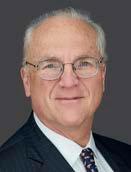
US LAW WINTER 2023 USLAW MAGAZINE 29
The ‘‘S’’ in ESG European Union sets new legal framework for Social Governance
By Dr. Jan Tibor Lelley, LL.M. and Dr. Yuanyuan Yin, LL.M. BUSE
The EU has developed a classification framework for sustainable activities in the business world that can be broken down into three categories:
• Environmental
• Social
• Governance – together also known as ESG.
ESG criteria are becoming more and more significant in regard to businesses’ sustainable development in the long term. Different from the traditional evaluation of corporate financial performance, ESG has been seen as an investment concept and corporate evaluation standard which focuses on corporate environmental, social responsibility and corporate governance performance. The S, Social, criteria are not only focused on the company’s relationship with its employees, e.g., labor standards, diversity, and inclusion. It also takes internal stakeholders into account, and even considers compliance with social criteria along the whole supply chain. In addition, social criteria are a critical aspect when it comes to a company’s reputation.
SOCIAL MASTERCLASS? EU’S CORPORATE SUSTAINABILITY DUE DILIGENCE DIRECTIVE
On February 23, 2022, the European Commission published the proposal for a Directive on Corporate Sustainability Due Diligence (CSDD (EU)2022/0051(COD)).

The directive aims to foster sustainable and responsible corporate behavior throughout global value chains. It will enhance the protection of the environment and human rights in the EU and beyond to succeed in the EU’s transition to a climate-neutral and green economy in line with the European Green Deal and in delivering on the UN Sustainable Development Goals. Companies will be required to
• identify
• prevent
• end
• or (at least) mitigate adverse impacts of their activities on human rights, such as child labor and exploitation of workers, and on the environment, for example, pollution and biodiversity loss. Therefore, the management of a company needs to appropriately incorporate envi-
ronmental and social risks into the company’s long-term strategies, business decisions, and financial and investment planning and consider the related opportunities and impacts. The due diligence obligations must be integrated into corporate policy, which includes risk management, risk analysis, preventive measures, and establishment of a complaints procedure, etc.
According to CSDD, the new due diligence rules will first apply to EU companies of substantial size and economic power that have more than 500 employees and a more than EUR 150 million worldwide net turnover. In two years, the rules will also apply to other companies operating in the EU in defined high-impact sectors (e.g., textile and leather industry, agriculture, raw materials extraction, or metal processing) that have more than 250 employees and a net turnover of EUR 40 million worldwide and more. The directive also applies to non-EU companies active in the EU, however, Small and Medium Enterprises (SMEs) are not directly in the scope of the directive. CSDD applies to the company’s own operations, their subsidiaries, and their value chains, which means
30 WINTER 2023 USLAW MAGAZINE US LAW
both direct and indirect established business relationships of the company.
Germany, as the most important economy in the EU, has already introduced regulation even though the EU itself is still discussing even stricter rules; The German Supply Chain Act (LkSG) came into force on January 1, 2023. The law regulates corporate responsibility for human rights compliance in supply chains for the first time. From 2023, the law initially applies to companies with at least 3,000 employees, and from 2024 also to companies with at least 1,000 employees in Germany.
ESG INCENTIVES FOR THE C-SUITE

Linking ESG criteria to compensation systems for executives and even regular employees is nowadays a growing trend in the EU. Apart from the expectations of investors, the employees and the public, taking ESG criteria into account in compensation schemes is considered to have a leverage effect on integrating sustainability aspects in companies’ HR policies. The basic goals of this compensation option are rewarding the c-suite for their contribution to ESG and helping the company achieve its ESG goals. 42 of the 100 largest European companies use ESG criteria as a variable component of executive compensation. In France, there are about 70 percent of the 50 largest companies use ESG criteria for executive compensation as of 2021. Since January 1, 2020, in Germany, according to section 87 Stock Corporation Act (AktG), the compensation structure of board members of listed companies must be geared to the “sustainable and long-term” development of the company. A survey conducted by the investment company Union Investment together with the Sustainable Governance Lab at the University of Giessen shows that almost all big stock-listed companies have included sustainability targets in the remuneration of their management boards, and another HR survey in Germany finds that 47% of the companies take ESG criteria into consideration when assessing the remuneration of members of the management team.
But ESG in the context of incentive plans doesn’t just mean to change the traditional company car to an e-vehicle. ESG criteria are expected to be set in the compensation systems, ideally throughout the entire company and for employees at every level of the organization. ESG incentives can be based on specific requirements regarding DEI, health protection and occupational safety, and this can be taken into many different forms. For example, bonuses for participation in ESG training courses or involvement in social projects are conceivable. Members of a company’s management and also rank-and-file
employees can be rewarded for their contribution to the company’s ESG transformation. Or the annual bonus of the management can be evaluated by the company’s ESG performance. However, it needs to be taken into consideration that the ESG goals often cannot be achieved in a short time. Therefore, a company can create a long-term ESG incentive plan in accordance with incorporating ESG into its business.
GUIDELINES OF THE CORPORATE GOVERNANCE CODE
Since June 2022, the new German Corporate Governance Code (DCGK) entered into force. The DCGK is a set of rules that primarily contains recommendations and suggestions for listed companies on good corporate governance. The DGCK is issued by the German Federal Ministry of Justice and the rules are the most important guidelines for companies’ best practices in Germany. The Code is reviewed annually by the Government Commission on the German Corporate Governance Code and amended, if necessary. The latest amendment of the DCGK essentially places an increased focus on environmental, social and governance (ESG) criteria. As a result, listed companies must also consider and monitor social and environmental sustainability as part of their corporate strategy and planning.
The DCGK describes the role of company in society and its social responsibility (corporate citizen). In that sense, company’s social responsibility is not limited to the influence of environmental and social factors on corporate success. Additionally, the impact of the business on humanity and the environment also must be considered from the inside-out perspective. The management board and supervisory board can integrate these perspectives into their day-by-day operations and monitor activities in the interests of the company. Furthermore, recommendation A.3 of DCGK states that internal control and risk management systems will also need to monitor sustainability targets as well as the collection and processing of sustainability data in the future, which is suitable for the company’s specific risk profile. According to Recommendation C.1 of DCGK, the competence profile of the supervisory board has been expanded to include expertise regarding sustainability issues relevant to the company. Recommendation D.3 states that accounting and auditing of the company shall also include sustainability reporting.
SUNSET FOR ESG?
In the EU, ESG has been increasingly critical to the overall development of businesses in the long term and legislators tend
to strengthen laws and rules and establish even stricter regulations in this field from a worldwide prospective. The EU is currently discussing the final form of the CSDD and intends to impose even harsher legislation. Also in Asia, for example in China, ESG is becoming a more and more significant criteria when it comes to a company’s business development and governance, especially for listed companies in this regard. According to the Guidelines of the Shanghai Stock Exchange in 2022, to promote the harmonious and coordinated development of the company itself and society as a whole, listed companies should actively protect the rights and interests of stakeholders, employees, suppliers and consumers with integrity, practice the concept of sustainable development. And they are expected to actively engage in environmental protection as well as public social welfare projects, while pursuing economic benefits and protecting the interests of shareholders.
But on the other hand, a recent ESG investing report by the business paper The Economist criticized the ESG scoring system as being operated by an unreliable third-party rating agency. The report also states that “sustainable investment” is not more than a third of all assets under management in the big economies, which makes ESG look more important than it actually is. Also noticeable according to the paper is that “ESG has become a gravy train for the investment industry.” Investors may prefer to invest in companies with better ESG performance, however, some asset managers have turned this to their own advantage.
So, sooner than later, the time might come to rethink and repair the existing ESG system.
Dr. Jan Tibor Lelley, LL.M. is a partner at BUSE in Germany and works in the firm’s Essen and Frankfurt am Main offices. Jan works exclusively on labor and employment law cases. He can be reached via lelley@buse.de and @JanTiborLelley.
Dr. Yuanyuan Yin works as a legal consultant at BUSE’s office in Essen. She is a member of the Labor & Employment Law Practice Group and the BUSE China Desk. Dr. Yin holds a Master of Law degree from Shanghai Tongji University in China and a PhD in labor law from the University of Bremen in Germany.

US LAW WINTER 2023 USLAW MAGAZINE 31
Arizona Supreme Court Clarifies Punitive Damage Standard
In Swift v. Carman (Arizona Supreme Court August 23, 2022), the Arizona Supreme Court recently clarified the standard for seeking punitive damages, effectively extinguishing claims seeking punitive damages for merely negligent or even grossly negligent conduct.
In Arizona, the seminal punitive damage cases from the 1980’s held that claimants seeking punitive damages needed evidence “of an ‘evil mind’ and aggravated and outrageous conduct.” Subsequent cases muddied those waters, however. They stated that even if the defendant’s conduct was not outrageous, a jury could infer evil mind if the defendant deliberately continued his actions despite the inevitable or highly probable harm that would follow. Further, the quality of the defendant’s conduct was relevant and important “only because it provides one form of evidence from which [the] defendant’s motives may be inferred.” This led to confusion over whether a punitive damage claim requires evidence of only an evil mind, or both an evil mind

and outrageous conduct. The confusion seemed to stem from the fact that most of the punitive damages cases were insurance bad faith cases – cases involving intentional torts which did not focus on the insurers’ conduct.
Swift was not an intentional tort case, however. It was a trucking case in which the plaintiffs had claimed that Swift’s tractor trailer driver negligently passed a vehicle on the right, in the rain, on a downhill-sloping curve. The truck hydroplaned and jackknifed, partially blocking the left lane of traffic. Another tractor trailer came by and, trying to avoid the jackknifed tractor trailer, collided with two other vehicles, killing and injuring several travelers.
Plaintiffs sued Swift for negligence, alleging it was vicariously liable for the driver’s negligence. They also sought punitive damages. Their theory was that the driver “consciously disregarded an unjustifiable risk of significant harm” when he drove negligently on a wet roadway, knowing that an empty trailer was less stable and more
likely to hydroplane. Plaintiffs did not claim that the driver’s conduct was aggravated or outrageous. They argued they did not need to make that showing to be entitled to punitive damages. The trial court agreed, and thus allowed plaintiffs to conduct discovery into Swift’s finances.
The Supreme Court granted review. After detailing the purpose and history of punitive damages, the Court reiterated that only a knowing culpability warrants punitive damages in order to curb future reprehensible behavior. As such, to be entitled to punitive damages, once a plaintiff establishes that the defendant engaged in tortious conduct of any kind, intentional or negligent, the plaintiff must prove the defendant engaged in such conduct with an “evil mind.” To establish an evil mind requires clear and convincing evidence that the defendant’s actions either (1) intended to cause harm, (2) were motivated by spite, or (3) were outrageous, creating a “substantial risk of tremendous harm to others.”
With a negligence claim, by definition
32 WINTER 2023 USLAW MAGAZINE US LAW
Eileen GilBride Jones Skelton & Hochuli, P.L.C.
there is no intent to injure the plaintiff; after all, negligence is simply carelessness. And a negligent defendant is unlikely to be motivated by spite or ill will. Thus, the only means by which a plaintiff is likely to meet the punitive damage standard in a negligence action is by demonstrating that the outrageousness of the defendant’s conduct is such that the defendant had an “evil mind” when engaging in such conduct—in other words, that the defendant showed a conscious and deliberate disregard of the interests and rights of others. This can be shown, for example, by a pattern of dishonest or fraudulent conduct, or when the tort is committed for an outrageous purpose.
Su mming up, the Court reiterated that to be entitled to punitive damages, a plaintiff must establish that the defendant knew, or intentionally disregarded, facts that created an unreasonable risk of physical harm—a risk substantially greater than that necessary to make his or her conduct negligent or even grossly negligent—and consciously disregarded that risk. It is not
enough that a defendant had reason to appreciate the severity of the risk—such as a driver who has been taught that wet roads are slippery and more dangerous. Instead, the defendant must have actually appreciated the severity of the risk at the time before consciously disregarding it. The Court warned: “Absent proof of the intent to cause harm or that the defendant acted out of spite or ill will, outrageous conduct will always be required to sustain a claim for punitive damages in negligence cases. The distinction between ordinary or even gross negligence and the conduct that permits punitive damages is critical. Indeed, it will be only the rare negligence case that meets this standard.” Swift, ¶¶ 25, 26 (emphasis added).
Applying this standard to the facts in Swift, the Court concluded that the driver’s conduct did not establish a prima facie case for punitive damages. The driver might have been negligent, but negligence (even gross negligence) is not enough for punitive damages. The record was devoid of evidence
that the driver consciously pursued a course of conduct knowing it created a substantial risk of significant harm to others. His alleged negligence was not the outrageous conduct required to establish an evil mind.
The Swift case will certainly curb the number of punitive damage claims that get to a jury in Arizona. It also serves as an important reminder that the purpose of punitive damages is to punish truly intentional or consciously wrongful conduct, not to further compensate claimants for conduct that is only negligent—even very negligent.

Eileen GilBride has chaired the appellate department at Jones, Skelton & Hochuli. She has handled more than 500 appeals at every level of the state and federal courts, resulting in over 80 published decisions. She also advises trial lawyers on the substantive areas of their practices, from answers to post-trial motions.

. US LAW WINTER 2023 USLAW MAGAZINE 33
The 411 on Medicare Set-Asides and How Professional Administration Can Help
The complexities surrounding compliance for Medicare Set-Asides (MSAs) can be confusing for even the most experienced claims professionals, let alone an injured worker. And the consequences of failing to develop and manage MSAs properly can be dire – for both the injured worker and the payer.
The last two decades have seen an entire industry evolve to address the issue. Stakeholders now spend months – even years – studying the Medicare Secondary Payer Act to become specialists. But still, many industry professionals – and injured workers – don’t see the critical importance of understanding and strictly adhering to Medicare’s requirements.
MSAS: WHAT THEY ARE AND WHY THEY EXIST
When an injured worker settles their workers’ compensation claim, a sum of money is typically given to pay the costs of future medical treatments needed for the occupational injury. The issue gets tricky when the injured worker is – or soon will be – covered by Medicare.
Medicare typically pays its beneficiaries’ medical costs – UNLESS payment is
deemed the responsibility of another entity. The Medicare Secondary Payer Act, passed in 1980, requires that Medicare be the secondary payer to certain primary plans –such as workers’ compensation.
Just as the general healthcare system does not pay for workplace injury treatment, neither does Medicare. The workers’ compensation system is designed to have the ‘payer’ – employer and/or insurer –provide treatment coverage; in return, the injured worker may not sue the payer.
To ensure the financial burden does not erroneously fall to Medicare, the government has made it clear that Medicare’s ‘future interests’ must be considered when settling a claim. In other words, an estimated sum of money for the injured worker’s medical treatment related to the occupational injury should be determined. Getting the best ‘estimate’ of the medical costs needed for the person’s lifetime is one of the trickiest parts of the equation.
Trained experts can make a reasonable estimate based on medical opinions and previous medical care related to the injury. One way to determine that is through a Medicare Set Aside report. This is an allocation report that shows an estimate of the
various treatments related to the injury that would be covered by Medicare, such as:
• Prescriptions
• Doctor appointments
• Surgeries
• Injections
• Intermittent home healthcare, if that is or expected to become necessary
The report includes an estimated amount of money needed to treat the injury throughout the person’s lifetime. The injured worker’s settlement may include the MSA lump sum as part of the agreement. That money is set aside specifically to pay for medical treatments for the occupational injury that Medicare would otherwise cover.
Th e government does not require MSAs. However, many experts advise these as a way to demonstrate that Medicare’s future interests have been taken into account, as they demonstrate funding is available to treat the injury.
The Centers for Medicare and Medicaid Services, which oversees Medicare, will evaluate and approve or deny some MSAs, depending on the settlement amount. This is yet another way injured workers can avoid getting in the
34 WINTER 2023 USLAW MAGAZINE US LAW
Andrea Mills Ametros
crosshairs of the federal agency.
If the MSA funds dry up, but the injured worker still requires medical treatment for the injury, Medicare will then step in and pay – as long as all of the rules have been followed. Otherwise, Medicare may deny reimbursement of a medical bill related to the injury. In fact, that has been increasingly occurring of late and demonstrated in a recent study published by Ametros. The requirements surrounding MSAs are vast and intricate. But it is imperative to fulfill them. Failing to do so can result in the injured worker having no financial coverage to treat their injury in the future, leading to potential treatment delays and financial hardships. The person may turn to the payer for reimbursement.
THE RULES
Once the amount of the MSA has been determined and the settlement approved, the rules of administering the account kick in. Administering the MSA is just as important as protecting Medicare’s interests. Among the rules are:
• The MSA funds must be held in an interest-bearing account.
• The funds may be used only for treatment related to the injury.
• The funds may be used only for Medicarecovered expenses – even if it is related to the occupational injury.
• Payment must be made according to the appropriate fee schedule.
• Annual accounting must be reported to Medicare within a specific timeframe.
• There must be a line-item detail for the duration of eligibility.
The specifics of these requirements can be mind-boggling. For example, the annual reporting to Medicare must include accurate tracking of how and when each MSA expenditure has been made each year. Copies of bills and receipts must be kept. Detailed information on the expenditures must be sent to CMS in the form of an annual attestation, which must be sent to CMS each year within 30 days of the anniversary of the settlement.
Additionally, the injured worker must report in any given year if the MSA funds have been depleted. Appropriately done, Medicare will then step in and pay the remaining costs to treat the occupational injury for the remainder of that year or longer. However, the injured worker must first file a temporary depletion order or permanent exhaustion letter to show that the MSA funds have been spent correctly and have been exhausted.
The amount of each payment from the MSA can be confusing. Only the state fee
schedule or the ‘usual and customary’ price for treatments and medications must be calculated and requested from providers. If the injured worker pays more than the fee schedule, he may have to repay Medicare for the excess cost expensed from the MSA.
PROFESSIONAL ADMINISTRATORS
The intricacies and nuances involved in creating and administering an MSA is best left to the experts rather than the injured worker running the risk of mismanaging the account. In fact, CMS updated its Workers’ Compensation Medicare Set Aside Reference Guide in 2017 to emphasize this: “Although beneficiaries may act as their own administrators, it is highly recommended that settlement recipients consider the use of a professional administrator for their funds.”
Despite these words of wisdom, the vast majority of settled claims are self-administered. Many of them find out the difficulties involved and ultimately use the services of a professional administrator. If the injured worker fails to accurately manage their MSA and Medicare denies care, the person must replenish the MSA account so it can correct its reporting to Medicare. Often, this is the time a professional administrator is called in.
Experienced, trusted professional administrators are experts at tracking and reporting MSA expenditures. They have sophisticated systems established to ensure compliance. They also have an extensive understanding of calculating the workers’ compensation fee schedule for each state, negotiating bills, and coordinating care for injured workers. Additionally, many professional administrators help injured workers stretch their MSA funds by offering discounts for treatments and medications.
One of the challenges for injured workers managing their own MSAs is knowing which treatments, procedures, and medications are covered by Medicare and which are not. In addition to an in-depth understanding of what is covered and what is not, best-in-class professional administrators provide ways to help the injured worker pay for treatment that is not covered by Medicare.
“The world of Medicare compliance in workers’ compensation cases where resolving future medicals has long been confusing and complicated for practitioners, businesses, carriers and TPAs alike,” says Thomas S. Thornton, III, shareholder with Carr Allison, PC. “Where we are attempting to establish and fund an MSA, especially with a pro se claimant who may not be able to navigate the administrative requirements requested by Medicare, I welcome
the opportunity to protect them with professional administration after settlement. Professional administration removes any concerns and provides my clients and me with confidence that the funds will be exhausted appropriately, protecting all parties to the settlement, especially the unrepresented claimants, diminishing the risk of potential future litigation over the process.”
A Medical Cost Projection (MCP) is a tool some professional administrators use. It typically consists of funds allocated for any and all future medical expenses, whether related to the occupational injury or not, or covered by Medicare or not. An administrator can manage MCP accounts for a variety of medical treatments. Often, an MSA will be established along with an MCP that is designed to pay for healthcare items not covered by the MSA.
Some injured workers do not want to carry the burden of managing their MSA account but still want some control. Professional administrators offer options for them as well. One service, for example, helps the injured worker maximize their medical funds but links to the injured worker’s own personal bank account, helping facilitate all care-related payments. The injured worker receives a specialized card to show at their doctor’s office or pharmacy. It gives the injured worker some control over their settlement funds, while still enjoying the expert assistance from the professional administrator.
CONCLUSION
MSAs can be a great tool to ensure an injured worker has money to pay for medical treatment related to an occupational injury without risking backlash from Medicare. But the many moving parts and minutiae involved can be overwhelming. Even the most detailed person can easily miss a small element that can be devastating.
Professional administrators with the experience and expertise to develop and manage MSAs are invaluable. Utilizing their services is in the best interests of all stakeholders involved in a settlement – especially the injured worker.
Andrea Mills is executive vice president of sales at Ametros. Andrea focuses on growing business and partnering with clients to find solutions that best fit their needs or solve problems. She has been in the workers’ compensation space for more than 10 years, starting her career as a marketer for a case management company, and transitioning to a sales role for a large provider of ancillary services in the workers’ comp space.

US LAW WINTER 2023 USLAW MAGAZINE 35
In Q4 2022, USLAW NETWORK named Moran Reeves & Conn PC, a complex litigation and business transaction law firm based in Richmond, Virginia, as its newest member firm representing the Commonwealth of Virginia. Moran Reeves &




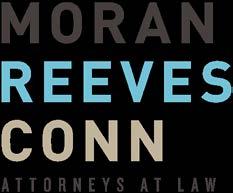
Conn has more than 40 attorneys and staff in its Richmond office and offers a wide array of practice areas. The firm’s primary contacts with USLAW are C. Dewayne Lonas, Martin A. Conn and Shyrell A. Reed.
In 2016, Jones, Skelton & Hochuli, P.L.C. (JSH) partner Kristin Basha and her husband, Ike, had a baby boy born with transposition of the great arteries (TGA) and a large hole between the ventricles. They had an extended stay in the NICU, and their son had open heart surgery on day 11 of his life. Little Jaxon remained in the Cardiovascular Intensive Care Unit for an additional 9 days of recovery, all during the Christmas holidays. During their stay, a patient-parent “alumni” walked through the halls handing out gifts to patients and their families, to bring a bit of Christmas spirit. This touched Kristin’s heart so much that she and Ike decided to start paying it forward by doing the same thing in the future, and have now been holding a toy/book/ clothing drive each year for Phoenix Children’s Hospital (PCH).
JSH’s Charity Committee decided to help out this year, providing $4,500 in Visa gift cards to the families in the Cardiovascular Intensive Care Unit at Christmas, in partnership with Bell Bank. This is one community outreach project that will remain in our hearts long past the holidays!

USLAW
The team at Hanson Bridgett LLP in San Francisco has a long history of giving back to their community. Here are a few samples of their recent generosity.
Hanson Bridgett LLP made a donation to the Parent Institute for Quality Education (PIQE), a non-partisan statewide charity that focuses on helping immigrant parents and families understand and navigate the U.S. school system to ensure their children can access the full benefits of their education. They work with 400 schools in 130 school districts statewide, serving families in 36 counties through 8 regional offices. They have several educational programs, including hands-on workshops, seminars, and an 8-week curriculum for parents that is offered in 16 languages.
Hanson Bridgett LLP ’s Walnut Creek, California, office filled a box with toys in support of the Marine Toys for Tots Program (celebrating 75 years) with the mission of collecting and distributing toys to less fortunate children in the community during the holiday season.
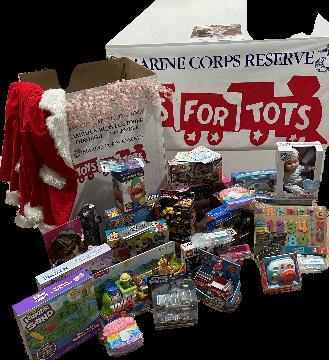
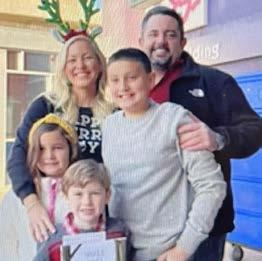
The firm sponsored Project Homeless Connect’s 77th Community Day of Service on December 14. This day of service provided people who are experiencing homelessness or need extra

support with services from more than 50 different providers.
Hanson Bridgett LLP also participated in the Bar Association of San Francisco’s (BASF) Annual Head Start Gift Drive. The firm donated gift cards again at BASF’s request.
On December 7, Hanson Bridgett’s Women’s Impact Network held their amazing annual Holiday Marketplace in the San Francisco office to support local women-owned business and local non-profit Project Night. Kristina Lawson Samantha Wolff and Ambra Jackson welcomed attendees who got to browse a broad mix of holiday treats and treasures from local women-owned businesses.
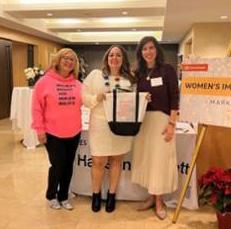
36 WINTER 2023 USLAW MAGAZINE US LAW
of
C.Dewayne Lonas Martin A. Conn Shyrell A. Reed
E. Holland “Holly” Howanitz, a partner in the Jacksonville, Florida, office of Wicker Smith participates in multiple charity runs throughout the year. An avid runner and outdoors enthusiast, Howanitz runs for fitness and overall well-being. She regularly helps raise money for local school programs and numerous nonprofits. For the Jacksonville Corporate Challenge, she ran alongside her Wicker Smith colleagues, plus her husband and son.
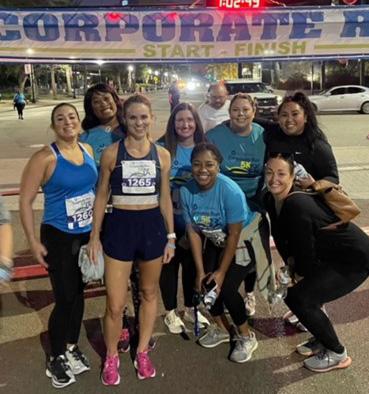
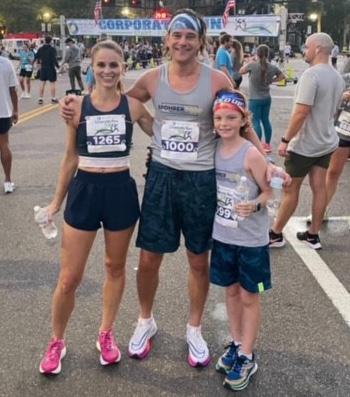
Rivkin Radler’s Project Holiday Happiness
Rivkin Radler LLP in Uniondale, New York, made the holidays merrier for children who were being supported by The Safe Center LI. The organization’s mission is to protect, assist and empower victims of domestic violence and sexual assault. In what was dubbed Project Holiday Happiness, the firm supported the wishes of 75 children and their moms from 34 families by shopping for gifts and providing funds and wrapping and delivering gifts to The Safe Center LI.



16th Annual Special Olympics Breakfast Presented by
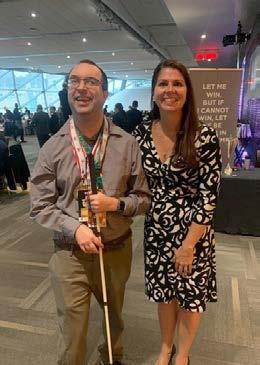

Kelly Santini LLP – Canada

After a three-year hiatus due to COVID, Kelly Santini LLP pictured Kelly Santini’s Lisa Langevin with athletes) was thrilled to present its 16th Annual Special Olympics Award Breakfast in Ottawa, Ontario in October 2022. More than 300 athletes, coaches and volunteers (attended in addition to numerous clients. The event has been raising funds for local programing for athletes and to provide financial assistance for those attending provincial and world games for over 16 years. The breakfast is also an opportunity to recognize and present various awards to the talented, committed and courageous athletes, coaches and volunteers in the Ottawa region. Kelly Santini LLP was honored once again to be able to organize this event for such a worthwhile cause. The excitement of the athletes to finally be gathered again and applauded for their dedication was awe inspiring.
Interesting Special Olympics Facts
• E unice Kennedy Shriver founded the Special Olympics movement with the very first event being held in 1968 on Soldier Field
in Chicago; however, the event was inspired by a Canadian researcher in the early 1960s named Dr. Frank Hayden from the University of Toronto.
• Dr. Hayden was a sports scientist and he began studying the effects of regular exercise on the fitness levels of children with an intellectual disability. Dr. Hayden’s research led the charge in challenging the mindset that the disability itself prevented children from fully participating in play and recreation. Through his research, Dr. Hayden proved that it was simply a lack of opportunity to participate. If provided the opportunity, individuals with an intellectual disability, both children and adults, could acquire the necessary skills to participate in sport and become physically fit.
• There are 5.5 million athletes with intellectual disabilities involved in Special Olympics programs around the world with more than 1.1 million coaches and volunteers. The Special Olympics movement exists in 193 countries, in particular every state in the U.S. and every province and territory in Canada. The need for coaches and volunteers always exists, so “catch the spirit” and get involved.
CJW Hospital “Tee Off for Heart Health” tournament at the Providence Golf Club. The team enjoyed playing for a worthy cause on a picture-perfect fall day.
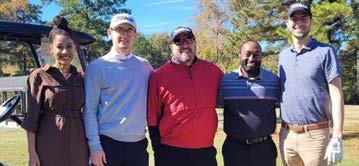
A team from Moran Reeves & Conn PC in Virginia – attorneys (pictured left to right) Shyrell A. Reed, Stewart Pollock, Marty Conn, Conn’s son, Dewayne Lonas, Sophia Brasseux, and in the front row, Steven Forbes paralegals Daniel Zoellner and Kim Davis - helped clean up Evergreen Cemetery, a historic African-American cemetery in the East End of Richmond, Virginia, dating from 1891. Much of the cemetery is completely overgrown with kudzu or is returning to forest. The original organization responsible for the cemetery, the Evergreen Cemetery Association, made no allowances for perpetual care in its charter. In 1970, the association sold its more than 5,000 plots to Metropolitan Memorial Services, which soon went bankrupt. A group of black funeral-home directors later bought the site at auction, and volunteers have been assisting in its restoration.

US LAW 37 of USLAW
Shyrell A. Reed (pictured left), a partner at Moran Reeves & Conn PC in Virginia, lined up an enthusiastic team (Karlo Goronja, Chris Hoctor, Steven Forbes, and Paul Johnson) for the HCA Virginia/
DRIVEN TO DELIVER®
DELSOL Avocats - Annual Endowment Fund Competition

For some 15 years, DELSOL Avocats in France has been supporting associations through patronage actions. Each year, following DELSOL Avocats’ Annual Endowment Fund Competition, the firm allocates donations to innovative philanthropic projects.

On 20 October 2022, at the Forum National des Associations & Fondations organized in Paris, the three finalists presented their projects to a panel of judges composed of DELSOL Avocats partners Gaëlle Merlier and Lionel Devic (pictured l-to-r), and Sophie Rouxel, event manager of the Forum - Les Echos Le Parisien.

• The 1st prize (€20,000) was awarded to the Fratries Endowment Fund, whose project aims to create inclusive habitats in the form of shared housing for young people with mental disabilities (or with autistic disorders) and young workers.
• The 2nd prize (€12,000) went to the association Le domaine de l’aube, which is overseeing the creation of a medical center - the first contemporary building of its kind in the Rhône-Alpes Auvergne region - for palliative care patients and their families.
• Finally, the 3rd prize (€7,000) was awarded to the association Grâce au jardin, which has set up a market gardening and integration farm.
DELSOL Avocats’ support of these associations enables them to carry out meaningful projects for the good of mankind.

Umberger elected Williams Kastner managing director

Rodney (Rod) L. Umberger has been elected managing director of Williams Kastner. Umberger is a trial lawyer practicing in the firm’s Seattle office and handles a wide variety of high-stakes litigation matters across the Pacific Northwest. He also is the immediate past chair and serves on the board of directors/executive committee for USLAW NETWORK. Umberger will continue his active litigation practice while assuming these new responsibilities at the firm.
Northwest law firm.

Tom Ped , a member of Williams Kastner’s Portland (OR) office, personifies the importance of giving back locally. Ped chairs the Revitalize Portland Coalition (RPC) Homelessness Committee and depicts the committee’s efforts to help fight homelessness in Portland. RPC is a real estate collective creating a better city in which to live and work. Ped’s practice focuses on construction and real estate matters.
Williams Kastner, Tom Ped are making a difference in Portland

Williams Kastner strongly believes in the importance of giving back to the communities that have contributed so deeply to the firm’s success. The firm’s s commitment to its local communities enriches the lives of attorneys and staff, adds depth to their perspective, and gives credence to its roots as a Pacific

Ped joined RPC because he loves his city and his passion for making Portland a cleaner and safer place for every community member: “If we all work together and approach homelessness from every angle possible, we can help the people who are most in need and make Portland a great place again. Solving homelessness can be a win-win for everyone.”
Spengler’s marathon stretch
Fall 2022 was a marathon for Wicker Smith Orlando shareholder Kurt Spengler – literally! In a span of eight weeks, from September 19 to November 12, Spengler tried four cases and got four defense verdicts. Plaintiffs’ counsel asked for $250,000, $1 million, $1.3 million and $4 million, respectively, and juries awarded zero each time. Along the way, Spengler also found time to train for the California International Marathon. Kurt and his son, Jake, ran the race on December 4. Kurt finished with a time of 3 hours, 38 mins (8:17/ mi), fast enough to qualify him for the Boston Marathon in 2024.
Yves Joli-Cœur, Lawyer Emeritus (Ad. E.) at Therrien Couture JoliCœur in Quebec, Canada, is the author of the French dictionary “Dictionnaire Québécois de la Copropriété” (Quebec Dictionary of Co-Ownership). This one-of-a-kind work is the only dictionary on the subject of co-ownership in Québec. This dictionary gives jurists a fair and current understanding of the legislative framework of co-ownership in Quebec. It contains, amongst other things, specific terms in relation to co-ownership, the current nomenclature and legal concepts that will accompany the reader’s practice. It is available at Condolegal’s online store.
38 US LAW of USLAW
In fall 2022, Franklin & Prokopik, P.C. Principals Stephen Marshall and Heather Rice attended the 2022 Jazz Brunch Fundraiser hosted by FreeState Justice, an organization that provides legal services to low-income LGBTQ+ Maryland residents.
Poyner Spruill helps the Make a Wish Foundation grant 23 wishes in May 2022
For several years, Poyner Spruill partner Missy Jaskolka has been involved with the Make-A-Wish Foundation of Central and Western North Carolina. She participates in their annual Trailblaze Challenge, walking 28.3 miles in one day to raise money and help make a difference in the life of a child living with a life-threatening illness. In 2022, Grace Sykes Pennerat joined Missy’s fundraising efforts and, together with other Trailblaze Challenge participants, they helped Make-a-Wish grant 23 wishes in the month of May. Over the course of the partnership, Poyner Spruill has raised more than $17,000 for the Make-A-Wish Foundation.

Poyner Spruill employees support local Ronald McDonald House

Poyner Spruill employees from the Charlotte (NC) office cooked meals for those staying in the local Ronald McDonald House. The firm has supported Ronald McDonald Charities of Greater Charlotte, Inc., for over 10 years. The firm’s involvement began with Tate Ogburn, who is a member of the Board of Directors. He and his family stayed in the Ronald McDonald House in Cleveland, Ohio, many times while visiting his daughter’s doctor, and since then, they have shared their story with the media and local community groups. Ogburn and his family have contributed to the growth of the Charlotte house, and Poyner Spruill has supported the house in many ways, including through the Sport-a-Shirt program and by sponsoring Ronald McDonald Charities’ events. (L to R: administrative assistant Penelope Stroupe, associate Sarah Fritsch, paralegal Jara Wilhelm, partner Tate Ogburn, and partner Kelsey Mayo)
Poyner Spruill honors late colleague, Cheslie Kryst, by supporting a charity and creating a scholarship
Former attorney, passionate advocate, and beloved colleague Cheslie Kryst passed away in 2022. Poyner Spruill has kept her legacy alive by continuing to support one of her favorite organizations, Dress for Success Charlotte, North Carolina. In 2022, Poyner Spruill partner J.M. Durnovich celebrated Cheslie’s memory by participating in Dress for Success Charlotte’s “Stiletto Swagger.” He donned a pair of high heels and competed against other stiletto-clad men to raise money for Dress for Success Charlotte’s continuum of services, including job preparation, job acquisition, employment retention, financial education, and career advancement services.


Another way Poyner Spruill honors Cheslie’s legacy is through the Cheslie C. Kryst Advocacy and Social Justice Law Scholarship at the Wake Forest University School of Law. Cheslie, who earned her J.D. from Wake Forest University School of Law, was the firm’s first Diversity Advisor. This scholarship will be awarded annually to students from underrepresented backgrounds who demonstrate a passion for the pursuit of social justice and civil rights causes after graduation.
MERCH WITH A MISSION
Now when you purchase your favorite USLAW-logoed apparel, accessory, drinkware or gift item, 10% of your total purchase supports scholarships for diverse law students. You get exclusive USLAW merchandise while also supporting an important cause.
The USLAW NETWORK Foundation is a 501(c)(3) charitable organization organized exclusively for charitable and educational purposes, including funding scholarships to provide financial assistance to diverse law students pursuing a legal education at an American Bar Association-accredited U.S. law school.
Make the purchase that makes a difference.
US LAW 39 of USLAW
® WEAR IT WITH PRIDE! Proceeds benefit the USLAW NETWORK Foundation NETWORK FOUNDATION
Shop now at www.storeuslaw.org
American Legal Records offers many services to assist and simplify the discovery process. ALR is an industry leader in record procurement and duplication services with a personalized customer service staff for all your needs. Our management represents over 200 years of knowledge in our field assisting the legal and insurance communities.
Below are a few types of Records American Legal retrieves
Medical Insurance
Government (including SSA)
Employment
Scholastic
Military
Pharmacy
Our staff is fully HIPAA Compliant
We offer a full range of services for the record retrieval process including
Notices to all parties
Customized Billing including direct to Carrier/TPA or Client
Dedicated account reps
Expedited Service
Multi-Party Management
Online Secure Account access with live status updates of requests
Payment of Fee Advances/ Custodial Fees
Many other services customized to your needs
NATIONWIDE LEADERS IN DOCUMENT RETRIEVAL CLIENT SERVICES SECOND TO NONE P# (888)519-8565 F# (877)861-9459 info@americanlegalrecords.com www.americanlegalrecords.com
firms on the move
In his own words...
Charles L. Norton, Jr. General Counsel and Corporate Secretary

The Coca-Cola Bottlers’ Association | Atlanta, GA
“I hosted the Coca-Cola Bottlers Risk Management Forum in Q4 2022 in San Antonio, Texas, for 20 different independent bottling operations totaling nearly 40 different Bottler representatives. As part of the program, I called on two USLAW member attorneys to address our attendees. Chris Cotter of Roetzel & Andress in Cleveland, Ohio, and Trey Sandoval of MehaffyWeber in Houston, Texas, led an essential legal program focused on transportation and regulatory developments. They informed, educated and updated the group on DOT and fleet regulations, verdict trends and related matters. Chris and Trey hit it out of the ballpark for me. Their presentation and engagement with the attendees, both during their presentation and outside it, was top notch and very well received by all. The participation of USLAW member attorneys in this event again demonstrated to me the powerful knowledge and experience readily available to us as clients within USLAW, and I won’t hesitate to incorporate USLAW members into our future programming.”
Leslie Parker of Adler Pollock & Sheehan P.C. in Rhode Island was appointed to serve on the Governor’s Insurance Council, which serves to advise Rhode Island’s governor on important developments and trends within the insurance industry and to provide information and recommendations regarding legislation that affects the insurance industry.

Daniel Procaccini of Adler Pollock & Sheehan P.C. in Rhode Island has been appointed by Chief Judge John J. McConnell, Jr. to the U.S. District Court Advisory Council for the District of Rhode Island. The council’s mission is to identify, study and propose actions to assist the court in securing the just, speedy and inexpensive determination of every action and proceeding; provide input from the bar; advise on the administration of the bar fund; and to otherwise assist in court businesses, such as developing new projects.
The law firms of SmithAmundsen LLC, USLAW’s Illinois member firm, and Davis|Kuelthau s.c. formally combined on November 1, 2022, to form Amundsen Davis, LLC

Yuan Zhou, an associate in Amundsen Davis’s Chicago office, was
named to Lawyers of Color’s 2022 Annual Hot List, which recognizes early- to mid-career attorneys excelling in the legal profession.
The American Bankers Association has selected Baird Holm LLP attorney Steven C. Turner as the recipient of its 2022 Blanchfield Award. The award, given in recognition of John Blanchfield, former American Bankers Association senior vice president of its Center for Agricultural and Rural Banking, recognizes the work of a non-banker who significantly contributed to agricultural lending.
Dysart Taylor Cotter McMonigle & Brumitt, P.C., USLAW’s member firm in Kansas City, Missouri, is ringing in the new year with a new name. Effective immediately, the firm is known as Dysart Taylor McMonigle Brumitt & Wilcox, P.C. Director John F. Wilcox, Jr. joined the firm in 2000 and has been heavily involved in firm leadership since 2004, when he became a director. He led the firm as managing director from 2012 through 2014, and he has recently been elected as Dysart Taylor’s president.
US LAW WINTER 2023 USLAW MAGAZINE 41
firms on the move

Franklin & Prokopik, P.C. principal Renee Bowen has been named to the ATRI (American Transportation Research Institute) Research Advisory Committee, effective January 1, 2023. The committee determines the predominant research priorities for the trucking industry.
On Monday, December 12, 2022, Franklin & Prokopik, P.C. principal Ralph Arnsdorf and counsel, Heather Rice, participated in the last day of oral argument at the Maryland Court of Special Appeals. In November, voters in Maryland voted to adopt a constitutional amendment changing the name of the Court from the Maryland Court of Special Appeals to the Appellate Court of Maryland. The Maryland Court of Appeals will now be known as the Maryland Supreme Court. Click here to read the original article regarding the court’s name change.
Andrzej Ladziski, managing partner of GWW Tax in Poland, has been elected chairman of the National Council of Tax Advisors in Poland.
The Lean Construction Institute (LCI) has recognized Hanson Bridgett LLP partners Howard Ashcraft and Lisa Dal Gallo with the Pioneer Award, which recognizes individuals who have moved the LCI forward in embracing and implementing Lean tools and techniques. Ashcraft and Dal Gallo have helped transform the design and construction industry by informing/coaching/guiding owners, designers and builders in the specifics around adopting Integrated Project Delivery (IPD), and through the development of contracts and negotiation of legal terms and conditions that support LPDS and IPD.
Hanson Bridgett LLP partner Payam A. Saljoughian has been appointed by the Iranian American Bar Association’s Northern California Chapter (IABA NorCal) to serve as the chapter’s president in 2023. Saljoughian has been involved with IABA for many years and was previously IABA NorCal’s co-vice president. Formed in 2000, the Iranian American Bar Association (IABA) is the only national association of Iranian American judges, attorneys, legal scholars and law students in the United States with over 1,500 members in eight chapters nationwide.
Lisa Zaccardelli, a partner at Hinckley Allen in Connecticut, joined the Board of Directors for Students Against Destructive Decisions (SADD), the nation’s premier youth health and safety organization. SADD focuses on empowering and mobilizing students and adult allies to engage in positive change through leadership and smart decision-making.
Jones, Skelton & Hochuli, P.L.C. associate attorney Annelise Dominguez was named chair of the Los Abogados Civil Rights Committee. Dominguez was previously the membership chair for the organization. Los Abogados is Arizona’s Hispanic Bar Association, promoting diversity, education and advocacy in Arizona’s Hispanic legal community.
Stuart Butzier of Modrall Sperling in New Mexico has accepted a two-year appointment to serve as co-chair of the International Bar Association’s (IBA) Mining Law Committee, along with Chilean mining lawyer Pablo Mir. The Mining Law Committee is part of IBA’s Energy, Environment, Natural Resources and Infrastructure Law Section (SEERIL).
Martin Conn, president of Moran Reeves & Conn PC in Virginia, was elected to another term on the Product Liability Advisory Council (PLAC) Board of Directors.
Kathleen McCauley and Taylor Brewer of Moran Reeves & Conn PC in Virginia were named to the 2022 Virginia Business magazine Legal Elite, which was launched in cooperation with the Virginia Bar Association in 2000.

Rivkin Radler partner Joseph La Ferlita and associate Nicholas Moneta, from the firm’s Personal, Family & Business Planning practice, have been selected by the New York State Bar Association’s Trust & Estate Section as the Estate Planning Committee co-chairs. The NYSBA’s Estate Planning Committee works on all matters pertaining to practice issues, new laws and best practices as well as any planning-related topics relevant to estate planning. Their term started in January 2023.
At the Defense Research Institute 2022 Annual Meeting in Philadelphia, Sweeney & Sheehan Partner Patrick J. Sweeney was named president–elect of the organization. With more than 16,000 members, DRI is the largest international membership organization of attorneys defending the interests of businesses and individuals in civil litigation.

42 WINTER 2023 USLAW MAGAZINE US LAW
(Continued)
successful RECENT USLAW LAW FIRM VERDICTS & transactions verdicts
Adler
Pollock & Sheehan
(Providence, RI)
AP&S Successfully Defends Certificate of Need Approval for Encompass Health
After successfully representing Encompass Health in its Certificate of Need Application to establish a 50-bed Rehabilitation Hospital Center in Johnston, Rhode Island, before the Rhode Island Department of Health, Adler Pollock & Sheehan (AP&S) defended the objectors’ appeals of that CON approval ending all legal challenges. On August 26, 2020, the Director of the Rhode Island Department of Health, Nicole Alexander-Scott, M.D., MPH, issued her decision approving the Application; however, following the objectors’ administrative appeal, a Rhode Island Department of Administration hearing officer reversed the Director’s decision on August 5, 2021. AP&S appealed that reversal on behalf of Encompass to the Superior Court, which resulted in Superior Court Associate Justice Brian Stern vacating the hearing officer’s decision and affirming the Director’s decision approving the Application. Finally, over two years after the initial decision, the Rhode Island Supreme Court denied the objectors’ petition for writ of certiorari on December 9, 2022.
Encompass’ proposal will establish a specialty hospital facility to provide physician-driven, intensive inpatient rehabilitative care, requiring more than one therapy modality, for medically complex patients. The $42.5 million project will provide approximately 100 union construction jobs in the short term and result in over 160 full-time employees.
The AP&S team of attorneys Pat Rocha, Richard Beretta, Jr., and Leslie Parker worked with Encompass to prepare the extensive certificate of need application, present testimony at four Health Services Council meetings, including responding to numerous public comments and the Rhode Island Department of Health’s expert consultant, navigate the governing statutory and regulatory issues, and defend the Director’s decision on appeal. As a result of these efforts, Encompass will now be able to provide access to its proven quality inpatient rehabilitation services to Rhode Island patients and their families – including those suffering strokes, traumatic brain injuries and neurological disorders. Construction started on January 3, 2023, and the first patient is expected to be admitted in June 2024
Baird Holm LLP (Omaha, NE)
Nebraska Supreme Court affirmed summary judgment in favor of Baird Holm client
On January 13, 2023, the Nebraska Supreme Court confirmed dismissal of an alleged personal injury claim against Baird Holm’s client, Concordia University. This is an important win for businesses and educational institutions because it solidified that these entities may take reasonable steps to protect themselves against personal injury claims. David Kennison was lead counsel for Concordia University and argued the case before the Nebraska Supreme Court.
Copeland, Cook, Taylor & Bush, P.A. (Ridgeland, MS)

Jim Moore, Landon Kidd defend transportation client in Federal Court
This case arose from a fatal crash near Jackson, Mississippi. Carolyn Crechale, age 81, was driving a Cadillac sedan when she changed lanes on the interstate and collided with another vehicle. This initial accident was a “fender bender.” Crechale remained stopped in the interstate while the other vehicle moved to the shoulder. She remained stopped for approximately 10-15 minutes and spent 8 and a half minutes on her phone. David Brooks was operating a tractor-trailer for Carroll Fulmer Logistics Corporation and approached Crechale from the rear. Brooks could not tell that Crechale’s vehicle was stopped until it was too late. Crechale died due to the accident.
The plaintiffs were Crechale’s three adult sons. They alleged negligence against Brooks and vicarious liability against Carroll Fulmer. The plaintiffs’ accident-reconstruction experts testified that Brooks was 100% at fault and that he failed to maintain proper speed, lookout, distance, and control. Brooks and Carroll Fulmer asserted that Brooks did not have enough time to perceive Crechale’s vehicle and avoid the collision and implicated Crechale for leaving her vehicle stopped in the highway. The accident was captured on the dashcam in Brooks’s truck and proved to be valuable to the defense. In addition, the plaintiffs produced no evidence that Crechale’s vehicle was disabled after the initial “fender bender.”
The jury assessed 60% of the fault to Crechale and 40% to Brooks. The jury awarded $13,748 for Crechale’s funeral expenses and $19,208 for Crechale’s final medical bills. Each of her
US LAW WINTER 2023 USLAW MAGAZINE 43
successful RECENT USLAW LAW FIRM VERDICTS & transactions
sons was awarded $200,000 for loss of love, society, and companionship. The raw verdict totaled $632,956. The court reduced the award by 60% based on comparative fault.
USLAW Attorneys for defendants were James R. Moore, Jr., and C. Landon Kidd of Copeland, Cook, Taylor & Bush, P.A. in Ridgeland, Mississippi. The date of verdict was May 20, 2022.
Flaherty Sensabaugh Bonasso (Charleston, WV)
West Virginia Supreme Court of Appeals upholds ruling in decade-long case against the City of Charleston
After more than 10-plus years of litigation, including three appeals to the West Virginia Supreme Court of Appeals, Flaherty Sensabaugh Bonasso attorneys Timothy L. Mayo and Jason Proctor were successful on behalf of the City of Charleston, West Virginia, in securing the termination of a law enforcement officer who had exhibited a pattern and practice of misconduct in the discharge of his official duties. The years of misconduct led to a need to remove the officer from the ranks as he had failed to satisfy obligations imposed on him by a last-chance agreement. Despite the extant history of this litigation, the West Virginia Supreme Court of Appeals ultimately found that Constitutional due process had been afforded the officer and that the decision to terminate was upheld.
Jones, Skelton & Hochuli, P.L.C (Phoenix, AZ)

Michael Ludwig and Jack Klecan obtained defense verdict in premises liability case
On September 29, 2022, Jones Skelton & Hochuli partners Michael Ludwig and Jack Klecan obtained a defense verdict in a premises liability case following a four-day trial in Maricopa County Superior Court. The plaintiff sustained permanent injuries to her face and back following a fall at a business center which defendants landscaped. Plaintiff asked for $1.2 million in damages during closing. The defense maintained it did not breach the standard of care. After deliberating for two hours, the jury unanimously found in favor of defendants.
Moran Reeves & Conn PC (Richmond, VA)
Moran Reeves & Conn’s healthcare team attorneys

Shyrell A. Reed and Sophia Brasseux recently obtained a dismissal with prejudice in a wrongful death case for a hospital in Virginia several months
before the trial date. The matter involved the alleged failure by the hospital to appropriately staff its emergency department and to provide appropriate care and treatment of a two-year-old who presented with flu-like symptoms. Plaintiffs alleged that the hospital was negligent in discharging the child without a complete and proper assessment.
Rivkin Radler LLP (Uniondale, NY)

Sirignano, Henesy, and Scollan
Obtain
Summary Judgment Victory for GEICO in Civil RICO Action
Michael Sirignano, Steve Henesy and Garin Scollan of Rivkin Radler LLP in Uniondale, New York, secured an important summary judgment victory in a Civil RICO action in U.S. District Court for the Eastern District of New York. The case involved allegations of a wide-ranging fraudulent scheme to pay kickbacks in exchange for patient referrals.
Traub Lieberman (Hawthorne, NY)
Traub Lieberman partner Lisa Rolle obtains motion to dismiss in favor of Dave & Buster’s
In a case brought before New York State Supreme Court, County of Queens, Traub Lieberman partner Lisa Rolle obtained a motion to dismiss in favor of defendants Dave & Buster’s of New York, Inc., Dave & Buster’s Inc., and Dave & Buster’s Management Corporation, Inc. (collectively “Defendants”). In the case, the plaintiff alleged food poisoning from food consumed at an event on Defendants’ premises on September 8, 2019. In their motion to dismiss, the Defendants presented testimony of both parties and the report of an independent medical examiner. In opposing the motion, Plaintiff showed an incident detail report to the Defendants dated September 13, 2019, and a medical report for Plaintiff’s presentation to the hospital on September 16, 2019.
The Court found that the Defendants met their burden to show that there is no issue of fact regarding Plaintiff failure to show a causal connection to his illness on September 16, 2019, and the food consumed at the Defendant’s premises eight days prior. The Plaintiff failed to submit further evidence refuting the report of the medical examiner, and the case was dismissed.
44 WINTER 2023 USLAW MAGAZINE US LAW
(Continued)
successful RECENT USLAW LAW FIRM VERDICTS & transactions


Wicker Smith (Central Florida)
Wicker Smith Orlando partners Richards Ford and Patrick Mixson obtained a defense verdict following a seven-day wrongful death medical malpractice case in Osceola County, Florida. The plaintiff, the estate of the deceased, claimed on behalf of his surviving spouse that the 57-year-old decedent died from a pulmonary embolism two days after an arthroscopic meniscectomy surgery performed by the firm’s client, an orthopedic surgeon, in December 2014. The plaintiff claimed that the firm’s client improperly failed to recognize that the patient was at high risk for deep vein thrombosis and pulmonary embolism after the procedure and negligently failed to prescribe anticoagulation medication, which allegedly would have prevented his death. The plaintiff relied upon the opinion of an orthopedic surgery expert for both standard of care and causation claims. The defendants presented the testimony of an orthopedic surgery expert and hematology expert, both of whom rejected the notion that the patient was at high risk for DVT. The defense’s orthopedic surgery expert testified that it was not the standard of care to provide prophylactic anticoagulation medication. The defendants’ hematology expert testified that the medication, if given, would not have prevented death.
Wicker Smith (South Florida)
Wicker Smith Miami partner Jaime Baca and associate Danielle Carlsen were awarded a complete defense verdict in September while representing a major retailer in a slip and fall case. The plaintiff alleged to have incurred five different herniated disks from a forward fall onto her knee and arm, ultimately undergoing a 2-level lumbar fusion, several injections, and a right shoulder arthroscopy. Plaintiff had $280,000 in past medical bills and asked the jury for a total of $1.175 million. Both liability and causation were contested resulting in the jury finding no negligence on behalf of the defendant and awarding the firm’s client a complete defense verdict.
Williams Kastner
(Seattle, WA)
Williams Kastner trial attorneys Rodney Umberger and Eddy Silverman obtain defense verdict in $50 million premises liability trial
Williams Kastner attorneys Rodney L. Umberger and Eddy Silverman, with the help of Seattle paralegal Tristan Pirak, recently obtained a defense verdict in a $50 million premises liability/product liability case following a three-week in-person trial in King County, Washington, with Superior Court Judge Chad Allred presiding. The case, Strout v. Walmart, arose out of allegations that Walmart and others were at fault for paraplegia injuries the plaintiff sustained as a result of a fall out of a second-story window. The plaintiff, in her mid-forties and the mother of a teenage daughter (the daughter had a loss of consortium claim), originally sued multiple other defendants, some of whom paid seven-figure settlements to resolve the case in advance of trial, leaving Walmart as the lone defendant—and the only one willing to defend the case at trial. Specifically as to Walmart, plaintiff claimed that the store was negligent for taking back an in-window air conditioner as a return and restocking that item without the instructions and without all necessary installation hardware, and as a result, the unit came dislodged from the window in plaintiff’s condominium when the plaintiff was standing next to it. Both plaintiff and the unit fell to the ground.
Williams Kastner argued on behalf of Walmart that there was no evidence that the product in question was missing any items, and that even if certain items had been missing that there was no evidence that Walmart was at fault for this—or that the allegedly missing items were a proximate cause of what happened to the plaintiff. Even before the trial began, the case was hotly contested at the motions in limine stage, where the parties argued more than 50 motions in limine, and each side called at least half-adozen expert witnesses. The jury found that Walmart was not negligent after deliberating for less than an hour. The result was a resounding success for Williams Kastner’s trial team and their client in a case that had been in active litigation for more than six years at the time of trial.
US LAW WINTER 2023 USLAW MAGAZINE 45
(Continued)
successful RECENT USLAW LAW FIRM VERDICTS & transactions
transactions
Flaherty Sensabaugh Bonasso (Charleston, WV)
Regional retail company successfully reorganized in Chapter 11 bankruptcy
Flaherty Sensabaugh Bonasso attorneys Jim Lane and Eric Johnson served as debtor’s counsel to a regional retail business in a chapter 11 bankruptcy. The debtor had been mired in class action litigation for 10 years. Total claims against the company exceeded $170 million. Though the bankruptcy was vigorously contested, the bankruptcy court confirmed the debtor’s plan of reorganization six months after the case was filed. The debtor prevailed in all appeals. The reorganized debtor has fully performed under its plan and continues its business operations at 130 locations in West Virginia, Virginia, Kentucky and Ohio.
GWW (Poland)
GWW team, a TELFA member firm, handled the sale of the shares of ADOB, Poland’s largest producer of foliar fertilizers and exporter to more than 80 countries worldwide, to Nouryon Chemicals International BV, a world leader in specialty chemicals. GWW also participated in the acquisition of Alumetal, the second largest producer of aluminum casting alloys in Europe, with a production capacity of 275,000 tons per year from three plants in Poland and one in Hungary. The company was bought by Hydro Aluminium Metal for around PLN 1 billion to create a better offering of low carbon recycled aluminum. Finally, GWW provided full legal services for the conclusion of contracts between the Polish Volleyball Federation and International Volleyball Federation (FIVB). The agreements covered all issues related to the organization of events in sporting, technical and administrative terms, and the regulation of advertising, marketing, and broadcasting rights.
Hinckley Allen (Hartford, CT)
Hinckley Allen represents client in acquisition of largest commercial vehicle equipment provider in Northeast
Hinckley Allen represented Silver Buckle Capital in its acquisition of Ray-Jurgen, a Connecticut-based provider of commercial vehicle installation services, repair and maintenance services, vehicle lift inspection, and vehicle maintenance facility design. Established in 1976, Ray-Jurgen is one of the largest commercial vehicle equipment providers in the Northeast. Hinckley Allen provided advice and counsel to Silver Buckle Capital on matters related to the transaction, including working with Silver Buckle Capital’s commercial lenders and investors on transaction funding and capital structure.
Following the successful acquisition of Ray-Jurgen, Hinckley Allen assisted Silver Buckle Capital in the acquisition of Rondout Lift, which provides commercial vehicle lift maintenance to customers in Connecticut, New York, and New Jersey. This transaction represented a strategic acquisition for Ray-Jurgen, expanding its suite of customer services and expanding Ray-Jurgen’s geographic footprint in the Northeast.
Moran Reeves & Conn PC (Richmond, VA)
In December 2022, Moran Reeves & Conn PC’s transactional practice group assisted its client, Capital Square, with the acquisition, financing and private syndication of the Las Vegas Raider’s corporate headquarters and training facility in Henderson, Nevada.

46 WINTER 2023 USLAW MAGAZINE US LAW
(Continued)

Diversity, Equity and Inclusion
USLAW MEMBER FIRMS ACHIEVE MANSFIELD CERTIFICATION
When Diversity Lab first launched the Mansfield Rule pilot certification with 40+ large firms in 2017, the primary requirement was to consider at least 30 percent women lawyers and underrepresented racial and ethnic lawyers for leadership roles. Versions 2.0 through 6.0 were steadily broadened each year to include LGBTQ+ lawyers and lawyers with disabilities as well as critical pipeline activities (e.g., pitch teams, senior-level lateral hiring), transparent leadership role descriptions, and more.
Several USLAW member firms are participating in this initiative and have achieved 4.0 or 5.0 certification or are in the process of becoming certified in this ongoing initiative.
Large Firm 5.0 Designation (2021-2022)
• Connell Foley LLP
• Hanson Bridgett LLP
• Lewis Roca
• Roetzel & Andress LPA
Midsize Firm Cohort (9/21-3/23)
• Baird Holm LLP
• Hinckley Allen
Midsize Firm Cohort (3/22-9/23)
• Klinedinst PC
Hanson Bridgett LLP has achieved Diversity Lab’s Mansfield 5.0 Plus certification and has already committed to the Mansfield 6.0 certification process. In September 2021, the firm announced that it had achieved Mansfield 4.0 Certification Plus status.
“Years before signing on to the Mansfield Rule, Hanson Bridgett adopted a policy for leadership positions which was spearheaded by our two of our internal committees: the Diversity & Inclusion Network and the Women’s Impact Network. The stated target of that leadership position policy was to meet or exceed the standards for becoming Mansfield Certified,” said Chief Diversity, Equity and Inclusion Officer Jennifer Martinez. “We are proud to have achieved the most recent iteration of the certification and are vigorously working on the next. We consider Mansfield Certification not as a ceiling, but as the new floor for diversity in leadership.”
As part of its ongoing effort to further diversity and inclusion within the firm, Lewis Roca achieved Mansfield 5.0 Certification and committed to the Mansfield 6.0 certification process. This recognition confirms the firm’s commitment to ensuring a diverse group of colleagues are considered for leadership positions within the firm.
“Our participation in Mansfield 5.0 over the past year has resulted in thoughtful and intentional conversations throughout the firm, particularly among the firm’s leadership,” said Ken Van Winkle, managing partner of Lewis Roca.
Roetzel & Andress has received Mansfield 5.0 certification and is committed to maintaining its certification under the upcoming Mansfield 6.0 program, which includes an expanded set of criteria for 2022-2023, and fostering diversity within the firm and industry as a whole.
“We are tremendously proud of our recent Mansfield certification and the commitment to diversifying leadership at the firm that is represented by the achievement,” said Roetzel Chairman Robert E. Blackham. “We commend our industry peers and those who have committed to the multiyear, multi-disciplinary process needed to obtain, and maintain, this important certification, and look forward to strengthening the momentum behind the movement, together.”
Neil V. Mody, co-chair of Connell Foley’s Diversity Committee and Chair of the Hiring Committee, shared: “We are extremely proud of this recognition. Our participation in the Mansfield process has helped us enhance our internal processes through vital conversations about diversity, equity and inclusion, and how best to support our diverse lawyers.”
As Hinckley Allen works toward this certification, it is dedicated to tracking the progress made, expanding the definition of what makes a good leader, crafting a transparent hiring process, and working together as a community to achieve this goal
“Hinckley Allen has made significant progress toward diversifying our workforce and the Mansfield Rule certification helps us hold ourselves accountable,” said Hinckley Allen Managing Partner Patrick A. Rogers. “We are committed to this work and we want to make sure that women, persons of color, the LGBTQ+ community, and other historically underrepresented groups are getting a seat at the table.”
To learn more about the Mansfield Rule, click here.
48 WINTER 2023 USLAW MAGAZINE US LAW
A TRADITION OF LEGAL EXCELLENCE SINCE 1938
Diversity, Equity and Inclusion
HINCKLEY ALLEN ANNOUNCES SOCIAL JUSTICE FUND GRANTEES

Hinckley Allen in Connecticut announces its first Social Justice Partnership Program partners: the Connecticut Violence Intervention Program, and the Center for Law, Equity, and Race at Northeastern University Law School. The firm established its Social Justice Partnership Program as a way to offer meaningful support to non-profit organizations in their communities that have a mission and record of furthering social justice and racial equity. Hinckley Allen Social Justice Partnership Program partners receive a significant grant from the firm’s recently established Social Justice Fund and ongoing help and support from members of the firm to support the organization in furthering its mission.
Dysart Taylor has signed on to McDonald’s Mutual Commitment to Diversity, Equity and Inclusion, an initiative dedicated to supporting and empowering diverse-owned businesses, creating new pipelines of diverse talent, driving greater innovation and competition, and building economic growth in diverse communities.
Hanson Bridgett ranked high for number of women equity partners Hanson Bridgett LLP in San Francisco has been ranked 5th for women in equity partnership and 14th overall in the annual Law360 Pulse Glass Ceiling Report in the 101-250 attorneys category.

“Equity partnership representation is huge. Since our firm’s founding, we have been fortunate to have several ‘big deal’ women partners in our ranks who have driven leadership and established the culture of the firm,” said Jennifer Martinez, Hanson Bridgett’s chief diversity, equity, and inclusion officer. “It’s very encouraging that the legal industry continues to focus on increasing diversity not just in younger associate ranks, but in leadership positions.”

The Glass Ceiling inclusion rounds out Hanson Bridgett’s recent rankings in Law360’s Annual Diversity Snapshot. The firm ranked #9 in the 101-250 attorneys category for minority attorneys at different levels and #10 for minorities in equity partnership
USLAW EXPANDS DIVERSITY COUNCIL

As part of USLAW NETWORK’s ongoing commitment to diversity, equity and inclusion, USLAW expands the membership of the USLAW NETWORK Diversity Council to include more than a dozen USLAW member attorneys and legal decision-makers from across an array of industries.
For more information on the upcoiming Job Fair, contact cheryl@uslaw.org.

US LAW WINTER 2023 USLAW MAGAZINE 49
pro bono spotlight




Quattlebaum, Grooms & Tull PLLC attorneys participate In Entergy’s Day of Pro Bono Service
Quattlebaum, Grooms & Tull PLLC attorneys Andrew Dixon, Philip Elmore, Glenn Larkin and Jon Mader (pictured l-to-r) volunteered their time to answer questions from low-income community members. The Day of Pro Bono service, organized by Entergy in recognition of National Pro Bono Week, brings together legal professionals throughout Arkansas, Louisiana, Mississippi, and Texas to help clear the queue of questions in each state’s freelegalanswers.org website.
Modrall Sperling attorneys participate in pro bono legal clinic







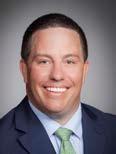

Mexico Immigrant Law Center’s SIJC Clinic. I’m grateful to work at a firm that not only encourages attorneys to pursue these meaningful pro bono opportunities, but also makes it workable for attorneys to take on pro bono matters, even with a busy schedule. We are still in the early stages of the firm’s collaboration with the NMILC, but I’m excited for what’s to come.”
Dysart Taylor’s John Wilcox as Pro Bono Champion



Dysart Taylor president John F. Wilcox, Jr. was recognized by the Kansas City Metropolitan Bar Association as a “Pro Bono Champion” in connection with his work through the Volunteer Attorney Project (VAP) of Legal Aid of Western Missouri.


Wilcox’s dedication to helping his clients is always present, but for this case in particular, his knowledge and devotion was life changing to a client that was out of options. The client had used her entire savings to purchase a vehicle from a dealership and was assured that the vehicle was reliable and in great working condition. Soon after driving the car off the lot, the car began having mechanical issues and after several months of the dealership making promises to repair the car, it remained undrivable.
Wilcox, along with the other member of the pro bono team, Ashley West, were commended by the Honorable Judge Louis Angles for their use of the Missouri Merchandising Practices law and “going above and beyond the call of duty” as a lawyer.
Wilcox said of his achievements, “…I am very pleased that we were able to help… The owner of the dealership knew that the Missouri Lemon Law was inapplicable and was initially unwilling to negotiate. However, this changed when he realized that we were serious about pursuing litigation if he did not make things right.”
Rivkin team helps migrant teen find safety
Eight Modrall Sperling attorneys participated in the New Mexico Immigrant Law Center’s Special Immigrant Juvenile Status (SIJS) clinic, held at the Albuquerque Convention Center. Abby Bannon-Schneebeck, Liliana Benitez de Luna, Tessa Chrisman, Spencer Edelman, Chandler Farnworth, Chris Killion, Dominic Martinez and Jeremy Nickell assisted clients seeking SIJS, a status available to some young immigrants that provides a path to lawful permanent residence for that child.


To be eligible for SIJS, the child must be subject to a predicate order from a state court in which the court finds that the child has been abandoned, abused, or neglected by one or both parents. The New Mexico Immigrant Law Center relies on assistance from pro bono attorneys to obtain time-sensitive predicate orders necessary to begin SIJS proceedings. At the clinic, attorneys met with clients in person to complete this first step of their case.
Dominic Martinez said, “I was thrilled that we had such a great turnout of Modrall Sperling shareholders and associates at the New

Last November, Jennifer Abreu, Evelyn Arboleda, Laura Gindele and Sean Gorton, led by Henry Mascia and under the supervision of Alan Rutkin , raced against the clock to stop the removal proceedings against an unaccompanied Guatemalan minor.
Kids in Need of Defense (KIND) referred the case to Rivkin Radler, which the firm took in March 2021 on a pro bono basis. KIND provides support to pro bono attorneys, and the firm has worked with the organization for many years. (continued next page)

50 WINTER 2023 USLAW MAGAZINE US LAW
pro bono spotlight



(continued from previous page)
Keydel (we are using only his first name to protect his anonymity) was repeatedly abused by his father physically, verbally and emotionally. Seeking safety, Keydel fled Guatemala for America. He was detained at the border, where the Office of Refugee Resettlement (ORSORR), a division of the Department of Health and Human Services, took initial custody of him. Keydel explained that he has a sister in New York, so ORSORR released him to her care. When he arrived in New York, he was put into removal proceedings to send him back to Guatemala. That’s when Rivkin and KIND got involved. The firm appeared at Immigration Court with Keydel for his removal proceeding and advised him of the charges against him and his possible avenues for relief.
At the time the firm began work on the case, Keydel was 19 years old. The team determined that Keydel’s best chance of remaining in the U.S. legally was to obtain special immigrant juvenile status. Establishing juvenile status requires dealing with three different administrative bodies: Family Court, Immigration Court, which is part of the U.S. Department of Justice, and U.S. Department of Homeland Security. And the paperwork required to establish special juvenile status must be filed before Keydel turns 21.
But first, the team needed to secure guardianship for Keydel in Family Court since he is a minor. That involved enlisting a family member to personally serve his parents in Guatemala with the guardianship petition and motion for special findings.
The Rivkin Radler team also had to convince the Court to make a finding that it has legal custody over his care in New York since he is a minor, which relied on the Court finding that he was abused, neglected or abandoned by his parent and unable to remain in the parent’s care.
The week of October 24, the team filed a petition with the U.S. Department of Homeland Security asking the agency to qualify Keydel, who is now 20 years old, for special immigrant status. The agency could take up to a year to make its determination.
This was a true team effort. Jennifer, Laura and Sean interviewed Keydel and his sister, prepared affidavits and the guardianship petition, drafted the motion for special findings and presented the case before Family Court. Since Henry is the most familiar with the system, he quarterbacked the process, assigning the tasks, reviewing our attorneys’ work, appearing before the Immigration Court and then appearing with the other three attorneys at Family Court. Evelyn acted as translator and provided emotional support to Keydel.
The team’s next step is to return to Immigration Court and ask it to close Keydel’s case until Homeland Security decides whether to grant him special immigrant juvenile status, which will temporarily end the removal proceedings. Once Homeland Security grants the petition, Rivkin Radler’s pro bono team will help Keydel apply for his green card so that he can be in the U.S. as a lawful permanent resident.
The law firm of Moran Reeves & Conn PC in Virginia prioritizes pro bono, pledging sponsorship dollars and volunteering time to help close the justice gap.



The firm sponsored the Fresh Start breakfast in September 2022, raising awareness of the impactful work of the Central Virginia Legal Aid Society.

Taylor Brewer, Stewart Pollock, Lisa McMurdo, Katherine Morley, Shyrell Reed (pictured L-to-R)
• Moran Reeves Conn (MRC) pro bono chair Taylor Brewer serves on the board of directors of the Greater Richmond Bar Foundation, which connects volunteer attorneys with pro bono opportunities. She serves as the triage champion for pro bono protective orders, pairing volunteer attorneys – including several from MRC – with Richmond residents who need representation seeking protective orders.
• Taylor Brewer and Stewart Pollock are Moran Reeves Conn’s (MRC) representatives for Firms in Service, a network of private law firms and corporate law departments that work to increase the availability of pro bono legal services. Each member firm, including MRC, has committed to providing and reporting the hours its attorneys spend on pro bono work, which the Ethical Rules suggest should be 2% of the attorney’s total billable hours.
• Stewart Pollock, along with Katherine Morley, has helped people navigate the legal process of obtaining a final divorce decree, often bringing finality to those who have been physically separated for years, if not decades.
• Lisa McMurdo serves on the Legal Services Advisory Committee for the Black Family Land Trust. She and other volunteers have developed intake forms, attorney engagement and placement letters, and referral request forms, and currently are assisting with the hiring of a full-time legal services director.
• Shyrell Reed spends up to eight hours every month assisting congregations of Jehovah’s Witnesses with real estate matters, such as resolving boundary line disputes, conducting research and providing advice about collecting on promissory notes, drafting real estate agreements, handling trusts and estate matters, and defending adverse possession claims

US LAW WINTER 2023 USLAW MAGAZINE 51

about uslaw network
2001. The Start of Something Better.
Mega-firms...big, impersonal bastions of legal tradition, encumbered by bureaucracy and often slow to react. The need for an alternative was obvious. A vision of a network of smaller, regionally based, independent firms with the capability to respond quickly, efficiently and economically to client needs from Atlantic City to Pacific Grove was born. In its infancy, it was little more than a possibility, discussed around a small table and dreamed about by a handful of visionaries. But the idea proved too good to leave on the drawing board. Instead, with the support of some of the country’s brightest legal minds, USLAW NETWORK became a reality.
Fast forward to today.
The commitment remains the same as originally envisioned. To provide the highest quality legal representation and seamless cross-jurisdictional service to major corporations, insurance carriers, and to both large and small businesses alike, through a network of professional, innovative law firms dedicated to their client’s legal success. Now as a diverse network with more than 6,000 attorneys from nearly 100 independent, full practice firms across the U.S., Canada, Latin America and Asia, and with affiliations with TELFA in Europe, USLAW NETWORK remains a responsive, agile legal alternative to the mega-firms.
Home Field Advantage.
USLAW NETWORK offers what it calls The Home Field Advantage which comes from knowing and understanding the venue in a way that allows a competitive advantage – a truism in both sports and business. Jurisdictional awareness is a key ingredient to successfully operating throughout the United States and abroad. Knowing the local rules, the judge, and the local business and legal environment provides our firms’ clients this advantage. The strength and power of an international presence combined with the understanding of a respected local firm makes for a winning line-up.
A Legal Network for Purchasers of Legal Services.
USLAW NETWORK firms go way beyond providing quality legal services to their clients. Unlike other legal networks, USLAW is organized around client expectations, not around the member law firms. Clients receive ongoing educational opportunities, online resources, including webinars, jurisdictional updates, and resource libraries. We also pro-
vide USLAW Magazine, compendia of law, as well as an annual membership directory. To ensure our goals are the same as the clients our member firms serve, our Client Leadership Council and Practice Group Client Advisors are directly involved in the development of our programs and services. This communication pipeline is vital to our success and allows us to better monitor and meet client needs and expectations.
USLAW IN EUROPE.
Just as legal issues seldom follow state borders, they often extend beyond U.S. boundaries as well. In 2007, USLAW established a relationship with the TransEuropean Law Firms Alliance (TELFA), a network of more than 20 independent law firms representing more than 1,000 lawyers through Europe to further our service and reach.
How USLAW NETWORK Membership is Determined.
Firms are admitted to the NETWORK by invitation only and only after they are fully vetted through a rigorous review process. Many firms have been reviewed over the years, but only a small percentage were eventually invited to join. The search for quality member firms is a continuous and ongoing effort. Firms admitted must possess broad commercial legal capabilities and have substantial litigation and trial experience. In addition, USLAW NETWORK members must subscribe to a high level of service standards and are continuously evaluated to ensure these standards of quality and expertise are met.
USLAW in Review.
• All vetted firms with demonstrated, robust practices and specialties
• Organized around client expectations
• Efficient use of legal budgets, providing maximum return on legal services investments
• Seamless, cross-jurisdictional service
• Responsive and flexible
• Multitude of educational opportunities and online resources
• Team approach to legal services
The USLAW Success Story.
The reality of our success is simple: we succeed because our member firms’ clients succeed. Our member firms provide high-quality legal results through the efficient use of legal budgets. We provide cross-jurisdictional services eliminating the time and expense of securing adequate representation in different regions. We provide trusted and experienced specialists quickly.
When a difficult legal matter emerges –whether it’s in a single jurisdiction, nationwide or internationally – USLAW is there.
For more information, please contact Roger M. Yaffe, USLAW CEO, at (800) 231-9110 or roger@uslaw.org
®
US LAW www.uslaw.org 53
2023 membership roster
ALABAMA | BIRMINGHAM
Carr Allison
Charles F. Carr (251) 626-9340 ccarr@carrallison.com
ARIZONA | PHOENIX
Jones, Skelton & Hochuli, P.L.C.
Phillip H. Stanfield (602) 263-1745 pstanfield@jshfirm.com
ARKANSAS | LITTLE ROCK
Quattlebaum, Grooms & Tull PLLC
John E. Tull, III (501) 379-1705 jtull@qgtlaw.com
CALIFORNIA | LOS ANGELES
Murchison & Cumming LLP
Dan L. Longo (714) 953-2244 dlongo@murchisonlaw.com
CALIFORNIA | SAN DIEGO
Klinedinst PC
John D. Klinedinst (619) 239-8131 jklinedinst@klinedinstlaw.com
CALIFORNIA | SAN FRANCISCO
Hanson Bridgett LLP
Merton A. Howard (415) 995-5033 mhoward@hansonbridgett.com
CALIFORNIA | SANTA BARBARA
Snyder Burnett Egerer, LLP
Barry Clifford Snyder (805) 683-7750 bsnyder@sbelaw.com
CALIFORNIA | ROSEVILLE
Coleman, Chavez & Associates, LLP
– For Workers’ Compensation Only
Richard Chavez (916) 787-2300 rchavez@cca-law.com
COLORADO | DENVER
Lewis Roca
Jessica L. Fuller (303) 628-9527 Jfuller@lewisroca.com
CONNECTICUT | HARTFORD
Hinckley Allen
Noble F. Allen (860) 725-6237 nallen@hinckleyallen.com
DELAWARE | WILMINGTON
Cooch and Taylor P.A.
C. Scott Reese (302) 984-3811 sreese@coochtaylor.com
FLORIDA | CENTRAL FLORIDA
Wicker Smith
Richards H. Ford (407) 843-3939 rford@wickersmith.com
FLORIDA | SOUTH FLORIDA
Wicker Smith
Nicholas E. Christin (305) 448-3939 nchristin@wickersmith.com
FLORIDA | NORTHWEST FLORIDA
Carr Allison
Christopher Barkas (850) 222-2107 cbarkas@carrallison.com
HAWAII | HONOLULU
Goodsill Anderson Quinn & Stifel LLP
Edmund K. Saffery (808) 547-5736 esaffery@goodsill.com
IDAHO | BOISE
Duke Evett, PLLC
Keely E. Duke (208) 342-3310 ked@dukeevett.com
ILLINOIS | CHICAGO
Amundsen Davis LLC
Lew R.C. Bricker (312) 894-3224 lbricker@amundsendavislaw.com
IOWA | CEDAR RAPIDS
Simmons Perrine Moyer
Bergman PLC
Kevin J. Visser (319) 366-7641 kvisser@spmblaw.com
KANSAS/WESTERN MISSOURI | KANSAS CITY
Dysart Taylor
Amanda P. Ketchum (816) 714-3066 aketchum@dysarttaylor.com
LOUISIANA | NEW ORLEANS
McCranie, Sistrunk, Anzelmo, Hardy McDaniel & Welch LLC
Keith W. McDaniel (504) 846-8330 kmcdaniel@mcsalaw.com
MAINE | PORTLAND
Richardson, Whitman, Large & Badger
Elizabeth G. Stouder (207) 774-7474 estouder@rwlb.com
MARYLAND | BALTIMORE
Franklin & Prokopik, PC
Albert B. Randall, Jr. (410) 230-3622 arandall@fandpnet.com
MASSACHUSETTS | BOSTON
Rubin and Rudman LLP
John J. McGivney. (617) 330-7000 jmcgivney@rubinrudman.com
MINNESOTA | ST. PAUL
Larson • King, LLP
Mark A. Solheim (651) 312-6503 msolheim@larsonking.com
MISSISSIPPI | GULFPORT
Carr Allison Douglas Bagwell (228) 864-1060 dbagwell@carrallison.com
MISSISSIPPI | RIDGELAND
Copeland, Cook, Taylor & Bush, P.A. James R. Moore, Jr. (601) 427-1301 jmoore@cctb.com
MISSOURI | ST. LOUIS
Lashly & Baer, P.C. Stephen L. Beimdiek (314) 436-8303 sbeim@lashlybaer.com
MONTANA | GREAT FALLS
Davis, Hatley, Haffeman & Tighe, P.C.
Maxon R. Davis (406) 761-5243 max.davis@dhhtlaw.com
NEBRASKA | OMAHA
Baird Holm LLP
Jennifer D. Tricker (402) 636-8348 jtricker@bairdholm.com
NEVADA | LAS VEGAS
Thorndal Armstrong Delk
Balkenbush & Eisinger
Brian K. Terry (702) 366-0622 bkt@thorndal.com
NEW JERSEY | ROSELAND
Connell Foley LLP
Kevin R. Gardner (973) 840-2415 kgardner@connellfoley.com
NEW MEXICO | ALBUQUERQUE
Modrall Sperling Jennifer G. Anderson (505) 848-1809 Jennifer.Anderson@modrall.com
NEW YORK | BUFFALO
Barclay Damon LLP
Peter S. Marlette (716) 858-3763 pmarlette@barclaydamon.com
NEW YORK | HAWTHORNE
Traub Lieberman Stephen D. Straus (914) 586-7005 sstraus@tlsslaw.com
NEW YORK | UNIONDALE
Rivkin Radler LLP
David S. Wilck (516) 357-3347 David.Wilck@rivkin.com
NORTH CAROLINA | RALEIGH
Poyner Spruill LLP
Deborah E. Sperati (252) 972-7095 dsperati@poynerspruill.com
NORTH DAKOTA | DICKINSON
Ebeltoft . Sickler . Lawyers PLLC
Randall N. Sickler (701) 225-5297 rsickler@ndlaw.com
OHIO | CLEVELAND
Roetzel & Andress
Bradley A. Wright (330) 849-6629 bwright@ralaw.com
OKLAHOMA | OKLAHOMA CITY
Pierce Couch Hendrickson
Baysinger & Green, L.L.P.
Gerald P. Green (405) 552-5271 jgreen@piercecouch.com
OREGON | PORTLAND
Williams Kastner Thomas A. Ped (503) 944-6988 tped@williamskastner.com
PENNSYLVANIA | PHILADELPHIA
Sweeney & Sheehan, P.C.
J. Michael Kunsch (215) 963-2481 michael.kunsch@sweeneyfirm.com
PENNSYLVANIA | PITTSBURGH
Pion, Nerone, Girman, Winslow & Smith, P.C. John T. Pion (412) 281-2288 jpion@pionlaw.com
RHODE ISLAND | PROVIDENCE
Adler Pollock & Sheehan P.C. Richard R. Beretta, Jr. (401) 427-6228 rberetta@apslaw.com
SOUTH CAROLINA | COLUMBIA
Sweeny, Wingate & Barrow, P.A.
Mark S. Barrow (803) 256-2233 msb@swblaw.com
SOUTH DAKOTA | PIERRE
Riter Rogers, LLP
Robert C. Riter (605) 224-5825 r.riter@riterlaw.com
TENNESSEE | MEMPHIS
Martin, Tate, Morrow & Marston, P.C.
Lee L. Piovarcy (901) 522-9000 lpiovarcy@martintate.com
TEXAS | DALLAS
Fee, Smith & Sharp, L.L.P.
Michael P. Sharp (972) 980-3255 msharp@feesmith.com
TEXAS | HOUSTON
MehaffyWeber
Barbara J. Barron (713) 655-1200 BarbaraBarron@mehaffyweber.com
UTAH | SALT LAKE CITY
Strong & Hanni, PC
Stephen J. Trayner (801) 323-2011 strayner@strongandhanni.com
VIRGINIA | RICHMOND
Moran Reeves & Conn PC
C. Dewayne Lonas (804) 864-4820 dlonas@moranreevesconn.com
WASHINGTON | SEATTLE
Williams Kastner
Rodney L. Umberger (206) 628-2421 rumberger@williamskastner.com
WEST VIRGINIA | CHARLESTON
Flaherty Sensabaugh Bonasso PLLC
Michael Bonasso (304) 347-4259 mbonasso@flahertylegal.com
WISCONSIN | MILWAUKEE
Laffey, Leitner & Goode LLC
Jack Laffey (414) 312-7105 jlaffey@llgmke.com
WYOMING | CASPER
Williams, Porter, Day and Neville PC
Scott E. Ortiz (307) 265-0700 sortiz@wpdn.net
USLAW INTERNATIONAL
ARGENTINA | BUENOS AIRES
Barreiro, Olivas, De Luca, Jaca & Nicastro
Nicolás Jaca Otaño (54 11) 4814-1746 njaca@bodlegal.com
BRAZIL | SÃO PAULO
Mundie e Advogados
Rodolpho Protasio (55 11) 3040-2923 rofp@mundie.com
CANADA | ONTARIO | OTTAWA
Kelly Santini
Lisa Langevin (613) 238-6321 ext 276 llangevin@kellysantini.com
CANADA | QUEBEC | MONTREAL
Therrien Couture Joli-Coeur
Douglas W. Clarke (450) 462-8555 douglas.clarke@groupetcj.ca
CHINA | SHANGHAI
Duan&Duan
George Wang 8621 6219 1103 george@duanduan.com
MEXICO | MEXICO CITY
EC Rubio
René Mauricio Alva +52 55 5251 5023 ralva@ecrubio.com
TELFA
BELGIUM
CEW & Partners
Charles Price (+32 2) 534 20 20 Charles.price@cew-law.be
CYPRUS
Demetrios A. Demetriades LLC
Demetrios A. Demetriades +357 22 769 000 dadlaw@dadlaw.com.cy
CZECH REPUBLIC
Vyskocil, Kroslak & spol., Advocates and Patent Attorneys
Jiri Spousta (00 420) 224 819 133 spousta@akvk.cz
54 www.uslaw.org US LAW
DENMARK Lund Elmer Sandager Jacob Roesen (+45 33 300 268) jro@les.dk ENGLAND Wedlake Bell LLP Martin Arnold +44(0)20 7395 3186 marnold@wedlakebell.com ESTONIA • LATVIA • LITHUANIA LEXTAL Tallinn|Riga|Vilnius Lina SiksniuteVaitiekuniene (+370) 5 210 27 33 lina@lextal.lt FINLAND Lexia Attorneys Ltd. Markus Myhrberg +358 10 4244200 markus.myhrberg@lexia.fi FRANCE Delsol Avocats Emmanuel Kaeppelin +33(0)4 72 10 20 30 ekaeppelin@delsolavocats.com GERMANY Buse Jasper Hagenberg +49 30 327942 0 hagenberg@buse.de GREECE Corina Fassouli-Grafanaki & Associates Law Firm Korina FassouliGrafanaki (+30) 210-3628512 korina.grafanaki@lawofmf.gr HUNGARY Bihary Balassa & Partners Attorneys at Law Phone +36 1 391 44 91 IRELAND Kane Tuohy Solicitors Hugh Kane..................(+353) 1 6722233 hkane@kanetuohy.ie ITALY LEGALITAX Studio Legale e Tributario Alessandro Polettini +39 049 877 58 11 alessandro.polettini@legalitax.it LUXEMBOURG Tabery & Wauthier Véronique Wauthier (00352) 251 51 51 avocats@tabery.eu MALTA EMD Dr. Italo Ellul +356 2123 3005 iellul@emd.com.mt NETHERLANDS Dirkzwager Karen A. Verkerk +31 26 365 55 57 Verkerk@dirkzwager.nl NORWAY Advokatfirmaet Sverdrup DA Tom Eivind Haug +47 90653609 haug@sverdruplaw.no POLAND GWW Aldona Leszczyńska -Mikulska..... .. +48 22 212 00
PORTUGAL Carvalho,
&
Antonio
Alianciaadvokátov Gerta
Flassiková +421
Adarve Abogados SLP Juan José García +34 91 591 30
Wesslau Söderqvist Advokatbyrå Phone +46 8 407 88 00 SWITZERLAND Meyerlustenberger
Nadine von
22 737
00 warszawa@gww.pl
Matias
Associados
Alfaia de Carvalho (351) 21 8855440 acarvalho@cmasa.pt SLOVAKIA
Sámelová
2 57101313 flassikova@aliancia.sk SPAIN
60 Juanjose.garcia@adarve.com SWEDEN
Lachenal
Büren-Maier +41
10 00 nadine.vonburen-maier@mll-legal.com
the complete uslaw sourcebook

USLAW NETWORK offers legal decision makers a variety of complimentary products and services to assist them with their day-to-day operation and management of legal issues. USLAW Client Resources provide information regarding each resource that is available. We encourage you to review these and take advantage of those that could benefit you and your company. For additional information, contact Roger M. Yaffe, USLAW CEO, at roger@uslaw.org or (800) 231-9110, ext. 1.
USLAW is continually seeking to ensure that your legal outcomes are successful and seamless. We hope that these resources can assist you. Please don’t hesitate to send us input on your experience with any of the USLAW client resources products or services listed as well as ideas for the future that would benefit you and your colleagues.

VIRTUAL OFFERINGS
USLAW has many ways to help members virtually connect with their clients. From USLAW Panel Counsel Virtual Meetings to exclusive social and networking opportunities to small virtual roundtable events, industry leaders and legal decision-makers have direct access to attorneys across the NETWORK to support their various legal needs. Moving forward, we will promote a hybrid virtual approach to our future live events.

EDUCATION

It’s no secret – USLAW can host a great event. We are very proud of the timely industry-leading interactive roundtable discussions at our semi-annual client conferences, forums and client exchanges. Reaching from national to more localized offerings, USLAW member attorneys and the clients they serve meet throughout the year at USLAW-hosted events and at many legal industry conferences. USLAW also offers industry and practice group-focused virtual programming. CLE accreditation is provided for most USLAW educational offerings.
USLAW NETWORK undoubtedly has some of the most knowledgeable attorneys in the world, but did you know that we also have the most valuable corporate partners in the legal profession? Don’t miss out on an opportunity to better your legal game plan by taking advantage of our corporate partners’ expertise. Areas of expertise include forensic engineering, legal visualization services, jury consultation, courtroom technology, forensic accounting, record retrieval, structured settlements, future medical fund management, and investigation.
A TEAM OF EXPERTS
US LAW www.uslaw.org 55
all 2021 USlaw networkClientConference SEPTEMBER23-25,2021 oTHE BROADMOOR COLORADOSPRINGS,COLORADO USLAW NETWORK • TWENTIETH ANNIVERSARY 2001 2021 • CLIENT ClientConference spring 2022 uslaw network March 17-19, 2022 Ritz-Carlton Amelia Island, florida ® CLIENT
LAWMOBILE
We are pleased to offer a completely customizable one-stop educational program that will deliver information on today’s trending topics that are applicable and focused solely on your business. We focus on specific markets where you do business and utilize a team of attorneys to share relevant jurisdictional knowledge important to your business’ success. Whether it is a one-hour lunch and learn, half-day intensive program or simply an informal meeting discussing a specific legal matter, USLAW will structure the opportunity to your requirements – all at no cost to your company.
COMPENDIA OF LAW
USLAW regularly produces new and updates existing Compendia providing multi-state resources that permit users to easily access state common and statutory law. Compendia are easily sourced on a state-by-state basis and are developed by the member firms of USLAW. Some of the current compendia include: Retail, Spoliation of Evidence, Transportation, Construction Law, Workers’ Compensation, Surveillance, Offer of Judgment, Employee Rights on Initial Medical Treatment, and a National Compendium addressing issues that arise prior to the commencement of litigation through trial and on to appeal. Visit the Client Toolkit section of uslaw.org for the complete USLAW compendium library.


STATE JUDICIAL PROFILES BY COUNTY


Jurisdictional awareness of the court and juries on a county-by-county basis is a key ingredient to successfully navigating legal challenges throughout the United States. Knowing the local rules, the judge, and the local business and legal environment provides a unique competitive advantage. In order to best serve clients, USLAW NETWORK offers a judicial profile that identifies counties as Conservative, Moderate or Liberal and thus provides you an important Home Field Advantage.
USLAW MAGAZINE



USLAW Magazine is an in-depth publication produced and designed to address legal and business issues facing commercial and corporate clients. Recent topics have covered cybersecurity & data privacy, COVID-19 impacts, medical marijuana & employer drug policies, management liability issues in the face of a cyberattack, defending motor carriers performing oversized load & heavy haul operations, employee wellness programs, social media & the law, effects of electronic healthcare records, allocating risk by contract and much more.

56 www.uslaw.org US LAW
Compendium of Law SPOLIATION OF EVIDENCE SUMMER 2021
SPRING 2022 PreservingYourCompany’s InformationConfidentialBusiness intheAgeofWorkingRemotely p8 FLAMETHROWING DRONESINMY OFRECENTINTERESTIN“PROMOTION ONCOMPETITION”SIGNALSCHANGE THEHORIZONFORUSEOFNONCOMPETEAGREEMENTS WhenandHowtoConsult AboutYourDeposition
USLAW CONNECTIVITY
In today’s digital world there are many ways to connect, share, communicate, engage, interact and collaborate. Through any one of our various communication channels, sign on, ask a question, offer insight, share comments, and collaborate with others connected to USLAW. Please check out us out LinkedIn, Twitter, Instagram and Facebook




TELFA CORPORATE PRACTICE GROUP COUNTRY-BY-COUNTRY GUIDE
The Trans European Law Firms Alliance (TELFA) Corporate Practice Group Country-by-Country Guide provides legal decision-makers with relevant info for creating corporate structures in jurisdictions across Europe. The corporate structure guide is intended to:
• Provide an overview of the different corporate structures and requirements in the EU.
• Inform about directors’ liabilities.
• Supplement company law aspects by always considering issues of tax.

To view and download the TELFA Country-by-County Guide, click here.
PRACTICE GROUPS
USLAW prides itself on variety. Its 6,000+ attorneys excel in all areas of legal practice and participate in USLAW’s 25+ substantive active practice groups and communities, including Appellate Law, Banking and Financial Services, Business Litigation and Class Actions, Business Transactions/Mergers and Acquisitions, Cannabis Law, Complex Tort and Product Liability, Construction Law, Data Privacy and Security, eDiscovery, Energy/Environmental, Insurance Law, International Business and Trade, IP and Technology, Labor and Employment Law, Medical Law, Professional Liability, Real Estate, Retail and Hospitality Law, Tax Law, Transportation and Logistics, Trust and Estates, White Collar Defense, Women’s Connection, and Workers’ Compensation. Don’t see a specific practice area listed? Not a problem. USLAW firms cover the gamut of the legal profession and we will help you find a firm that has significant experience in your area of need.
CLIENT LEADERSHIP COUNCIL AND PRACTICE GROUP CLIENT ADVISORS
Take advantage of the knowledge of your peers. USLAW NETWORK’s Client Leadership Council (CLC) and Practice Group Client Advisors are hand-selected, groups of prestigious USLAW firm clients who provide expertise and advice to ensure the organization and its law firms meet the expectations of the client community. In addition to the valuable insights they provide, CLC members and Practice Group Client Advisors also serve as USLAW ambassadors, utilizing their stature within their various industries to promote the many benefits of USLAW NETWORK.

US LAW www.uslaw.org 57
COUNTRY GUIDE BY
COUNTRY
AL CARR ALLISON
ADDRESS
100 Vestavia Parkway Birmingham, AL 35216
PH (205) 822-2006
FAX (205) 822-2057
WEB www.carrallison.com
PRIMARY Charles F. Carr (205) 949-2925 ccarr@carrallison.com
ALTERNATE Thomas L. Oliver, II (205) 949-2942 toliver@carrallison.com
ALTERNATE Thomas S. Thornton, III (205) 949-2936 tthornton@carrallison.com
MEMBER SINCE 2001 Carr Allison, one of the fastest growing firms in the Southeast, has offices strategically located throughout Alabama, Mississippi and Florida to provide our clients with sophisticated, effective and efficient legal representation.
We are the largest pure litigation firm in Alabama and have been recognized as a top five law firm by the Alabama Trial Court Review. From complex class actions to the defense of professionals, retailers, transportation companies, manufacturers, builders, employers and insurers, we represent clients of all sizes. Our attorneys include two former USLAW Chairs, the Executive Director of the Alabama Self-Insurers Association, adjunct faculty in Alabama’s law schools and several national speakers and writers on legal subjects ranging from punitive damages in Mississippi to quantifying death verdict values in Alabama and around the country.
Additional Offices:
Daphne, AL • PH (251) 626-9340 | Dothan, AL • PH (334) 712-6459 | Florence, AL • PH (256) 718-6040 Jacksonville, FL • PH (904) 328-6456 | Tallahassee, FL • PH (850) 222-2107 | Gulfport, MS • PH (228) 864-1060
AZ Jones, Skelton & Hochuli, PLC
ADDRESS
40 North Central Avenue Suite 2700 Phoenix, AZ 85004
PH (602) 263-1700
FAX (602) 651-7599
WEB www.jshfirm.com
CA Murchison & Cumming, LLP
ADDRESS 801 South Grand Avenue Ninth Floor Los Angeles, CA 90017
PH (213) 623-7400
FAX (213) 623-6336
WEB www.murchisonlaw.com
PRIMARY Dan L. Longo (714) 501-2838 dlongo@murchisonlaw.com




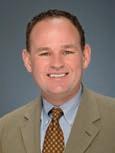
ALTERNATE
Richard C. Moreno (213) 630-1085 rmoreno@murchisonlaw.com
ALTERNATE Jean A. Dalmore (213) 630-1005 jdalmore@murchisonlaw.com
MEMBER SINCE 2001 Founded in 1930, Murchison & Cumming, LLP is an AV-rated AmLaw 500 “Go
To” law firm for litigation in California. One third of the firm’s shareholders are from diverse backgrounds. We have the resources of a large firm while ensuring the level of personalized service one would expect to receive from a small firm. We represent domestic and international businesses, insurers, professionals and individuals in litigated, non-litigated and transactional matters.
We value our reputation for excellence and approach our work with enthusiasm and passion. What truly sets us apart is our ability to provide our clients with an early evaluation of liability, damages, settlement value and strategy. Together with our clients we develop an appropriate strategy as we pursue the targeted result in a focused, efficient, and effective manner.
Additional Office: Irvine, CA • PH (714) 972-9977
CA Klinedinst PC
ADDRESS 501 West Broadway Suite 600 San Diego, CA 92101
PH (619) 400-8000
FAX (619) 238-8707
WEB www.Klinedinstlaw.com
PRIMARY Phillip H. Stanfield (602) 263-1745 pstanfield@jshfirm.com


ALTERNATE Michael A. Ludwig (602) 263-7342 mludwig@jshfirm.com


ALTERNATE
Clarice A. Spicker (602) 263-1706 cspicker@jshfirm.com




MEMBER SINCE 2001 Jones, Skelton & Hochuli, PLC is the largest and most experienced law firm of trial and appellate lawyers in Arizona practicing in the areas of insurance and insurance coverage defense. The firm’s 100+ attorneys defend insureds, self-insureds, government entities, corporations, and professional liability insureds throughout Arizona, New Mexico, and Utah.
Recognized as highly skilled, aggressive defenders of the legal and business communities, JSH lawyers have extensive trial and appellate experience in both state and federal courts. We present a vigorous defense in settlement negotiations and the deterrence of frivolous claims, as well as cost-effective arbitration and mediation services. With over 75 years of collective experience, our nationally-recognized in-house appellate team has handled over 800 appeals in state and federal courts.
AR Quattlebaum, Grooms & Tull PLLC
ADDRESS
111 Center St., Ste. 1900 Little Rock, AR 72201
PH (501) 379-1700
FAX (501) 379-1701
WEB www.QGTlaw.com
PRIMARY John E. Tull, III (501) 379-1705 jtull@qgtlaw.com

ALTERNATE Thomas G. Williams (501) 379-1722 twilliams@qgtlaw.com
ALTERNATE Michael N. Shannon (501) 379-1716 mshannon@qgtlaw.com
MEMBER SINCE 2004 With offices in Northwest and Central Arkansas, Quattlebaum, Grooms & Tull PLLC is a full-service law firm that can meet virtually any litigation, transactional, regulatory or dispute-resolution need. The firm’s clients include Fortune 500 companies, regional businesses, small entities, governmental bodies, and individuals. Our goal is to provide legal expertise with honesty, integrity, and respect to all clients, always keeping our client’s best interests in the forefront. Whether engaging in business formation, commercial transactions, or complex litigation, clients look to our over 40 attorneys for sound counsel, guidance and dependable advice, which has led to many long-term client relationships founded on mutual trust and respect.
Additional Office: Springdale, AR • (479) 444-5200
PRIMARY Frederick M. Heiser (949) 868-2606 fheiser@klinedinstlaw.com
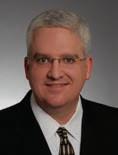

ALTERNATE
Heather L. Rosing (619) 488-8888 hrosing@klinedinstlaw.com
ALTERNATE Nadia P. Bermudez (619) 488-8811 nbermudez@klinedinstlaw.com

MEMBER SINCE 2002 Klinedinst PC serves domestic and international clients in a broad range of civil litigation, corporate defense, white collar, and transactional law matters. Klinedinst attorneys are highly skilled and experienced individuals who provide a range of sophisticated legal services to corporations, institutions, and individuals at both the trial and appellate levels in federal and state courts. Each matter is diligently and effectively managed, from simple transactions to complex document-intensive matters requiring attorneys from multiple disciplines across the West. Klinedinst is firmly committed to providing only the highest quality legal services, drawing upon the individual background and collective energies and efforts of each member of the firm. Klinedinst’s overriding goal is to efficiently and effectively achieve optimal results for each client’s legal and business interests.
Additional Office: Irvine, CA • PH (949) 868-2600
CA Hanson bridgett llp
ADDRESS 425 Market Street 26th Floor San Francisco, CA 94105
PH (415) 777-3200
FAX (415) 541-9366
WEB
www.hansonbridgett.com
ALTERNATE
PRIMARY Mert A. Howard (415) 995-5033
MHoward@hansonbridgett.com
Sandra Rappaport (415) 995-5053
SRappaport@ hansonbridgett.com
ALTERNATE Jonathan S. Storper (415) 995-5040 JStorper@hansonbridgett.com
MEMBER SINCE 2015 Hanson Bridgett LLP is a full service AmLaw 200 law firm with more than 200 attorneys across California. Creating a diverse workforce by fostering an atmosphere of belonging and intentional support has been a priority at Hanson Bridgett since its founding in 1958. We are dedicated to creating an environment that provides opportunities for people with varied backgrounds, both for attorneys and administrative professionals. We are also committed to the communities where our employees live and work and consider it part of our professional obligation to serve justice by encouraging and supporting pro bono and social impact work.

Additional Offices: Sacramento, CA • PH (916) 442-3333 | San Rafael, CA • PH (415) 925-8400 | Walnut Creek, CA • PH (925) 746-8460 58 | US LAW NETWORK MEMBER FIRMS
CA SNYDER BURNETT EGERER, LLP

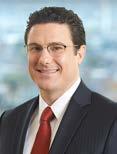

ADDRESS
5383 Hollister Avenue
Suite 240
Santa Barbara, CA 93111
PH (805) 692-2800
FAX (805) 692-2801
WEB
www.sbelaw.com
ALTERNATE
PRIMARY Sean R. Burnett (805) 683-7758 sburnett@sbelaw.com
CT HINCKLEY ALLEN
ADDRESS 20 Church Street, 18th Floor Hartford, CT 06103
PH (860) 725-6200
FAX (860) 278-3802
WEB www.hinckleyallen.com
Ashley Dorris Egerer (805) 683-7746 aegerer@sbelaw.com
ALTERNATE Christopher M. Cotter (805) 692-2800 ccotter@sbelaw.com

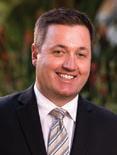





MEMBER SINCE 2001 Snyder Burnett Egerer, LLP is an AV rated firm which concentrates its practice on the defense and prosecution of civil litigation matters. The firm handles matters in state and federal courts throughout Central and Southern California, primarily for self-insured clients. Our very active trial practice includes actions in personal injury, premises liability, professional malpractice, business and complex litigation, employment law, products/drug liability, environmental, toxic tort, property, land use and development. Because the firm is staffed with trial lawyers, discovery does not involve “turning over every rock” and then billing the client for the effort. Rather, we direct discovery and investigation to the issues that will move the case toward resolution. If the case does not settle, we relish protecting our client’s rights at trial. The firm’s trial record is enviable – a winning percentage of over 85% for over 300 jury trials in the past decade.
ADDRESS
1731 E. Roseville Parkway Suite 200 Roseville CA 95661
PH (916) 787-2312
FAX (916) 787-2301
WEB www.cca-law.com
PRIMARY Richard Chavez (916) 607-3300 rchavez@cca-law.com

ALTERNATE Chad Coleman (916) 300-4323 ccoleman@cca-law.com

ALTERNATE Noelle Sage (714) 742-0782 nsage@cca-law.com
MEMBER SINCE 2023 Coleman Chavez & Associates, LLP is a 65+ attorney law firm focused on the defense of workers’ compensation claims and related litigation in California. Coleman Chavez & Associates was established in 2008, and we recently celebrated our 15th anniversary.
Coleman Chavez & Associates represents a variety of clients, including employers, insurance carriers and third-party administrators. We take pride in the quality of our work, and we are committed to providing thorough and effective representation to our clients. We believe that we can achieve the best results by staying well informed on the law, being thoroughly prepared, negotiating assertively and effectively, and keeping an open line of communication with our clients.
From our offices throughout the state, we service all Northern California and Southern California WCAB District Offices. The attorneys at Coleman Chavez & Associates look forward to working with you and your team members.
ADDRESS
1601 19th Street
Suite 1000 Denver, CO 80202
PH (303) 623-9000
FAX (303) 623-9222
WEB
www.lewisroca.com
PRIMARY Jessica L. Fuller (303) 628-9527 JFuller@lewisroca.com



ALTERNATE Ben M. Ochoa (303) 628-9574
BOchoa@lewisroca.com
ALTERNATE Michael D. Plachy (303) 628-9532
MPlachy@lewisroca.com
MEMBER SINCE 2005 Established and emerging companies, across key Colorado industries, consistently look to Lewis Roca Rothgerber Christie for informed and experienced counsel on the issues that matter most to their businesses. Our attorneys serve a diverse base of local, regional, national and international clients, including some of the world’s largest corporations, with transactional and litigation guidance. And from a service perspective, we immerse ourselves in your industry, business, and matter to solve your problems and anticipate the ones that lie ahead. We believe that every client deserves an exceptional experience and we’ve made it our mission to continuously exceed expectations in order to help you meet the unique business challenges of a rapidly evolving global marketplace. What matters to you, matters to us.
Additional Office: Colorado Springs, CO • PH (719) 386-3000
PRIMARY Noble F. Allen (860) 331-2610 nallen@hinckleyallen.com

ALTERNATE
William S. Fish, Jr. (860) 331-2700 wfish@hinckleyallen.com
ALTERNATE
Peter J. Martin (860) 331-2726 pmartin@hinckleyallen.com
MEMBER SINCE 2009 Hinckley Allen is a client-driven, forward-thinking law firm with one common goal: to provide great value and deliver outstanding results for our clients. We collaborate across practices and continuously pursue operational excellence to deliver cost-effective, exceptional service. Structured to serve our clients based on their industries and how they do business, we offer a rare combination of agility, responsiveness, full-service capabilities, and depth of experience.
Recognized as an AmLaw 200 Firm, Hinckley Allen offers pragmatic legal counsel, strategic thinking, and tireless advocacy to a diverse clientele. Our clients include regional, national, and international privately held and public companies and emerging businesses in a wide range of industries. Leading utilities, financial institutions, manufacturing companies, educational institutions, academic medical centers, health care institutions, hospitals, real estate developers, and construction companies depend on us for counsel. We have been a vital force in businesses, government, and our communities since 1906.
Additional Office: Manchester, NH • PH (603) 225-4334
DE COOCH AND TAYLOR
ADDRESS
1007 N. Orange Street Suite 1120 Wilmington, DE 19801
PH (302) 984-3800
FAX (302) 984-3939
WEB www.coochtaylor.com www.delawarelitigator.com
PRIMARY
C. Scott Reese (302) 984-3811 sreese@coochtaylor.com
ALTERNATE
ALTERNATE
Blake A. Bennett (302) 984-3889 bbennett@coochtaylor.com
R. Grant Dick IV (302) 984-3867 gdick@coochtaylor.com
MEMBER SINCE 2015 Cooch and Taylor, established in 1960, has long been regarded as one of Delaware’s best litigation firms. The firm’s attorneys spend a significant amount of time in the courtroom and have achieved many significant bench and jury verdicts, but recognize that to the vast majority of clients, success is defined by getting the best possible outcome long before a jury is ever seated. Delaware’s judiciary has a reputation as one of the best in the country based on factors such as judicial competence, treatment of litigation and timeliness. As a result, Delaware’s judges have strict expectations for all counsel appearing before them and Cooch and Taylor has over half a century of experience in ensuring its clients and co-counsel meet those expectations.
FL WICKER SMITH | CENTRAL FLORIDA
ADDRESS
390 North Orange Street, Suite 1000 Orlando. FL 32801
PH
(407) 843-3939
FAX (407) 649-8118
WEB www.wickersmith.com
PRIMARY Richards H. Ford (407) 317-2170 rford@wickersmith.com
ALTERNATE
Kurt M. Spengler (407) 317-2186 kspengler@wickersmith.com
MEMBER SINCE 2001 Founded in 1952, Wicker Smith O’Hara McCoy & Ford P.A. is a full-service trial firm deeply experienced in handling significant and complex litigation for a broad variety of clients including multinational corporations to individuals. With more than 260 attorneys, Wicker Smith services clients throughout Central and South Florida and beyond. Our Central Florida region serves Melbourne, Orlando, Tampa, and Sarasota. In South Florida, we serve Fort Lauderdale, Key Largo, Miami, Naples, Palmetto Bay, and West Palm Beach. The backbone of our relationship with clients is built upon integrity and stability. We strive to establish long-term relationships with our clients built upon a partnership of communication and trust by listening to our clients, understanding their businesses, and developing legal solutions to best meet their individual needs.

Additional Offices: Atlanta, GA • PH (407) 843-3939 | Brunswick, GA • PH (912) 266-8620 | Fort Lauderdale, FL • PH (954) 847-4800 Jacksonville, FL • PH (904) 355-0225 | Largo Key Largo, FL • PH (305) 448-3939 | Melbourne, FL • PH (321) 610-5800 Naples, FL • PH (239) 552-5300 | Orlando, FL • PH (407) 843-3939 | Palmetto Bay, FL • PH (305) 448-3939 Sarasota, FL • PH (941) 366-4200 | Tampa, FL • PH (813) 222-3939 West Palm Beach, FL • PH (561) 689-3800
59 | US LAW NETWORK MEMBER FIRMS Additional Offices: Los Angeles | Encino/Van Nuys | Orange County | Riverside | San Diego | Sacramento | Bay Area/Pleasant Hill | Fresno | San Jose/Salinas | Santa Rosa • PH (916) 787-2312
CA COLEMAN CHAVEZ & ASSOCIATES FOR WORKERS’ COMPENSATION ONLY CO LEWIS ROCA
FL WICKER SMITH | SOUTH FLORIDA
ADDRESS
2800 Ponce de Leon Blvd.
Suite 800 Coral Gables, FL 33134
PH (305) 448-3939
FAX (305) 441-1745
WEB www.wickersmith.com
ALTERNATE
PRIMARY
Nicholas E. Christin (305) 461-8710 nchristin@wickersmith.com

Oscar J. Cabanas ((305 )461-8710 ocabanas@wickersmith.com
ID DUKE EVETT PLLC
ADDRESS
1087 W River Street Suite 300 Boise, ID 83702
PH (208) 342-3310
FAX (208) 342-3299
WEB www.dukeevett.com
ALTERNATE Constantine “Dean” Nickas (305) 461-8703 cnickas@wickersmith.com
PRIMARY
Keely E. Duke (208) 342-3310 ked@dukeevett.com


ALTERNATE
Joshua S. Evett (208) 342-3310 jse@dukeevett.com
Founded in 1952, Wicker Smith O’Hara McCoy & Ford P.A. is a full-service trial firm deeply experienced in handling significant and complex litigation for a broad variety of clients including multinational corporations to individuals. With more than 260 attorneys, Wicker Smith services clients throughout Central and South Florida and beyond. Our Central Florida region serves Melbourne, Orlando, Tampa, and Sarasota. In South Florida, we serve Fort Lauderdale, Key Largo, Miami, Naples, Palmetto Bay, and West Palm Beach. The backbone of our relationship with clients is built upon integrity and stability. We strive to establish long-term relationships with our clients built upon a partnership of communication and trust by listening to our clients, understanding their businesses, and developing legal solutions to best meet their individual needs.
MEMBER SINCE 2001
Additional Offices: Atlanta, GA • PH (407) 843-3939 Brunswick, GA • PH (912) 266-8620 | Fort Lauderdale, FL • PH (954) 847-4800 Jacksonville, FL • PH (904) 355-0225 | Key Largo, FL • PH (305) 448-3939 Melbourne, FL • PH (321) 610-5800 Naples, FL • PH (239) 552-5300 | Orlando, FL • PH (407) 843-3939 | Palmetto Bay, FL • PH (305) 448-3939 Sarasota, FL • PH (941) 366-4200 Tampa, FL • PH (813) 222-3939 | West Palm Beach, FL • PH (561) 689-3800
FL CARR ALLISON | NORTHWEST FLORIDA
ADDRESS
305 South Gadsden St. Tallahassee, FL 32301
PH (850) 222-2107
FAX (850) 222-8475
WEB www.carrallison.com
PRIMARY Christopher Barkas (850) 518-6913 cbarkas@carrallison.com
ALTERNATE
William B. Graham (850) 518-6917 bgraham@carrallison.com
MEMBER SINCE 2001 The Tallahassee office of Carr Allison brings a legacy of more than 40 years of providing quality legal service to north Florida. A member of USLAW since 2001, Carr Allison has increased the scope of services available to its clientele, covering the Gulf Coast from Mississippi through Alabama and across the northern Florida panhandle to Jacksonville on the Atlantic coast.The lawyers handle all insurance issues from licensing to litigation. Firm members have extensive trial experience in the event matters can’t be resolved. Clients of the firm include insurance carriers as well as self-insured companies. Having a unique location in Florida’s Capital gives us the ability to lobby the legislature and influence public policy.With the resources of more than 120 lawyers in Alabama, Florida and Mississippi behind it, Carr Allison’s offices in Tallahassee and Jacksonville stand ready to serve the national and international client faced with legal exposure in Florida.
Additional
HI GOODSILL ANDERSON QUINN & STIFEL LLP
ADDRESS
First Hawaiian Center Suite 1600 999 Bishop Street Honolulu, HI 96813

PH (808) 547-5600
FAX (808) 547-5880
WEB www.goodsill.com
PRIMARY Edmund K. Saffery (808) 547-5736 esaffery@goodsill.com
ALTERNATE
Johnathan C. Bolton (808) 547-5854 jbolton@goodsill.com
MEMBER SINCE 2004 With more than 50 attorneys located in downtown Honolulu, Goodsill offers knowledge and experience in all aspects of civil law, including business and securities law, banking, real estate, tax, trusts and estates, public utilities, immigration, international transactions and civil litigation. In addition to representing clients in alternative dispute resolution, a number of our trial lawyers are trained mediators and are retained to resolve disputes. Goodsill’s litigation department also handles appeals in both state and federal courts.
Goodsill attorneys provide innovative, solutions-oriented legal and general business counsel to an impressive list of domestic and international clients. We work closely with each client to identify and deploy the right mix of legal and business expertise, talented support staff and technology.
MEMBER SINCE 2012 Success. Excellence. Experience. Dedication. These values form the foundation of our firm. At Duke Scanlan & Hall, we are dedicated to representing corporate, insurance, and healthcare clients through litigation, trials, and appeals all across Idaho and Eastern Oregon. We offer the experience and dedication of seasoned trial attorneys who insist on excellence in the pursuit of success for our clients. Our clients know that we not only consistently win, but that we keep them informed of case strategy and developments, while helping them manage the costs of litigation. In handling each case, we employ the following key strategies to help us effectively and efficiently fight for our clients: early and continued case evaluation and budgeting; consistent and timely communication with our clients; efficient staffing; and the use of advanced legal technology both in and out of the courtroom. While we bring experience and dedication to each of our cases, we are also proud of our profession and feel strongly that we – and the profession – can positively impact the lives of others. As part of our commitment, we support enhancing diversity in the legal field, working to improve our profession, and helping our community.
IL AMUNDSEN DAVIS LLC
ADDRESS
150 North Michigan Ave. Suite 3300 Chicago, IL 60601
PH (312) 894-3200
FAX (312) 894-3210 WEB www.amundsendavislaw. com
PRIMARY Lew R.C. Bricker (312) 894-3224 lbricker@ amundsendavislaw.com
ALTERNATE Larry A. Schechtman (312) 894-3253 lschechtman@ amundsendavislaw.com

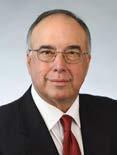






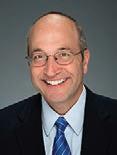
ALTERNATE Dennis J. Cotter (312) 894-3229 dcotter@ amundsendavislaw.com
MEMBER SINCE 2001 Amundsen Davis is a full service business law firm of more than 230 attorneys serving companies of all sizes throughout the U.S. and beyond. Our attorneys are prepared to handle a multitude of diverse legal services from the inception of business, to labor and employment issues, and litigation. We understand the entrepreneurial thinking that drives business decisions for our clients. Amundsen Davis attorneys combine experience with a practical business approach to offer client-centered services efficiently and effectively. The foundation for our success is the integrity, quality and experience of our attorneys and staff, an understanding of the relationship between legal risks and business objectives, and the desire to explore new and innovative ways to solve client problems.
IA SIMMONS PERRINE MOYER BERGMAN PLC
ADDRESS
115 Third Street SE Suite 1200 Cedar Rapids, IA 52401
PH (319) 366-7641 FAX (319) 366-1917 WEB www.spmblaw.com
PRIMARY Kevin J. Visser (319) 366-7641 kvisser@spmblaw.com
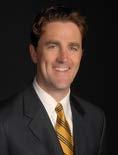

ALTERNATE
Lynn W. Hartman (319) 366-7641 lhartman@spmblaw.com
ALTERNATE
Brian J. Fagan (319) 366-7641 bfagan@spmblaw.com
MEMBER SINCE 2005 Simmons Perrine Moyer Bergman PLC is a full-service law firm headquartered in Cedar Rapids, Iowa with an additional office located in Coralville, Iowa. The firm’s deep history dates back to 1916, having more than a century of experience representing national (and international) clients in matters from complex transportation, construction and intellectual property litigation to business transactions of all sizes. We are also home to one of the largest banking practices in Iowa and are known for our long history of serving the needs of families and their businesses, including estate and succession planning. Our attorneys work together to find the most efficient solutions for the best outcomes for our clients.
Additional Office: Coralville, IA • PH (319) 354-1019
Daphne,
•
626-9340 | Dothan, AL • PH (334) 712-6459
Jacksonville,
Gulfport, MS • PH
Offices: Birmingham, AL • PH (205) 822-2006 |
AL
PH (251)
Florence, AL • PH (256) 718-6040 |
FL • (904) 328-6456 |
(228) 864-1060
Additional
Lake, IL • PH (815) 337-4900 | Rockford, IL • PH (815) 987-0441 | St. Charles, IL • PH (630) 587-7910 60 | US LAW NETWORK MEMBER FIRMS
Offices: Crystal
KS/MO DYSART TAYLOR
ADDRESS
700 West 47th Street
Suite 410 Kansas City, MO 64112
PH (816) 931-2700
FAX (816) 931-7377
WEB www.dysarttaylor.com
MD FRANKLIN & PROKOPIK P.C.
ADDRESS
2 North Charles Street, Suite 600 Baltimore, MD 21201
PH (410) 752-8700
FAX (410) 752-6868
WEB www.fandpnet.com
PRIMARY Amanda Pennington Ketchum (816) 714-3066 aketchum@dysarttaylor.com


ALTERNATE Patrick K. McMonigle (816) 714-3039 pmcmonigle@dysarttaylor.com





ALTERNATE John F. Wilcox, Jr. (816) 714-3046 jwilcox@dysarttaylor.com
MEMBER SINCE 2014 Dysart Taylor was founded in 1934. It is a highly respected Midwestern law firm with broad expertise to support its clients’ growth and success in a myriad of industries. It is also touted as one of the nation’s leading transportation law firms. Six members of the firm have served as Presidents of the Transportation Lawyers Association, the leading bar association for attorneys in the transportation industry.
Our attorneys are active in the community and have held governing positions in local and state bar associations and community organizations. Our AV-rated law firm is proud of its reputation for zealous advocacy, high ethical standards, and outstanding results. We are equally proud of the trust our local and national clients place in us.
LA MCCRANIE, SISTRUNK, ANZELMO, HARDY, MCDANIEL & WELCH
ADDRESS
909 Poydras Street Suite 1000 New Orleans, LA 70112
PH (504) 831-0946
PH (800) 237-9108
FAX (800) 977-8810
WEB www.mcsalaw.com
PRIMARY Keith W. McDaniel (504) 846-8330 kmcdaniel@mcsalaw.com


ALTERNATE Heather N. Shockley (504) 846-8334 hshockley@mcsalaw.com
MEMBER SINCE 2001 McCranie, Sistrunk, Anzelmo, Hardy, McDaniel & Welch is an aggressive, experienced, “AV” rated law firm with numerous “AV” rated attorneys. We provide our clientele with innovative, cost-effective representation statewide and in the gulf south.
We represent both insured and self-insured clients who face a multiplicity of exposures in today’s business environment.
Our practice areas include tort litigation, professional liability litigation, transportation, products liability, hotel-innkeeper liability, construction, workman’s compensation, environmental and toxic tort, maritime claims, premises liability, insurance coverage, excess insurance issues, highway design cases, civil rights litigation, municipal liability, medical malpractice, and other related areas.
Our attorneys also have expertise in commercial entity risks such as fidelity, surety, director and officer liability, and errors and omissions claims.
ME RICHARDSON, WHITMAN, LARGE & BADGER
ADDRESS
465 Congress Street, 9th Floor Portland, ME 04101
PH (207) 774-7474
FAX
(207) 774-1343
WEB www.rwlb.com
PRIMARY Elizabeth G. Stouder (207) 774-7474 estouder@rwlb.com

ALTERNATE Eric J. Uhl (207) 774-7474 euhl@rwlb.com



ALTERNATE Joseph L Cahoon (207) 774-7474 jcahoon@rwlb.com

MEMBER SINCE 2004 The core of Richardson, Whitman, Large & Badger’s practice is civil litigation. We are one of the largest and most diverse trial practice firms in Northern New England. From offices in Portland and Bangor we handle hundreds of cases in all of Maines’s state and federal courthouses. In addition, RWLB has developed an extensive labor and employment practice: counseling clients, writing policies and employee handbooks, and handling cases filed in the Maine Human Rights Commission, the EEOC, and all Maine courts.
RWLB’s trial practice covers the full breadth of civil litigation, from products liability to professional malpractice, from dam construction to ship collision, from gender discrimination to wiretapping and criminal defense. Our clients include small family businesses, local Maine companies, and some of the world’s largest multinational corporations. They come from all sectors of the economy and have included automakers, construction contractors, retailers, electric utilities, insurers, law firms, lending institutions, supermarkets, doctors, consumer product manufacturers, insurance agencies, and municipalities.
Additional Office: Bangor, ME
PRIMARY Albert B. Randall, Jr. (410) 230-3622 arandall@fandpnet.com
ALTERNATE
Tamara B. Goorevitz (410) 230-3625 tgoorevitz@fandpnet.com
ALTERNATE
Stephen J. Marshall (410) 230-3612 smarshall@fandpnet.com
MEMBER SINCE 2005 Headquartered in Baltimore City, Franklin & Prokopik is a regional law firm comprised of over 70 experienced attorneys. Our mission of providing the highest quality personal service enables us to grow, as we attract and develop other likeminded attorneys to serve our clients. From twenty-four hour emergency services to complex litigation, we listen carefully to our clients and tailor our services to meet their outcome goals. Franklin & Prokopik provides a broad spectrum of legal services and represents corporate and business entities of all sizes, from small “mom and pops” to Fortune 500 companies across a wide range of industries.
Additional Offices: | Easton, MD • PH (410) 820-0600 | Hagerstown, MD • PH (301) 745-3900
MA RUBIN AND RUDMAN LLP

ADDRESS 53 State Street Boston, MA 02109
PH
(617) 330-7000
FAX (617) 330-7550
WEB www.rubinrudman.com
PRIMARY John J. McGivney (617) 330-7017 jmcgivney@rubinrudman.com
ALTERNATE
Michael D. Riseberg (617) 330-7180 mriseberg@rubinrudman.com
ALTERNATE
Michael F. Connolly (617) 330-7101 mconnolly@rubinrudman.com
MEMBER SINCE 2020 Founded over a century ago, Rubin and Rudman LLP is a full-service law firm with more than 75 lawyers in Boston, Massachusetts. With a diverse mix of practices, Rubin and Rudman serves national and international companies, including large public companies and closely held businesses; real estate developers; biotechnology, pharmaceutical and medical device makers; regulated industries, public entities and municipalities; insurance companies and their insureds; educational and other institutions; non-profit organizations; families and high net worth individuals. Rubin and Rudman also has a suburban office in Woburn, Massachusetts. Web: www. rubinrudman.com.
Our years of experience and continuing dedication to providing high quality legal advice has earned us client loyalty and respect amongst our peers. Our attorneys thrive on challenging assignments across diverse areas of the law. We offer innovation and responsiveness, with a collaborative team approach to solving problems that get results
Additional Office: | Woburn, MA • PH (781) 933-5505
MN larson•king, LLP


ADDRESS
30 East Seventh Street Suite 2800 St. Paul, MN 55101
PH (651) 312-6500
FAX (651) 312-6618 WEB www.larsonking.com
PRIMARY Mark A. Solheim (651) 312-6503 msolheim@larsonking.com
ALTERNATE
David M. Wilk (651) 312-6521 dwilk@larsonking.com
ALTERNATE Shawn M. Raiter (651) 312-6518 sraiter@larsonking.com
MEMBER SINCE 2002 As a nationally recognized firm with an enviable track record of success, Larson • King delivers high quality legal services through a nimble and cost-effective team, without strict or overpriced fee structures. Our firm is capable of efficiently managing dispersed litigation resources and our attorneys provide seamless integration and rapid response times. Larson • King partners work directly with clients, and are closely involved with all aspects of a dispute. Whether it is finding the right expert testimony in a construction case, or retaining local counsel in a remote jurisdiction, Larson • King attorneys hand-select the right team to achieve client objectives. With these resources, Larson • King stands ready to take a case to the highest court – there are times when this fact alone can deter the opposition.
61 | US LAW NETWORK MEMBER FIRMS
MS CARR ALLISON | SOUTHERN MISSISSIPPI
ADDRESS
1319 26th Avenue Gulfport, MS 39501
PH (228) 864-1060
FAX (228) 864-9160
WEB www.carrallison.com
PRIMARY Douglas Bagwell (228) 678-1005 dbagwell@carrallison.com
MEMBER SINCE 2001 Carr Allison is one of the fastest growing firms in the Southeast. Why? Our clients tell us the fact that we have lawyers with a lifetime of ties in the seven cities in Alabama, Florida and Mississippi where our offices are located is the primary reason they come to us for legal problems in those areas. In Mississippi, we provide litigation services to national clients in the southern part of Mississippi from our office in Gulfport.When clients face litigation exposure in Mississippi they often hear the horror stories involving the imposition of punitive damages. We like to think we “wrote the book” on the subject of punitive damages in Mississippi. With the resources of more than 120 lawyers in Alabama, Florida and Mississippi behind it, the Carr Allison office in Gulfport, Mississippi stands ready to serve the national and international client faced with legal exposure in southern Mississippi.

Additional Offices:
Birmingham, AL • PH (205) 822-2006 | Daphne, AL • PH (251) 626-9340 | Dothan, AL • PH (334) 712-6459
Florence, AL • PH (256) 718-6040 | Jacksonville, FL • PH (904) 328-6456 | Tallahassee, FL • PH (850) 222-2107
MS COPELAND, COOK, TAYLOR AND BUSH, P.A.
ADDRESS
600 Concourse, Suite 200 1076 Highland Colony Pkwy. Ridgeland, MS 39157
PH
(601) 856-7200
FAX (601) 856-7626
WEB www.copelandcook.com
PRIMARY James R. Moore, Jr. (601) 427-1301 jmoore@cctb.com
ALTERNATE Greg Copeland (601) 427-1313 gcopeland@cctb.com
ALTERNATE R. Eric Toney (601) 427-1302 etoney@cctb.com
MEMBER SINCE 2004 Copeland, Cook, Taylor and Bush, P.A. is a full-service AV-rated law firm based in the Metro Jackson area of Mississippi. Founded in 1985 by the four named shareholders, the firm’s original practice was based principally on Commercial Litigation, Oil and Gas, and Insurance Defense. The firm’s growth has resulted from strategic planning in direct response to the diverse needs of our clients. CCTB has built a reputation for strong client relationships as a result of its lawyers’ skills in communication and counseling. If litigation cannot be avoided, our seasoned litigation group is prepared to aggressively defend the interests of our clients in state and federal courts. While Mississippi can be a challenging jurisdiction, the record of CCTB clients speaks well for the quality of our representation.
Additional Offices: Gulfport, MS • PH (228) 863-6101 | Hattiesburg, MS • PH (601) 264-6670
MO LASHLY & BAER, P.C.
ADDRESS
714 Locust Street St. Louis, MO 63101
PH (314) 621-2939
FAX (314) 621-6844
WEB www.lashlybaer.com
MT DAVIS, HATLEY, HAFFEMAN & TIGHE, P.C.
ADDRESS
The Milwaukee Station Third Floor 101 River Drive North Great Falls, MT 59401
PH
(406) 761-5243
FAX
(406) 761-4126
WEB
www.dhhtlaw.com
ALTERNATE
ALTERNATE
PRIMARY Maxon R. Davis (406) 761-5243 max.davis@dhhtlaw.com
Paul R. Haffeman (406) 761-5243




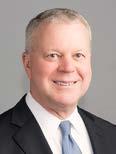

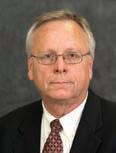
paul.haffeman@dhhtlaw.com
Gregory J. Hatley (406) 761-5243
greg.hatley@dhhtlaw.com
MEMBER SINCE 2007 Davis, Hatley, Haffeman & Tighe, P.C., is a business and litigation law firm located in Great Falls, Montana. It has been in continuous existence since 1912. Originally the firm focused on insurance defense work. While the defense of insureds and insurers remains a primary component of DHHT’s practice, the firm’s work has expanded over the years to include business litigation, representation of national and multi-national corporations in class actions, products liability, employment, environmental, toxic tort and commercial litigation, and the defense of public entities, including the State of Montana and numerous cities and counties, as well as a wide range of transactional work, running the gamut of business formations, farm and ranch sales, commercial leasing, oil and gas, and business consulting. There is also an active estate planning and probate practice. The firm carries on a state-wide trial practice. The lawyers at DHHT are proud of their reputation in the Montana legal community as attorneys who are always willing to go the distance for their clients. Since 2007, DHHT lawyers tried cases to verdict in federal and state courts all over Montana, including Great Falls, Billings, Missoula, Helena, Bozeman, Kalispell, Lewistown, Glasgow, Deer Lodge and Shelby. That reputation assures clients of experienced representation through all phases of litigation and instant creditability with the Montana bench & bar.
ADDRESS
1700 Farnam Street Suite 1500 Omaha, NE 68102
PH (402) 344-0500
FAX (402) 344-0588
WEB www.bairdholm.com
PRIMARY Jennifer D. Tricker (402) 636-8348 jtricker@bairdholm.com



ALTERNATE
J. Scott Searl (402) 636-8265 ssearl@bairdholm.com
ALTERNATE Christopher R. Hedican (402) 636-8311 chedican@bairdholm.com


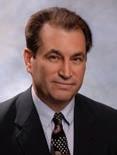

MEMBER SINCE 2007 Baird Holm LLP’s integrated team of 97 attorneys, licensed in 22 states, is committed to connecting each of its valued clients to the positive outcomes they seek. With extensive and diverse expertise, we leverage one another’s skills to respond efficiently to our clients’ local, regional, national and international legal needs. We are proud to represent public and private companies, individuals, private funds and other investors, financial institutions, governmental entities and nonprofit organizations.
Rooted by the promise to constantly evolve in anticipation of our clients’ changing needs, Baird Holm has enjoyed steady and measured growth since its founding in 1873. We are proud of our strong tradition of uncompromising quality, dedication to clients, personal and professional integrity, and service to the profession and the community.
ADDRESS
1100 E. Bridger Avenue Las Vegas, NV 89101
PH (702) 366-0622
FAX (702) 366-0327
WEB www.thorndal.com
PRIMARY Stephen L. Beimdiek (314) 436-8303 sbeim@lashlybaer.com
ALTERNATE Kevin L. Fritz (314) 436-8309 klfritz@lashlybaer.com
ALTERNATE Julie Z. Devine (314) 436-8329 jdevine@lashlybaer.com
MEMBER SINCE 2002 Lashly & Baer, P.C. is a mid-size Missouri law firm with deep roots in St. Louis and surrounding areas. As a full-service firm, we have been fortunate to develop a very diverse and extremely loyal base of national, regional and local clients. Our clients have learned to expect a high level of service and a great degree of satisfaction, regardless of their size. Whether it’s a publicly-owned or private business, government institution, hospital or an individual – to each client, there is no more important legal matter than theirs. We know this and work hard to achieve results and help our clients reach their goals. Given the complexities of today’s business environment, lawyers develop experience in specific practice areas, such as: civil litigation, corporate, product liability, retail, transportation, professional liability, labor and employment, education, estate planning, government, health care, medical malpractice defense, personal injury, toxic tort and real estate.
Since 1912 our simple philosophy has never changed: at the core of every case is the client. The client’s goals become our goals, and our firm works tirelessly to find the most efficient and cost-effective solution to each legal issue.
PRIMARY Brian K. Terry (702) 366-0622 bkt@thorndal.com
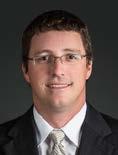
ALTERNATE Katherine F. Parks (775) 786-2882 kfp@thorndal.com
ALTERNATE Michael C. Hetey (702) 366-0622 mch@thorndal.com
MEMBER SINCE 2007 Thorndal Armstrong has enjoyed a strong Nevada presence since 1971. Founded in Las Vegas, the firm has grown from two lawyers to just under thirty. It expanded its statewide services in 1986 with the opening of the northern Nevada office in Reno. An additional office was opened in Elko in 1996 to further satisfy client demand in the northeastern portion of the state.
With a strong emphasis in civil defense litigation for insureds and self-insureds, including expertise in complex litigation, general business, commercial law, and industrial insurance defense, Thorndal, Armstrong, Delk, Balkenbush & Eisinger is committed to providing thorough, efficient and effective legal services to its clients. Its experienced attorneys, combined with a highly capable professional support staff, allow the firm to represent clients on a competitive, cost-efficient basis.
Additional Office: Reno, NV • PH (775) 786-2882
NE baird holm llp NV THORNDAL
ARMSTRONG
62 | US LAW NETWORK MEMBER FIRMS
NJ CONNELL FOLEY LLP
ADDRESS
56 Livingston Avenue Roseland, NJ 07068
PH (973) 535-0500
FAX (973) 535-9217
WEB www.connellfoley.com
PRIMARY Kevin R. Gardner (973) 840-2415 kgardner@connellfoley.com



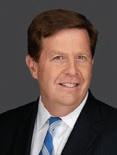

ALTERNATE John D. Cromie (973) 840-2425 jcromie@connellfoley.com
ALTERNATE Karen P. Randall (973) 840-2423 krandall@connellfoley.com





MEMBER SINCE 2005 A leading full-service regional law firm headquartered in New Jersey, Connell Foley LLP has more than 140 attorneys across seven offices. We take a hands-on approach to provide outstanding legal services while maintaining a firm culture predicated on service and teamwork. Our clients range from Fortune 500 corporations, to government entities, middle market and start-up businesses, and entrepreneurs. With experience in the various industries in which our clients operate, we offer innovative and cost-effective solutions. Connell Foley is recognized as a leader in numerous areas of law, including: banking and finance, bankruptcy and restructuring, commercial litigation, construction, corporate law, cybersecurity, environmental, immigration, insurance, labor and employment, product liability, professional liability, real estate, zoning and land use, transportation, trusts and estates, and white collar criminal defense.
Additional Offices: Cherry Hill, NJ • PH (856) 317-7100 | Jersey City, NJ • PH (201) 521-1000 Newark, NJ • PH (973) 436-5800 | New York, NY • PH (212) 307-3700
NM MODRALL SPERLING
ADDRESS
500 Fourth Street N.W. Suite 1000 Albuquerque, NM 87102
PH (505) 848-1800
FAX (505) 848-9710
WEB
www.modrall.com
PRIMARY Jennifer G. Anderson
(505) 848-1809
Jennifer.Anderson@modrall.com
NY TRAUB LIEBERMAN
ADDRESS
7 Skyline Drive Hawthorne, NY 10532
PH (914) 347-2600
FAX (914) 347-8898
WEB www.traublieberman.com
PRIMARY Stephen D. Straus (914) 586-7005 sstraus@tlsslaw.com
ALTERNATE Lisa Rolle (914) 586-7047 lrolle@tlsslaw.com
ALTERNATE Colleen E. Hastie (914) 586-7075 chastie@tlsslaw.com

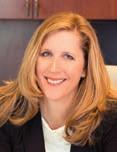
MEMBER SINCE 2005 Traub Lieberman, located in Westchester County, NY, has achieved a national reputation for excellence in legal service. We are recognized by multiple organizations that monitor the legal community for outstanding service and high ethical standards.
Our focus is on innovative solutions to serve the needs of clients with sophisticated legal representation. We represent corporate clients in commercial disputes, and professionals in lawsuits alleging breach of contract and professional negligence, including employment practices, defense of lawyers, accountants, financial advisors, agents, brokers, corporate directors and officers. Our practice groups include defense of general and municipal liability, products liability, and complex toxic tort lawsuits.
Traub Lieberman provides a complete range of services to our insurance company clients including claim and coverage analysis, complex dispute resolution and policy drafting.

Additional Office: London, England • PH +44 20 3741 9500
ADDRESS 926 RXR Plaza Uniondale, NY 11556-0926
PH
(516) 357-3000
FAX (516) 357-3333
WEB www.rivkinradler.com
ALTERNATE
Megan T. Muirhead
(505) 848-1888
Megan.Muirhead@modrall.com
ALTERNATE
Timothy L. Fields (505) 848-1841
Timothy.Fields@modrall.com
Modrall Sperling provides high quality legal services on a range of issues and subjects important to businesses and individuals in New Mexico. Our clients include financial institutions, state and local governmental bodies, insurance companies, small and family businesses, national and multi-national corporations, energy and natural resource companies, educational institutions, private foundations, farmers, ranchers, and other individuals.With offices in Albuquerque and Santa Fe, the firm provides innovative legal solutions and is prepared to meet both the basic and sophisticated demands of business and individual clients in a challenging economy. Since its founding in 1937, Modrall Sperling has been recognized for excellence in a variety of practice areas and many of our lawyers have been consistently ranked among the best and brightest by peer review, as conducted by legal ranking organizations including Best Lawyers in America®, Chambers USA, Southwest Super Lawyers®, Martindale-Hubbell, and Benchmark Litigation. Several of our lawyers have also been recognized on a regional and national level.
MEMBER SINCE 2004
Additional Office: Santa Fe, NM • PH (505) 983-2020
NY BARCLAY DAMON LLP
ADDRESS
The Avant Building, 200 Delaware Avenue Buffalo, NY 14202
PH (716) 856-5500
FAX
(716) 856-5510
WEB www.barclaydamon.com
PRIMARY Peter Marlette (716) 858-3763
pmarlette @barclaydamon.com
ALTERNATE Michael Murphy (518) 429-4209 mjmurphy@ barclaydamon.com

ALTERNATE Courtney Merriman (315) 425-2715 cmerriman@ barclaydamon.com
MEMBER SINCE 2019 Barclay Damon has 300 attorneys across a strategic platform of locations. Our attorneys team across practices and offices to provide customized, targeted solutions grounded in industry knowledge and a deep understanding of clients’ businesses. For more information, visit our award-winning website at barclaydamon.com.
Additional Offices: Albany, NY • PH (518) 429-4200 | Rochester, NY • PH (585) 295-4400 Syracuse, NY • PH (315) 425-2700 | New York, NY • PH (212) 784-5800 | Washington, DC • PH (202) 582-0601
PRIMARY David S. Wilck (516) 357-3347 david.wilck@rivkin.com
ALTERNATE
ALTERNATE
Jacqueline Bushwack (516) 357-3239 jacqueline.bushwack@rivkin.com
Stella Lellos (516) 357-3373 stella.lellos@rivkin.com

MEMBER SINCE 2016 Through five offices and 200 lawyers, Rivkin Radler consistently delivers focused and effective legal services. We’re committed to best practices that go beyond professional and ethical standards. Our work product is clear and delivered on time. As a result, our clients proceed with confidence.
We provide strong representation and build even stronger client relationships. Many clients have been placing their trust in us for more than 30 years. Our unwavering commitment to total client satisfaction is the driving force behind our firm. We are the advisor-of-choice to successful individuals, middle-market companies and large corporations.
Additional Office: New York, NY • PH (212) 455-9555
NY RIVKIN RADLER LLP NC POYNER SPRUILL LLP


ADDRESS
301 Fayetteville St. Ste. 1900
P.O. Box 1801 (27602) Raleigh, NC 27601
PH (919) 783-6400
FAX (919) 783-1075
WEB www.poynerspruill.com
PRIMARY Deborah E. Sperati (252) 972-7095 dsperati@poynerspruill.com
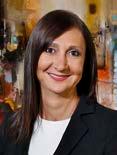
ALTERNATE Randall R. Adams (252) 972-7094 radams@poynerspruill.com
ALTERNATE Karen H. Chapman (704) 342-5293 kchapman@poynerspruill.com
MEMBER SINCE 2004 Poyner Spruill LLP is a large, multidisciplinary North Carolina law firm, providing a comprehensive range of business and litigation legal services. The firm has a reputation for professional excellence and client service throughout the Southeast. Poyner Spruill has approximately 100 attorneys with offices in Charlotte, Raleigh, Rocky Mount, Southern Pines and Wilmington, from which we cover all federal and state courts. Approximately one-half of the firm attorneys practice litigation including a broad range of general commercial litigation, bank litigation and defense work in various types of liability cases. Many of our practice groups send up-to-the-minute legal developments on a myriad of issues pertinent to our clients’ business needs. Our periodic mailings are distributed via e-mail and posted to our web site’s publications page. We invite you and your clients to take advantage of this complimentary news service by signing up through our web site.
Additional Offices: Charlotte, NC • PH (704) 342-5250 | Rocky Mount, NC • PH (252) 446-2341 | Southern Pines, NC • PH (910) 692-6866
63 | US LAW NETWORK MEMBER FIRMS
ND EBELTOFT . SICKLER . LAWYERS PLLC
ADDRESS
2272 Eighth Street West Dickinson, ND 58601
PH (701) 225-5297
FAX (701) 225-9650
WEB www.ndlaw.com
PRIMARY Randall N. Sickler (701) 225-5297 rsickler@ndlaw.com

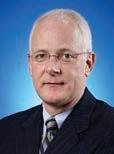



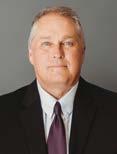
ALTERNATE Nicholas C. Grant (701) 225-5297 ngrant@ndlaw.com
ALTERNATE Courtney Presthus (701) 225-5297 cpresthus@ndlaw.com



MEMBER SINCE 2003 At Ebeltoft . Sickler . Lawyers PLLC we break away from rigid traditions and place our clients at the heart of all we do.
Our lawyers are skilled in civil litigation and means to avoid litigation. We provide advance planning and problem solving for businesses large and small, established and new. Our clients include a wide range of energy and mineral developers, manufacturers, insurance companies, financial institutions, public entities, hospitals and nursing homes, construction and transportation industries, educational institutions and non-profit entities.
Ebeltoft . Sickler . Lawyers PLLC is a law firm better for you. Better for your needs.
OH ROETZEL & ANDRESS
ADDRESS
1375 East Ninth Street
One Cleveland Center 10th Floor Cleveland, OH 44114
PH (216) 623-0150
FAX (216) 623-0134
WEB www.ralaw.com
PRIMARY Bradley A. Wright (330) 849-6629 bwright@ralaw.com
ALTERNATE
Moira H. Pietrowski (330) 849-6761 MPietrowski@ralaw.com

ADDRESS 1515 SW Fifth Avenue Suite 600 Portland, OR 97201-5449
PH (503) 228-7967
FAX (503) 222-7261
WEB www.williamskastner.com
ALTERNATE Chris Cotter (330) 819-1127 ccotter@ralaw.com
Founded in 1876, Roetzel & Andress is a leading full-service law firm headquartered in Ohio. The firm provides comprehensive legal services to publicly traded and privately held companies, financial services participants, professional and governmental organizations, as well as private investors, industry executives and individuals. With over 160 lawyers in 12 offices, including five regional offices in Ohio, Roetzel & Andress collaborates seamlessly across industries and disciplines to provide sophisticated transactional, employment and litigation guidance to clients across the public and private sectors.
MEMBER SINCE 2003
OK PIERCE COUCH HENDRICKSON BAYSINGER & GREEN, L.L.P.
ADDRESS
1109 North Francis Pierce Memorial Building Oklahoma City, OK 73106
PH (405) 235-1611
FAX
(405) 235-2904
WEB www.piercecouch.com
PRIMARY Gerald P. Green (405) 552-5271 jgreen@piercecouch.com
ALTERNATE Amy Bradley-Waters (918) 583-8100 abradley-waters@ piercecouch.com
ALTERNATE Mark E. Hardin (918) 583-8100 mhardin@piercecouch.com

MEMBER SINCE 2002 Pierce Couch Hendrickson Baysinger & Green, L.L.P. was founded in 1923 and is the largest litigation defense firm in the state of Oklahoma. The Firm has offices in Oklahoma City and Tulsa and is engaged in the representation of clients in all 77 Oklahoma Counties and all three federal district courts. Our attorneys have expertise in the areas listed below and prides itself in developing strategies for the defense of its clients, delivering advice and counsel to deal with claims ranging from the defensible to the catastrophic. Our attorneys have tried hundreds of cases to jury verdict and have mediated and/or arbitrated thousands of disputes. We attribute the success and longevity of our firm to our steadfast philosophy of combining the best in cost-efficient legal services with client-tailored strategies.
Additional Office: Tulsa, OK • PH (918) 583-8100
PRIMARY Thomas A. Ped (503) 944-6988 tped@williamskastner.com
ALTERNATE Heidi L. Mandt (503) 228-7967 hmandt@williamskastner.com
MEMBER SINCE 2002 Williams Kastner has been providing legal and business advice to a broad mix of clients since our Seattle office opened in 1929. With more than 65 lawyers in Washington and Oregon, the firm combines the resources and experience to offer national and regional capabilities with the client service and sensibility a local firm can provide. The firm culture is characterized by hard work, high-performance teamwork, diversity and partnerships with our clients and the local community. Our commitment to our clients is reflected through our quality legal work, personalized approach to servicing our clients and the integrity and pride we devote towards the practice of law.
Additional Office: Seattle, WA • PH (206) 628-6600
OR WILLIAMS KASTNER PA SWEENEY & SHEEHAN, P.C.
ADDRESS 1515 Market Street Suite 1900 Philadelphia, PA 19102
PH (215) 563-9811
FAX (215) 557-0999
WEB www.sweeneyfirm.com
PRIMARY
J. Michael Kunsch (215) 963-2481 michael.kunsch@ sweeneyfirm.com

ALTERNATE
Warren E. Voter (215) 963-2439 warren.voter@ sweeneyfirm.com
ALTERNATE
Robyn F. McGrath (215) 963-2485 robyn.mcgrath@ sweeneyfirm.com

MEMBER SINCE 2003 Founded in 1971, Sweeney & Sheehan is a litigation firm of experienced and dedicated trial attorneys and other professionals working in partnership with our clients to meet their changing and increasingly sophisticated particular needs. With client satisfaction our primary goal, we are committed to delivering superior legal services and pursuing excellence in all aspects of our practice. Our success is achieved without compromising the ideals which define the best in our profession: integrity, loyalty and expertise. We constantly enhance our firm to meet the expectations of our clients. Committed to these principles, we have a reputation as skillful and effective litigators in a broad range of practice areas, providing the talent and experience of larger firms while maintaining flexibility to deliver personalized, cost-effective quality service.
Additional Office: Woburn, MA • PH (781) 933-5505
PA PION, NERONE, GIRMAN, WINSLOW & SMITH, P.C.
ADDRESS
1500 One Gateway Center 420 Ft. Duquesne Blvd. Pittsburgh, PA 15222
PH (412) 281-2288
FAX (412) 281-3388 WEB www.pionlaw.com
PRIMARY John T. Pion (412) 667-6200 jpion@pionlaw.com
ALTERNATE Michael F. Nerone (412) 667-6234 mnerone@pionlaw.com




ALTERNATE Timothy R. Smith (412) 667-6212 tsmith@pionlaw.com
MEMBER SINCE 2011 Pion, Nerone, Girman, Winslow & Smith, P.C. is a civil litigation firm with offices in Pittsburgh and Harrisburg.
Our practice areas include transportation, railroad, asbestos, premises liability, products liability, family law, estate, Medicare Set-Aside, workers’ compensation, and general liability. In addition to trial representation, catastrophic response and business consulting, the firm has an appellate and complex research group. The Partners of the firm have more than 150 years of collective experience.
Most of our lawyers and staff were born and raised in Pennsylvania and we are proud to be part of the distinguished Pittsburgh and Harrisburg legal communities. The emergency response telephone number (412-600-0217) is answered by a lawyer 24/7 and allows us to provide high quality service to our clients. We urge our clients to utilize this number should the need arise.
Additional Offices: Akron, OH • PH (330) 376-2700 | Cincinnati, OH • PH (513) 361-0200 | Columbus, OH • PH (614) 463-9770 Toledo, OH • PH (419) 242-7985 | Wooster, OH • PH (330) 376-2700 | Detroit, MI • PH (313) 309-7033 64 | US LAW NETWORK MEMBER FIRMS
RI ADLER POLLOCK & SHEEHAN P.C.
ADDRESS
One Citizens Plaza
8th Floor Providence, RI 02903
PH (401) 274-7200
FAX (401) 751-0604
WEB www.apslaw.com
TN MARTIN, TATE, MORROW & MARSTON, P.C.
ADDRESS 6410 Poplar Avenue Suite 1000 Memphis, TN 38119 PH (901) 522-9000
FAX (901) 527-3746
WEB www.martintate.com
PRIMARY Richard R. Beretta, Jr. (401) 427-6228 rberetta@apslaw.com



ALTERNATE Robert P. Brooks (401) 274-7200 rbrooks@apslaw.com
ALTERNATE Elizabeth M. Noonan (401) 274-7200 bnoonan@apslaw.com
MEMBER SINCE 2008 Since 1960, Adler Pollock & Sheehan P.C. has delivered client-focused business law services designed to achieve cost-effective solutions for today’s complex challenges. Based in Providence, the firm is a full-service regional law firm, featuring a sophisticated corporate practice and a nationally-renowned litigation practice. The firm successfully combines the depth and breadth of expertise of a large law firm with the advantages of responsive and direct personal service by partners found in smaller firms.
Among the firm’s more than 60 attorneys are several former leaders of the Rhode Island legislature as well as former senior members of state administrations who are able to provide a unique understanding of governmental processes for clients. The firm’s client base includes Fortune 500 and 100 companies, small and medium-sized businesses, individuals, public and quasi-public agencies, and private not for- profit organizations.
Additional Office: Newport, RI • PH (401) 847-1919
SC SWEENY, WINGATE & BARROW, P.A.
ADDRESS
1515 Lady Street Columbia, SC 29201 PO Box 12129 (29211)
PH (803) 256-2233
FAX (803) 256-9177
WEB www.swblaw.com
PRIMARY Mark S. Barrow (803) 256-2233 msb@swblaw.com
ALTERNATE Kenneth B. Wingate (803) 256-2233 kbw@swblaw.com
ALTERNATE Christy E. Mahon (803) 256-2233 cem@swblaw.com
MEMBER SINCE 2002 Sweeny, Wingate & Barrow, P.A. is a litigation and consulting law firm serving the needs of individuals, businesses and insurance companies throughout South Carolina. We are committed to a philosophy of excellence, integrity, and service.
Cooperation, selflessness, and diligence are essential to providing high-quality service to every client. At Sweeny, Wingate and Barrow, we are committed to providing excellent representation to our clients in helping achieve their legal goals. Our relationships with our clients are honest, open, and fair.
Our practice covers many legal issues in two distinct areas. As a business and tort litigation defense firm, we provide defense representation to corporations and individuals in trucking litigation, construction defect litigation, product liability cases, medical malpractice cases, and insurance coverage matters, including opinion letters and defense of accident claims, professional liability, construction defect, and product liability defense.
The other section of our practice includes the transactions and litigation situations that arise in connection with business planning, estate planning, probate administration, and probate litigation. We handle contract drafting, incorporations, startups, wills, trusts, probate matters, and countless other business needs for our clients.
Additional Office: Hartsville, SC • PH (843) 878-0390
SD RITER ROGERS, LLP
ADDRESS Professional & Executive Building
319 South Coteau Street
Pierre, SD 57501
PH
(605) 224-5825
FAX
(605) 224-7102
WEB
www.riterlaw.com
PRIMARY Robert C. Riter r.riter@riterlaw.com


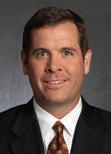


ALTERNATE Darla Pollman Rogers dprogers@riterlaw.com
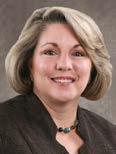



ALTERNATE Lindsey Riter-Rapp l.riter-rapp@riterlaw.com




MEMBER SINCE 2004 The original predecessor firm of Riter Rogers, LLP commenced the practice of law in Pierre, South Dakota over 100 years ago.
The firm has a wide and varied practice, particularly in central South Dakota, but also maintains a statewide litigation practice, regularly appears before State boards and commissions, and serves as legislative counsel for numerous associations and cooperatives.
Firm members have spent considerable time representing insurance companies in defense of casualty suits, products liability claims and similar matters.
The firm handles substantial regulatory law matters, and also does much work relating to banking, contracts, real estate, title work and probate and estate planning.
All members of the firm are active in professional activities and civic and fraternal organizations.
PRIMARY Lee L. Piovarcy (901) 522-9000 lpiovarcy@martintate.com
ALTERNATE
ALTERNATE
Earl W. Houston, II (901) 522-9000 ehouston@martintate.com
Shea Sisk Wellford (901) 522-9000 swellford@martintate.com
MEMBER SINCE 2002 Martin Tate was endowed by its founder, Judge John D. Martin, Sr., over 100 years ago, with a solid tradition of service to clients, the profession and the Memphis Community. Because of its long-term commitment to the Memphis community, Martin Tate projects a unique perspective in delivering legal services for Memphis businesses and national clients. The firm combines quality legal services with innovative legal thinking to create practical solutions that provide clients a competitive edge. The firm’s areas of significant practice are business and commercial transactions; litigation in state and federal courts; trusts and estates; and commercial real estate. The firm’s attorneys counsel clients in M&As, banking, IPOs, partnership matters, PILOT transactions, bankruptcy reorganizations and creditor’s rights. Attorneys regularly deal with matters involving contracts, transportation law, insurance, products liability, and employment rights. Attorneys in the real estate section are involved in transactions regarding construction, development, leasing and operation of shopping centers, office buildings, industrial plants, and warehouse distribution centers. The firm is involved in financing techniques for real estate syndications, issuance of tax-exempt bonds, and equity participations.
Additional Office: Nashville, TN • PH (615) 627-0668
FEE, SMITH & SHARP LLP
ADDRESS 13155 Noel Road Suite 1000 Dallas, TX 75240
PH (972) 934-9100 FAX (972) 934-9200 WEB www.feesmith.com
PRIMARY Michael P. Sharp (972) 980-3255 msharp@feesmith.com


ALTERNATE Thomas W. Fee (972) 980-3259 tfee@feesmith.com
ALTERNATE Jennifer M. Lee (972) 980-3264 jlee@feesmith.com
MEMBER SINCE 2005 Fee, Smith & Sharp, LLP an AV rated firm based in Dallas, Texas, was founded to service the litigation needs of the firm’s individual, corporate and insurance clients. The partners’ combined experience as lead counsel in well over 200 civil jury trials allows the firm to deliver an aggressive, team-oriented approach on behalf of their valued clients. The partnership is supported by a team of talented, experienced, and professional associate attorneys and legal staff who understand the importance of delivering efficient, quality legal services. The attorneys at Fee, Smith & Sharp, LLP are actively involved in representing clients throughout Texas in a variety of commercial, property and casualty cases at the state, federal and appellate levels.
Additional Office: Austin, TX • PH (512) 479-8400
TX MEHAFFY WEBER PC
ADDRESS
One Allen Center 500 Dallas, Suite 2800 Houston, Texas 77002
PH (713) 655-1200 FAX (713) 655-0222 WEB www.mehaffyweber.com
PRIMARY Barbara J. Barron (832) 526-9728
BarbaraBarron@ mehaffyweber.com
ALTERNATE Bernabe G. Sandoval, III (713) 210-8906
TreySandoval@ mehaffyweber.com
ALTERNATE Michele Y. Smith (409) 951-7736
MicheleSmith@ mehaffyweber.com
MEMBER SINCE 2011 MehaffyWeber was founded in 1946 as a litigation firm. As our clients’ needs expanded, we evolved into a broad-based law firm, still with a strong litigation emphasis. We tailor our approaches to best suit the client’s individual needs. We are proud to have a long record of winning cases in tough jurisdictions, but we know that not all cases need to be tried. We use legal motions and other means to achieve positive results pre-trial, and when appropriate, we work hand in hand with our clients to secure advantageous settlements. Today, we continue to believe that hard work, ethical and innovative approaches are core values that result in success for the firm and our clients.
Additional Offices: Austin, TX • PH (512) 394-3840 | Beaumont, TX • PH (409) 835-5011 | San Antonio, TX • PH (210) 824-0009
TX
65 | US LAW NETWORK MEMBER FIRMS
UT STRONG & HANNI
ADDRESS
102 South 200 East, Suite 800 Salt Lake City, UT 84111
PH (801) 532-7080
FAX (801) 596-1508
WEB www.strongandhanni.com
PRIMARY
Kristin A. VanOrman (801) 323-2020 kvanorman@ strongandhanni.com
ALTERNATE
Peter H. Christensen (801) 323-2008 pchristensen@ strongandhanni.com
ALTERNATE
Ryan P. Atkinson (801) 323-2195 ratkinson@ strongandhanni.com
MEMBER SINCE 2005 Strong & Hanni, one of Utah’s most respected and experienced law firms, demonstrates exceptional legal ability and superior quality. For more than one hundred years, the firm has provided effective, efficient, and ethical legal representation to individuals, small businesses, and large corporate clients. The firm’s attorneys have received awards and commendations from many national and state legal organizations. The firm’s practice groups allow attorneys to focus their in-depth knowledge in specific areas of the law. The firm’s organization fosters interaction with attorneys across the firm’s practice groups insuring that even the most complex legal matter is handled in the most effective and efficient manner. The firm’s commitment to up to date technology and case management tools allows matters to be handled with client communication and document security in mind. The firm’s trial attorneys have received commendations and recognition from local, state, and national organizations. Our business is protecting your business.
Additional Office: Sandy, UT • PH (801) 532-708
VA MORAN REEVES & CONN PC
ADDRESS
1211 E. Cary Street Richmond, VA 23219
PH (804) 421-6250
FAX (804) 421-6251
WEB www.moranreevesconn.com
PRIMARY A.C.Dewayne Lonas (804) 864-4820 dlonas@moranreevesconn.com
ALTERNATE Martin A. Conn (804) 864-4804 mconn@moranreevesconn.com
ALTERNATE Shyrell A. Reed (804) 864-4826 sreed@moranreevesconn.com


MEMBER SINCE 2022 Richmond, Virginia-based Moran Reeves & Conn PC specializes in complex litigation, business transactions, and commercial real estate/finance. Its attorneys and legal professionals operate within a technologically advanced, nimble work environment. Client service is foremost at Moran Reeves Conn. Firm leaders also encourage community involvement and are proponents of a collaborative, inclusive culture.<br><br>The firm’s litigation team handles product liability defense, toxic torts and environmental litigation, construction litigation, premises liability, commercial litigation, and general liability defense. Its award-winning healthcare team works on matters involving medical professional liability, healthcare litigation, and employment disputes. Known as experienced trial attorneys, MRC lawyers also pursue alternative means of dispute resolution when appropriate, including arbitration and mediation.<br><br>The firm’s robust business transactional practice includes representation of corporate clients and developers in large-scale financing and commercial real estate deals. Team attorneys are experienced in entity formation, creditors’ rights, securities offerings, tax-advantaged arrangements such as 1031 exchanges, and other complex transactions.
WA WILLIAMS KASTNER
ADDRESS
Two Union Square
601 Union Street Suite 4100 Seattle, WA 98101-2380
PH
(206) 628-6600
FAX
(206) 628-6611
WEB
www.williamskastner.com
SENSABAUGH BONASSO PLLC
ADDRESS
200 Capitol Street Charleston, WV 25301
PH (304) 345-0200
FAX (304) 345-0260
WEB
www.flahertylegal.com
PRIMARY Peter T. DeMasters (304) 225-3058 pdemasters@flahertylegal.com


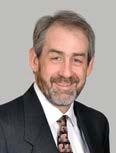



ALTERNATE Tyler Dinsmore (304) 347-4234 tdinsmore@flahertylegal.com

ALTERNATE
Michael Bonasso (304) 347-4259 mbonasso@flahertylegal.com

MEMBER SINCE 2015 Flaherty Sensabaugh Bonasso PLLC serves local, national and international clients in the areas of litigation and transactional law. Founded in 1991, today more than 50 attorneys provide quality counsel to turn clients’ obstacles into opportunities.
At Flaherty, we are deeply committed to partnering with our clients to obtain optimum results. Throughout our history, our prime consideration has been our client’s interests, with a key consideration of the costs associated with litigation.
While avoiding litigation may be desired, when necessary, our attorneys stand prepared to bring their considerable experience to the courtroom. We are experienced in trying matters ranging from simple negligence to complex, multi-party matters involving catastrophic damages.
Additional Offices: Clarksburg, WV • PH (304) 624-5687 | Morgantown, WV • PH (304) 598-0788 | Wheeling, WV • PH (304) 230-6600
ADDRESS 325 E. Chicago Street, Suite 200 Milwaukee, WI 53202
PH (414) 312-7003
FAX (414) 755-7089
WEB www.llgmke.com
PRIMARY Rodney L. Umberger (206) 628-2421 rumberger@williamskastner.com




ALTERNATE
Sheryl J. Willert (206) 628-2408 swillert@williamskastner.com

MEMBER SINCE 2002 Williams Kastner has been providing legal and business advice to a broad mix of clients since our Seattle office opened in 1929. With more than 65 lawyers in Washington and Oregon, the firm combines the resources and experience to offer national and regional capabilities with the client service and sensibility a local firm can provide. The firm culture is characterized by hard work, high-performance teamwork, diversity and partnerships with our clients and the local community. Our commitment to our clients is reflected through our quality legal work, personalized approach to servicing our clients and the integrity and pride we devote towards the practice of law.
Additional Office: Portland, OR • PH (503) 228-7967
PRIMARY
Jack J. Laffey (414) 312-7105 jlaffey@llgmke.com

ALTERNATE Joseph S. Goode (414) 312-7181 jgoode@llgmke.com
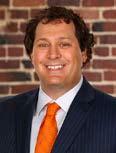
ALTERNATE Mark M. Leitner (414) 312-7108 mleitner@llgmke.com
MEMBER SINCE 2019 Relentless. Inspired. Committed. Authentic. Our team of professionals share an almost fanatical commitment to practicing Law as a means of balancing the unbalanced, leveling the unleveled, and bringing big-time results to you, our client.
We want the hardest problems you can throw at us. There is nothing we love more than diving deep into complex litigation and disputes. We will solve your problems, no matter how large or how small. This team thrives under pressure, so pile it on. Our team of battle-tested attorneys brings an unmatched drive and determination to every client. We don’t rest on our laurels. We innovate and create new solutions to produce winning results. We bring order and symmetry to chaos and complexity. We love what we do.
Lots of firms talk about being responsive; we live it. Our commitment to serving our clients fundamentally shapes how we view and practice law.
We are human beings. While we thrive under incredible challenges and difficult circumstances, we also care deeply about the people we work with and represent. Being authentic also means that we recognize our clients are people too. We understand them, and we know them.
& GOODE LLC WY WILLIAMS, PORTER, DAY & NEVILLE, P.C.
ADDRESS
159 North Wolcott Suite 400 Casper, WY 82601
PH (307) 265-0700
FAX
(307) 266-2306
WEB www.wpdn.net
PRIMARY Scott E. Ortiz (307) 265-0700 sortiz@wpdn.net
ALTERNATE Scott P. Klosterman (307) 265-0700 sklosterman@wpdn.net
ALTERNATE Keith J. Dodson (307) 265-0700 kdodson@wpdn.net
MEMBER SINCE 2006 Williams, Porter, Day & Neville, P.C. (WPDN) has deep roots in Wyoming, running back over 70 years. WPDN is the pinnacle of representation in Wyoming and has been involved in Wyoming’s most seminal legal decisions, across many practice areas, in state and Federal courts. WPDN represents clients from international, national, and state-based insurance providers, publically-traded to privately-held natural resource companies, national and local trucking operations, local and state governmental entities, ranches, banks and other business entities. With its high standards and integrity, WPDN offers clients a vast knowledge and understanding of the ways of Wyoming and provides the highest quality representation within its practice. WPDN attorneys and staff work as a team to ensure fairness, productive working atmosphere and high-quality representation.
WV
WI LAFFEY,LEITNER
FLAHERTY
66 | US LAW NETWORK MEMBER FIRMS
ARGENTINA | BARREIRO, OLIVA, DE LUCA, JACA & NICASTRO
ADDRESS
Av. Córdoba 1309 3° A
Ciudad de Buenos Aires
C1055AAD Argentina
PH +54 11 4814 1746
WEB
www.bodlegal.com
PRIMARY Nicolas Jaca Otano +54 11 4814 1746 njaca@bodlegal.com
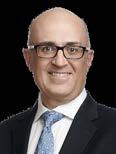



ALTERNATE Gonzalo Oliva-Beltrán +54 11 4814-1746 goliva@bodlegal.com
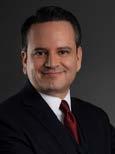




ALTERNATE Ricardo Barreiro Deymonnaz +54 11 4814-1746 rbarreiro@bodlegal.com

MEMBER SINCE 2019 BARREIRO, OLIVA, DE LUCA, JACA & NICASTRO is a law firm based in Buenos Aires, Argentina. We advise our clients on all business matters including M&A, Banking & Finance, Employment & Labor, Dispute Resolution, Regulatory and Tax. We also have special teams focused on infrastructure and construction, corporate and foreign investments, technology, energy and natural resources. As a boutique firm, we have a high involvement at partner and senior associate level, which allows us to work efficiently and to provide an outstanding level of service to our clients
CANADA | THERRIEN COUTURE JOLI-COEUR L.L.P. | QUEBEC
ADDRESS
1100 Blvd. René-Lévesque
West, Suite 2000
Montreal, Quebec H3B 4N4
PH (514) 871-2800 / (855) 633-6326
FAX (514) 871-3933
WEB www.groupetcj.ca
BRAZIL | MUNDIE E ADVOGADOS
ADDRESS
Av. Brig. Faria Lima, 3400
CJ. 151 15.º andar
04538-132 São Paulo, SP, Brazil
PH
(55 11) 3040-2900
WEB
www.mundie.com.br
PRIMARY Rodolpho Protasio (55 11) 3040-2923 rofp@mundie.com.br
ALTERNATE Eduardo Zobaran (55 11) 3040-2923 emz@mundie.com.br
ALTERNATE Cesar Augusto Rodrigues (55 11) 3040-2855 crc@mundie.com.br
MEMBER SINCE 2012 Mundie e Advogados was established with the goal of providing high quality legal services to international and domestic clients. The firm is a full service law firm, with a young and dynamic profile, and it is renowned for its professionalism and its modern and pragmatic approach to the practice of law. Since its inception, in 1996, the firm has been involved in several landmark transactions that helped shape the current Brazilian economic environment and has become a leading provider of legal services in several of its areas of practice, especially in corporate transactions, mergers & acquisitions, finance, tax, litigation, arbitration, governmental contracts and administrative law, regulated markets and antitrust.
Clients of the firm benefit from its knowledge and experience in all areas of corporate life and our commitment to excellence. The firm`s work philosophy, combined with the integration among its offices, practice groups and lawyers, put the firm in a privileged position to assist its clients with the highest quality in legal services.
CANADA | KELLY SANTINI LLP | OTTAWA

ADDRESS
160 Elgin Street
Suite 2401
Ottawa, Ontario K2P 2P7
PH
(613) 238-6321
FAX
(613) 233-4553
WEB
www.kellysantini.com
PRIMARY Lisa Langevin (613) 238-6321 ext 276 llangevin@kellysantini.com

ALTERNATE Kelly Sample (613) 238-6321, ext 227 ksample@kellysantini.com
ALTERNATE J. P. Zubec (613) 238-6321 jpzubec@kellysantini.com
MEMBER SINCE 2011 Kelly Santini LLP is based in the nation’s capital of Ottawa and is ideally placed to advise businesses looking to establish or grow their Canadian operations. We act for many Torontobased financial institutions and insurers and represent clients throughout the province of Ontario. We also regularly advise on procurement matters with the Canadian Federal Government and interface with regulatory bodies at both national and provincial levels on our clients’ behalf. Our Business Group handles cross border transactional files throughout the US.
Our insurance defence team is amongst the largest in the region and is recognized in the Lexpert Legal Directory for Canada as a ‘leading litigation firm in eastern Ontario’ in the area of commercial insurance. The group regularly acts for leading insurers on insurance defence and subrogation.
Additional Office: Ottawa, Ontario • PH (613) 238-6321
PRIMARY Douglas W. Clarke (514) 871-2800 douglas.clarke@groupetcj.ca
ALTERNATE Eric Lazure (450) 462-8555 eric.lazure@groupetcj.ca


ALTERNATE Yannick Crack (819) 791-3326 yannick.crack@groupetcj.ca
MEMBER SINCE 2013 Therrien Couture Joli-Coeur LLP is a team of more than 350 people including a multidisciplinary team of experienced professionals that consist of lawyers, notaries, tax specialists, trademark agents and human resources specialists working together to create a stimulating, collegial work environment in which to serve their clients with an approach to the law that is simple, dynamic and rigorous.
From our original focus on agri-business, the firm has grown and branched out both in terms of its size and expertise. While we have maintained our industry leadership with respect to our historical roots, we handle a wide range of matters for our clients. Our most significant ingredient for success however continues to be the professionals of our firm who commit themselves every day to serving our clients.
Additional Offices:
Brossard, QC • PH (450) 462-8555 | Laval, QC • PH (450) 682-5514 | Quebec City, QC • PH (418) 681-7007
Saint-Hyacinthe, QC • PH (450) 773-6326 | Sherbrooke, QC • PH (819) 791-3326
CHINA | DUAN&DUAN
ADDRESS
Floor 47, Maxdo Center, 8 Xing Yi Road 200336, Shanghai, China
PH
(008621) 6219 1103, ext. 7122
FAX (008621) 6275 2273
WEB www.duanduan.com
PRIMARY George Wang (008621) 3223 0722 george@duanduan.com

MEMBER SINCE 2012 In 1992, Duan&Duan Law Firm was one of the first firm to open its doors in Shanghai and in China. From its beginning, Duan&Duan Law Firm has always offered, to selected PRC Lawyers, a unique opportunity to leave their mark on the legal community and to contribute to China’s flourishing economy and developing legal environment. Due to its long history, Duan&Duan can be seen as a window reflecting the multiple changes and the rapid evolution of the legal industry in the PRC during China’s reform and opening-up. Duan&Duan’s success can be understood by examining closely its unique business model: • It is the first private partnership that has been established in the PRC by Chinese nationals returning to China after completing overseas studies and after gaining working experience abroad; and • It is also a small, but a representative example, of the many successful businesses that saw the need for services focusing on PRC related to foreign businesses and transactions. Duan&Duan Law Firm has grown to become a prestigious medium size PRC law firm, with an international profile and practicing law in accordance with international standards, focusing on legal issues involving foreign businesses and PRC laws and regulations.
MEXICO | EC RUBIO
ADDRESS
Ejército Nacional 7695-C
32663 Ciudad Juárez, Chihuahua México
PH +52 656 227 6100
FAX
+52 55 5596-9853
WEB www.ecrubio.com
PRIMARY René Mauricio Alva +1 (915) 217-5673 rene.alva@ecrubio.com
ALTERNATE Javier Ogarrio +52 (55) 5251-5023 javier.ogarrio@ecrubio.com
ALTERNATE Fernando Holguín +52 (656) 227-6123 fernando.holguin@ecrubio.com

MEMBER SINCE 2016 Our firm’s attorneys have more than 40 years of experience catering to foreign companies doing business in Mexico. Because of the importance of providing high-quality legal assistance to our clients, we have built one of Mexico’s largest legal firms with a presence in the top income per capita cities in Mexico with specialized attorneys with key practices to fulfill our clients’ needs and satisfy their expectations. Our firm and attorneys have been ranked as leading firm and practitioners in Mexico in M&A, customs and foreign trade, labor & employment, real estate and finance. We have a wide range of clients from all spectrums of industries and businesses, each of our clients has its own particular manner of operating and doing business in Mexico, which requires us to be cognizant of their specialized and peculiar legal needs both for their day-today operations, as well as with their finer and greater projects. For many of our clients, our attorneys act as the in-house counsel in Mexico. EC Legal has become their legal department for their entire operations in Mexico, working closely not only with our peers in our clients’ headquarters but also with their local teams..
Additional Office: México City
Additional Offices: Brasilia • PH (55) 61 3321 2105 | Rio de Janeiro - RJ • PH (55) 21 2517 5000
Additional Offices: Beijing • PH 010 - 5900 3938 | Chengdu • PH 028 - 8753 1117 | Chongqing • PH 023-60333 969 Dalian • PH 0411 - 8279 9500 | Hefei • PH 0551 - 6353 0713 | Kunming • PH 0871 - 6360 1395 | Shenzhen • PH 07552515 4874 | Sichuan Province • PH 0838-2555997 | Wanchai • PH 00852 - 2973 0668 | Xiamen • PH 0592 - 2388 600
67 | US LAW NETWORK INTERNATIONAL MEMBER FIRMS
BELGIUM | BRUSSELS CEW & PARTNERS
250 Avenue Louise • 1050 Brussels, Belgium • (+32 2) 534 20 20 • Fax: (+32 2) 534 30 18 • Web: www.cew-law.be Additional Offices: Correspondents in Antwerp and Liège
ENGLAND | LONDON WEDLAKE BELL LLP
71 Queen Victoria Street • London EC4V 4AY • 44(0)20 7395 3000 • Fax: +44(0)20 7395 3100 Web: www.wedlakebell.com
GERMANY | FRANKFURT BUSE
Bockenheimer Landstraße
PRIMARY Charles Price (+32) 485660807 Charles.price@ cew-law.be
ALTERNATE Laurent Verbraken (+32) 477447814 Laurent.verbraken@ cew-law.be




ALTERNATE Sébastien Popijn (+32) 4793084 58 sebastien.popijn@ cew-law.be
CYPRUS DEMETRIOS A. DEMETRIADES LLC.

Three Thasos Street • Nicosia, 1087 • Cyprus PHONE: (+357) 22 769 000 • FAX (+357) 22 769 004 Web: www.dadlaw.com.cy
PRIMARY Martin Arnold +44 (0)20 7395 3186 marnold@wedlakebell.com

ESTONIA | LATVIA | LITHUANIA LEXTAL LEGAL
PRIMARY Jasper Hagenberg (+49) 30 327942 38 hagenberg@buse.de
ALTERNATE Michael Krämer (+49) 69 989 7235-55 brueckner@buse.de
ALTERNATE Dr. Dagmar Waldzus (+49) 40 41999 215 waldzus@buse.de




GREECE | ATHENS CORINA FASSOULI-GRAFANAKI & ASSOCIATES


PRIMARY Demetrios A. Demetriades +357 22769000 ddemetriades@dadlaw. com.cy
ALTERNATE Harris D. Demetriades +357 22769000 hdemetriades@dadlaw. com.cy
ALTERNATE Natasa Flourentzou +357 22769000 nflourentzou@dadlaw. com.cy
CZECH REPUBLIC | PRAGUE VYSKOCIL, KROSLAK & PARTNERS, ADVOCATES
PRIMARY Lina SiksniuteVaitiekuniene ILAW LEXTAL +370 5 248 76 70 lina.vaitiekuniene@ ilaw.legal
ALTERNATE Urmas Ustav LEXTAL +372 6400 250 urmas.ustav@lextal.ee
ALTERNATE Jãnis Ešenvalds RER LEXTAL +371 67 280 685 esenvalds@rer.legal
FINLAND | HELSINKI LEXIA ATTORNEYS LTD.
PRIMARY Korina Fassouli-Grafanaki (+30) 210-3628512 korina.grafanaki@ lawofmf.gr

ALTERNATE Anastasia Aravani (+30) 210-3628512 anastasia.aravani@ lawofmf.gr
ALTERNATE Theodora Vafeiadou (+30) 210-3628512 nora.vafeiadou@ lawofmf.gr
HUNGARY | BUDAPEST BIHARY BALASSA & PARTNERS
PRIMARY
Jiri Spousta (00 420) 224 819 133 spousta@akvk.cz
ALTERNATE Michaela Fuchsova (00 420) 224 819 106 fuchsova@akvk.cz
DENMARK | COPENHAGEN LUND ELMER SANDAGER
PRIMARY Markus Myhrberg +358 10 4244200 markus.myhrberg@lexia.fi
ALTERNATE Peter Jaari +358 10 4244200 peter.jaari@lexia.fi
FRANCE | PARIS & LYON DELSOL AVOCATS

Lassagne • LYON 69001 France • +33(0) 472102030 • Web: www.delsolavocats. com • contact@delsolavocats.com
PRIMARY Ágnes Dr. Balassa 0036) 391-44-91 agnes.balassa@bihary balassa.hu
ALTERNATE Tibor Dr. Bihary (0036) 391-44-91 tibor.bihary@bihary balassa.hu
IRELAND | DUBLIN KANE TUOHY LLP SOLICITORS




Hambleden House, 19-26 Pembroke Street Lower, Dublin 2 Ireland • (+353) 1 6722233 • Fax: (+353) 1 6786033 • Web: www.kanetuohy.ie
PRIMARY Jacob Roesen (+45 33 300 268) jro@les.dk
ALTERNATE Sebastian Rungby (+45 33 300 255) sru@les.dk
ALTERNATE Carsten Brink (+45 33 300 203) cb@les.dk


PRIMARY Emmanuel Kaeppelin (+33) 472102007 ekaeppelin@ delsolavocats.com








PRIMARY Hugh Kane (+353) 1 6722233 hkane@kanetuohy.ie
ALTERNATE Cómhnall Tuohy (+353) 1 67722240 ctuohy@kanetuohy.ie
101 • Frankfurt 60325 Germany • (+49) 69 9897235-0 • Fax: (+49) 69 989 7235-99 • Web: www.buse.de Additional Offices: Berlin, Düsseldorf, Essen, Hamburg, Munich, Stuttgart, Sydney, Brussels, London, Paris, Milan, New York, Zurich, Palma de Mallorca Konstitucijos ave. 7 • LT-09308 Vilnius • Lithuania • (+370) 5 248 76 70 • Web: www.lextal.legal Additional Offices: Estonia • Latvia Panepistimiou 16 • Athens 10672 Greece • +30 210-3628512 • Fax: +30 210-3640342 • Web: www.cfgalaw.com Additional Offices: New York City Vorsilska 10 • 110 00 Prague 1 • Czech Republic • +420 224 819 141 • Fax: +420 224 816 366 • Web: www.akvk.cz Lönnrotinkatu 11 • FI-00120 Helsinki, Finland • +358 104 244 200 • Fax: +358 104 244 21 • Web: www.lexia.fi Zugligeti út 3 • Budapest 1121 Hungary • +36 1 391 44 91 • Fax: +36 1 200 80 47 • Web: www.biharybalassa.hu Kalvebod Brygge 39-41 • DK-1560 Copenhagen V • (+45 33 300 200) • Fax: (+45 33 300 299) • Web: www.les.dk 4 bis, rue du Colonel Moll • PARIS 75017 France • +33(0) 153706969 • 11, quai André
68 | TELFA MEMBER FIRMS
ITALY | PADUA
LEGALITAX STUDIO LEGALE E TRIBUTARIO
Main offices: Gall. Dei Borromeo, 3 - 35137 Padua • +39 049 877 58 11• Fax: +39 049 877 58 38 • Web: www. legalitax.it • 20123 Milano piazza Pio XI no.1 • 00196 Roma via Flaminia no. 135
Additional Office: 37122 Verona via Locatelli no. 3
NORWAY | OSLO ADVOKATFIRMAET BERNGAARD AS


Beddingen 8, 0250 Oslo, Norway • Telephone: +47 22 94 18 00 • Web: www.berngaard.no
SPAIN | MADRID ADARVE ABOGADOS SLP
Calle Guzmán el Bueno • 133, Edif. Germania • 4ª planta-28003 Madrid, Spain • (0034)91 591 30 60 • Fax: (0034)91 444 53 65 • info@adarve.com • Web: www.adarve.com
Additional Offices: Barcelona • Canary Islands • Malaga • Santiago de Compostela • Seville • Valencia
PRIMARY Alessandro Polettini +39 049 877 58 11 alessandro.polettini@ legalitax.it

ALTERNATE
Rescigno +39 02 45381201 andrea.rescigno@ legalitax.it
LUXEMBOURG | LUXEMBOURG TABERY & WAUTHIER
BP 619 • Luxembourg L-2016 • Grand-Duchy of Luxembourg • 10 rue Pierre d’Aspelt • Luxembourg L-1142 • +352 25 15 15-1 • Fax: +352 45 94 61 • Web: www.tabery.eu
PRIMARY Tom Eivind Haug +47 906 53 609 haug@berngaard.no

ALTERNATE Inger Roll-Matthiesen +47 928 81 388 irm@berngaard.no
POLAND | WARSAW GWW
ALTERNATE Heidi Grette +47 900 68 954 heidi@berngaard.no
PRIMARY Juan José Garcia (0034) 91 591 30 60 Juanjose.garcia@adarve.com
ALTERNATE Belén Berlanga (0034) 91 591 30 60 belen.berlanga@adarve.com
SWEDEN | STOCKHOLM WESSLAU SÖDERQVIST ADVOKATBYRÅ
PRIMARY Véronique Wauthier (00352) 251 51 51 avocats@tabery.eu






ALTERNATE Didier Schönberger (00352) 251 51 51 avocats@tabery.eu






MALTA | VALLETTA EMD
Vaults 13-15 • The Valletta
Dobra 40, 00-344 Warszawa, Poland • +48 22 212 00 00 • Fax: +48 22 212 00 01 • Web: www.gww.pl
Kungsgatan 36, PO Box 7836 • SE-103 98 Stockholm Sweden • (+46) 8 407 88 00 • Fax: (+46) 8 407 88 01• Web: www.wsa.se Additional Offices: Borås • Gothenburg • Helsingborg • Jönköping • Malmö • Umeå
PRIMARY Aldona Leszczynska-Mikulska +48 22 212 00 00 Aldona.leszczynska-mikulska@gww.pl
PORTUGAL | LISBOA CARVALHO MATIAS & ASSOCIADOS
PRIMARY Max Björkbom (+46) 8 407 88 00 max.bjorkbom@wsa.se
ALTERNATE Henrik Nilsson (+46) 8 407 88 00 henrik.nilsson@wsa.se
SWITZERLAND | GENEVA AND ZURICH MLL
PRIMARY Dr. Italo Ellul (+356) 99426555 iellul@emd.com.mt
ALTERNATE Dr. Tonio Ellul (+356) 99476110 tellul@emd.com.mt
NETHERLANDS | ARNHEM DIRKZWAGER
ALTERNATE Dr. Pierre Mifsud (+356) 99421212 pmifsud@emd.com.mt



PRIMARY António A. Carvalho (+351) 21 8855448 acarvalho@cmasa.pt
ALTERNATE Rita Matias (+351) 21 8855447 rmatias@cmasa.pt
SLOVAKIA | BRATISLAVA ALIANCIAADVOKÁTOV
PRIMARY Nadine von Büren-Maier (00 41) 58 552 01 50 nadine.vonburen-maier@ mll-legal.com


ALTERNATE Wolfgang Müller (00 41) 58 552 05 70 wolfgang.muller@ mll-legal.com

ALTERNATE Guy-Philippe Rubeli (00 41) 58 552 00 90 guy.philippe.rubeli@ mll-legal.com

PRIMARY
Karen A. Verkerk +31 26 365 55 57 Verkerk@dirkzwager.nl
ALTERNATE Claudia van der Most +31 26 353 83 64 Most@dirkzwager.nl
ALTERNATE Daan Baas +31 26 353 84 16 Baas@dirkzwager.nl
PRIMARY Gerta Sámelová Flassiková +421 903 717431 flassikova@aliancia.sk

ALTERNATE Jan Voloch +421 903 297294 voloch@aliancia.sk

Waterfront • FRN 1914 MALTA +356 2203 0000 • Fax: +356 2123 7277 Web: www.emd.com.mt Rua Júlio de Andrade, 2 • Lisboa 1150-206 Portugal • (+351) 21 8855440 • Fax: (+351) 21 8855459 Web: www.cmasa.pt 65 rue du Rhône | PO Box 3199 • Geneva 1211 • Switzerland • (00 41) 58 552 01 00 Web: www.mll-legal.com Additional Offices: Zurich • Lausanne • Zug • London • Madrid
• 6800 AC
• The Netherlands • Velperweg 1 • 6824 BZ Arnhem • The
• +31 88
100 • Fax: +31
•
Additional Office: Nijmegen Vlˇckova 8/A • Bratislava 811 05 Slovakia • +421 2 57101313 • Fax: +421 2 52453071 • Web: www.aliancia.sk
Postbus 111
Arnhem
Netherlands
24 24
88 24 24 111
Web: www.dirkzwager.nl
Andrea
69 | TELFA MEMBER FIRMS
THANK Y OU PARTNERS
S-E-A
OFFICIAL TECHNICAL FORENSIC ENGINEERING AND LEGAL VISUALIZATION SERVICES PARTNER
www.SEAlimited.com
7001 Buffalo Parkway
Columbus, OH 43229
Phone: (800) 782-6851
Fax: (614) 885-8014
Chris Torrens Vice President
795 Cromwell Park Drive, Suite N
Glen Burnie, MD 21061
Phone: (410) 766-2390
Email: ctorrens@SEAlimited.com
Ami Dwyer, Esq. General Counsel
795 Cromwell Park Drive, Suite N
Glen Burnie, MD 12061
Phone: (410) 766-2390
Email: adwyer@SEAlimited.com
Dick Basom Manager, Regional Business Development
7001 Buffalo Parkway
Columbus, Ohio 43229
Phone: (614) 888-4160
Email: rbasom@SEAlimited.com
S-E-A is proud to be the exclusive partner/sponsor of technical forensic engineering and legal visualization services for USLAW NETWORK.
A powerful resource in litigation for 50 years, S-E-A is a multi-disciplined forensic engineering, fire investigation and visualization services company specializing in failure analysis. S-E-A’s full-time staff consists of licensed/registered professionals who are experts in their respective fields. S-E-A offers complete investigative services, including: mechanical, biomechanical, electrical, civil and materials engineering, as well as fire investigation, industrial hygiene, visualization services, and health sciences—along with a fully equipped chemical laboratory. These disciplines interact to provide thorough and independent analysis that will support any subsequent litigation.
S-E-A’s expertise in failure analysis doesn’t end with investigation and research. Should animations, graphics, or medical illustrations be needed, S-E-A’s Imaging Sciences/Animation Practice can prepare accurate demonstrative pieces for litigation support. The company’s on-staff engineers and graphics professionals coordinate their expertise and can make a significant impact in assisting a judge, mediator or juror in understanding the complex principles and nuances of a case. S-E-A can provide technical drawings, camera-matching technology, motion capture for biomechanical analysis and accident simulation, and 3D laser scanning and fly-through technology for scene documentation and preservation. In addition, S-E-A can prepare scale models of products, buildings or scenes made by professional model builders or using 3D printing technology, depending on the application.
You only have one opportunity to present your case at trial. The work being done at S-E-A is incredibly important to us and to our clients – because a case isn’t made until it is understood. Please visit www.SEAlimited.com to see our capabilities and how we can help you effectively communicate your position.
70 www.uslaw.org US LAW 2023 USLAW Corporate Partners
HHHHH
USLAW PREMIER PARTNER
American Legal Records
OFFICIAL RECORD RETRIEVAL PARTNER
www.americanlegalrecords.com

1974 Sproul Road, 4th Floor
Broomall, PA 19008
Phone: (888) 519-8565
Michael Funk
Director of Business Development
Phone: (610) 848-4302
Email: mfunk@americanlegalrecords.com
Jeff Bygrave
Account Executive
Phone: (610) 848-4350
Email: jbygrave@americanlegalrecords.com
Kelly McCann
Director of Operations
Phone: (610) 848-4303
Email: kmccann@americanlegalrecords.com
American Legal Records is the fastest-growing record retrieval company in the country. The pandemic has greatly impacted the record retrieval industry and made it increasingly difficult to obtain medical records in a timely fashion. We have streamlined this process to eliminate the monotonous, never-ending time your team/panel counsel is spending on obtaining records. Our team has over 200 years of experience and can provide nationwide coverage for all your record retrieval needs. Our highly trained staff is experienced in all civil rules of procedures and familiar with all state-mandated statutes regarding copying fees. We are approved by more than 80% of the carriers and TPAs.
Ametros OFFICIAL FUTURE MEDICAL FUND MANAGEMENT PARTNER
www.ametros.com
P.O. Box 827
Burlington, MA 01803
Phone: (877) 275-7415
Mark Doherty, CMSP
Executive Vice President of Sales
Email: mdoherty@ametros.com
Ametros is the largest and most trusted professional administration expert in the industry, working closely with everyone involved in the settlement process to drive resolution and provide support, security and potential savings for injured individuals once they settle their case. Ametros becomes the injured individual’s main resource to help guide them through their medical treatment and any necessary reporting after settlement. Ametros helps ease settlement fears and assists in settling difficult and complex claims, including workers’ compensation, liability, trusts, life care plans, Medicare Set Asides, and all other future medical allocations.
Arcadia
OFFICIAL STRUCTURED SETTLEMENT PARTNER
www.teamarcadia.com
5613 DTC Parkway, Suite 610
Greenwood Village, CO 80111
Phone: (800) 354-4098
Rachel D. Grant, CSSC
Structured Settlement Consultant
Phone: (810) 376-2097
Email: rgrant@teamarcadia.com
Your USLAW structured settlements consultants are:
Len Blonder • Los Angeles, CA
Rachel Grant, CSSC • Detroit, MI
Richard Regna, CSSC • Denver, CO
Iliana Valtchinova • Pittsburgh, PA
Arcadia Settlements Group is honored to be USLAW’s exclusive partner for structured settlement services.
Arcadia Settlements Group (Arcadia) and Structured Financial Associates (SFA) have merged to create the largest provider of structured settlement services, combining the strength of best-inclass consultants, innovative products and services, and deep industry expertise. Our consultants help resolve conflicts, reduce litigation expenses, and create long-term financial security for injured people through our settlement consulting services. Arcadia Consultants also assist in the establishment and funding of other settlement tools, including Special Needs Trusts and Medicare Set-Aside Arrangements, and are strategically partnered to provide innovative market-based, tax-efficient income solutions for injured plaintiffs.
Arcadia is recognized as the first structured settlement firm with more than 45 years in business. Our consultants have used our skill and knowledge, innovative products and unparalleled caring service to help settle more than 325,000 claims involving structured settlement funding of more than $40 billion and have positively impacted hundreds of thousands of lives by providing security and closure.
US LAW www.uslaw.org 71 2023 USLAW Corporate
Partners
IMS Consulting
OFFICIAL JURY CONSULTANT AND COURTROOM TECHNOLOGY PARTNER
www.expertservices.com
4400 Bayou Boulevard, Suite 4 Pensacola, FL 32503
Phone: (877) 838-8464
Twitter:@ExpertServices
Merrie Jo Pitera, Ph.D.
Senior Director of Jury Consulting
Phone: 913.339.6468
Email: mjpitera@expertservices.com
Adam Bloomberg
Client Services Advisor
Phone: 214.395.7584
Email: abloomberg@expertservices.com
Jill Leibold, Ph.D.
Director of Jury Research
Phone: 310.809.8651
Email: jleibold@expertservices.com
Christina Marinakis, J.D., Psy.D.
Director of Jury Research
Phone: 443.742.6130
Email: cmarinakis@expertservices.com
Your goal is to provide high-caliber advocacy for your client—IMS Consulting helps you achieve that goal by providing jury consulting and courtroom technology services.
Everything we do at IMS is anchored in our commitment to help you gain the best position to win. Our 2021 union with Litigation Insights joined complementary strengths and common ideals to elevate your visual communications and jury research.
For 30 years, the most influential attorneys and firms have relied on IMS for the most comprehensive trial services. Our unique perspectives and proprietary methods have been developed over more than 20,000 cases and 2,000 completed trials. With strategic locations in major U.S. markets, the IMS team is primed to support your in-person and remote litigation proceedings.
Gain peace of mind with our experienced trial professionals. Let’s work together: expertservices.com
Marshall Investigative Group
OFFICIAL INVESTIGATIVE PARTNER
www.mi-pi.com
401 Devon Ave. Park Ridge, IL 60068
Phone: (855) 350-6474 (MIPI)
Doug Marshall President
Email: dmarshall@mi-pi.com
Adam M. Kabarec Vice President
Email: akabarec@mi-pi.com
Matt Mills
Vice President of Business Development
Email: mmills@mi-pi.com
Thom Kramer Director of Business Development and Marketing
Email: tkramer@mi-pi.com
Amie Norton Business Development Manager
Email: anorton@mi-pi.com
Jake Marshall Business Development Manager jmarshall@mi-pi.com
Shannon Thompson Business Development Manager sthompson@mi-pi.com
Marshall Investigative Group is a national investigative firm providing an array of services that help our clients mediate the validity of questionable cargo, disability, liability and workers’ compensation claims. Our specialists in investigations and surveillance have a variety of backgrounds in law enforcement, criminal justice, military, business and the insurance industry. Our investigators are committed to innovative thinking, formative solutions and detailed diligence.
One of our recent achievements is leading the industry in Internet Presence Investigations. With the increasing popularity of communicating and publishing personal information on the internet, internet presence evidence opens doors in determining the merit of a claim. Without approved methods for collection and authentication this information may be inadmissible and useless as evidence. Our team can preserve conversations, photographs, video recordings, and blogs that include authenticating metadata, and MD5 hash values. Our goal is to exceed your expectations by providing prompt, thorough and accurate information. At Marshall Investigative Group, we value each and every customer and are confident that our extraordinary work, will make a difference in your bottom line. Services include:
MDD Forensic Accountants
OFFICIAL FORENSIC ACCOUNTANT PARTNER
www.mdd.com
11600 Sunrise Valley Drive, Suite 450
Reston, VA 20191
Phone: (703) 796-2200
Fax: (703) 796-0729
David Elmore, CPA, CVA, MAFF
11600 Sunrise Valley Drive, Suite 450
Reston, VA 20191
Phone: (703) 796-2200
Fax: (703) 796-0729
Email: delmore@mdd.com
Kevin Flaherty, CPA, CVA
10 High Street, Suite 1000
Boston, MA 02110
Phone: (617) 426-1551
Fax: (617) 830-9197
Email: kflaherty@mdd.com
Matson, Driscoll & Damico is a leading forensic accounting firm that specializes in providing economic damage quantification assessments for our clients. Our professionals regularly deliver expert, consulting and fact witness testimony in courts, arbitrations and mediations around the world.
We have been honored to provide our expertise on cases of every size and scope, and we would be pleased to discuss our involvement on these files while still maintaining our commitment to client confidentiality. Briefly, some of these engagements have involved: lost profit calculations; business disputes or valuations; commercial lending; fraud; product liability and construction damages. However, we have also worked across many other practice areas and, as a result, in virtually every industry.
Founded in Chicago in 1933, MDD is now a global entity with over 40 offices worldwide.
In the United States, MDD’s partners and senior staff are Certified Public Accountants; many are also Certified Valuation Analysts and Certified Fraud Examiners. Our international partners and professionals possess the appropriate designations and are similarly qualified for their respective countries. In addition to these designations, our forensic accountants speak more than 30 languages.
Regardless of where our work may take us around the world, our exceptional dedication, singularly qualified experts and demonstrated results will always be the hallmark of our firm. To learn more about MDD and the services we provide, we invite you to visit us at www.mdd.com •
•
72 www.uslaw.org US LAW 2023 USLAW Corporate Partners
Activity/Background Checks
AOE / COE
Asset Checks
Bankruptcies
Contestable Death
Criminal & Civil Records
Decedent Check
Health History
Intellectual Property Investigations
Internet Presence Investigations
Pre-Employment
Recorded Statements
•
•
•
•
•
•
•
•
•
•
•
Skip Trace
Surveillance
•

Precisely revealing the cause. Then explaining it in the simplest of terms, often visually via our Imaging Sciences team. Doing both at the highest level is what sets us apart. From vessel navigational errors, marine system failures, and shore side facility issues to oil drilling, refining, transportation incidents, and more. We dig past the speculation to find and convey the truth like no one else. Navigating officer at fault? Tugboat operator error? Deck crew mistake? Docking incident determined to be caused by failure of the controllable pitch propeller. Engine failure? Know. © 2022 800.782.6851 SEAlimited.com Since 1970 SUBMIT AN ASSIGNMENT Forensic Engineering, Investigation and Analysis Proud Partner USLAW NETWORK Inc. since 2004.
























 Rachel Grant, CSSC Detroit, MI
Rich Regna, CSSC Denver, CO
Iliana Valtchanova Pittsburgh, PA
Len Blonder Los Angeles, CA
Rachel Grant, CSSC Detroit, MI
Rich Regna, CSSC Denver, CO
Iliana Valtchanova Pittsburgh, PA
Len Blonder Los Angeles, CA



































































































































































































































































































































































